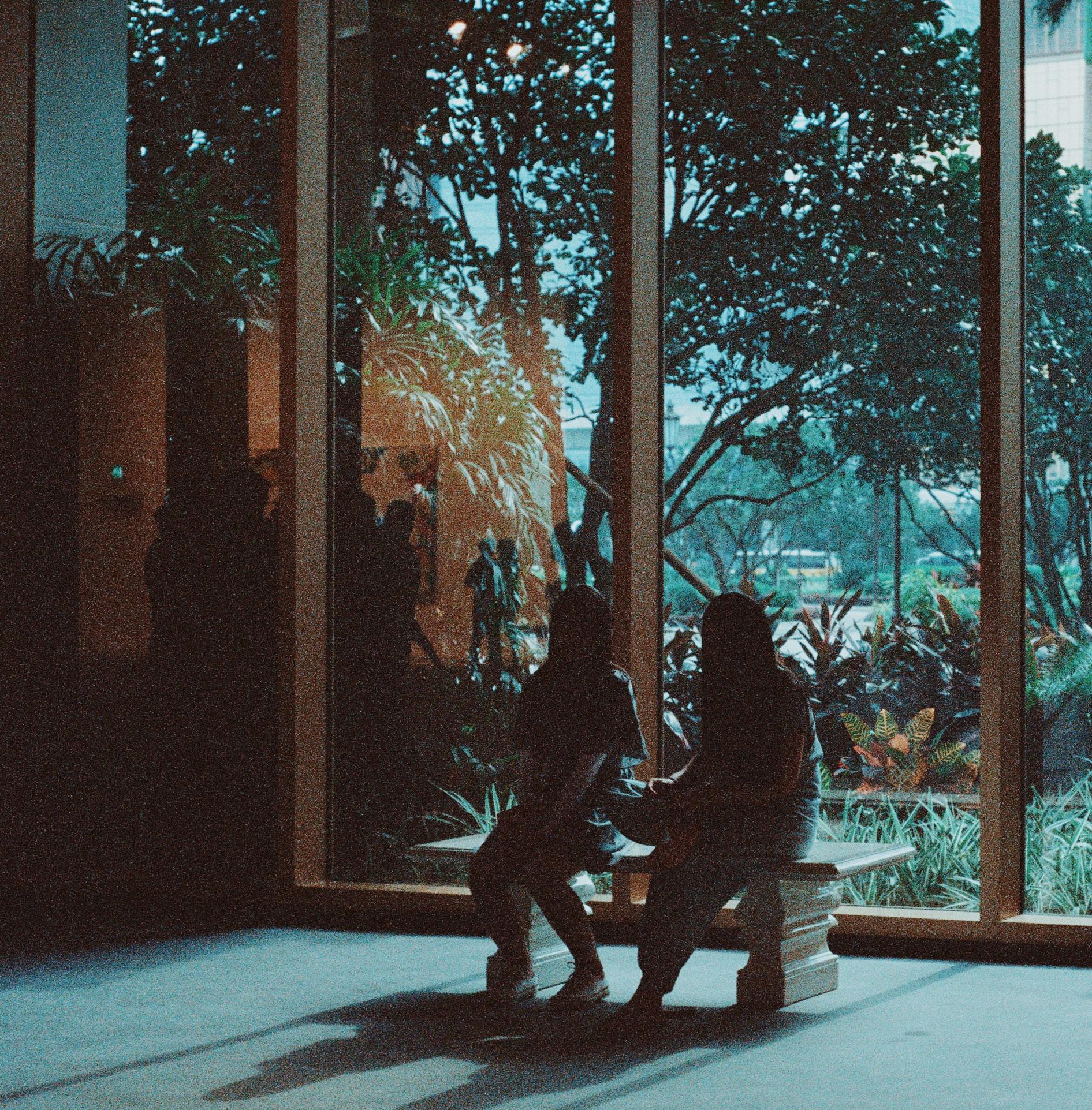

Why Glass?
Glass is strong, beautiful and malleable with expert care. That’s what Glass Magazine is to us. We understand its power to create beautiful things and the strength that comes from sharing stories in this format. But glass can also break. There is a second election coming for the QUT Guild in March. So we, the current editors, truly know the fragility of our roles.
We hope we’ve made you proud with this one.
COVER PHOTOGRAPHY JULIENNE PANCHO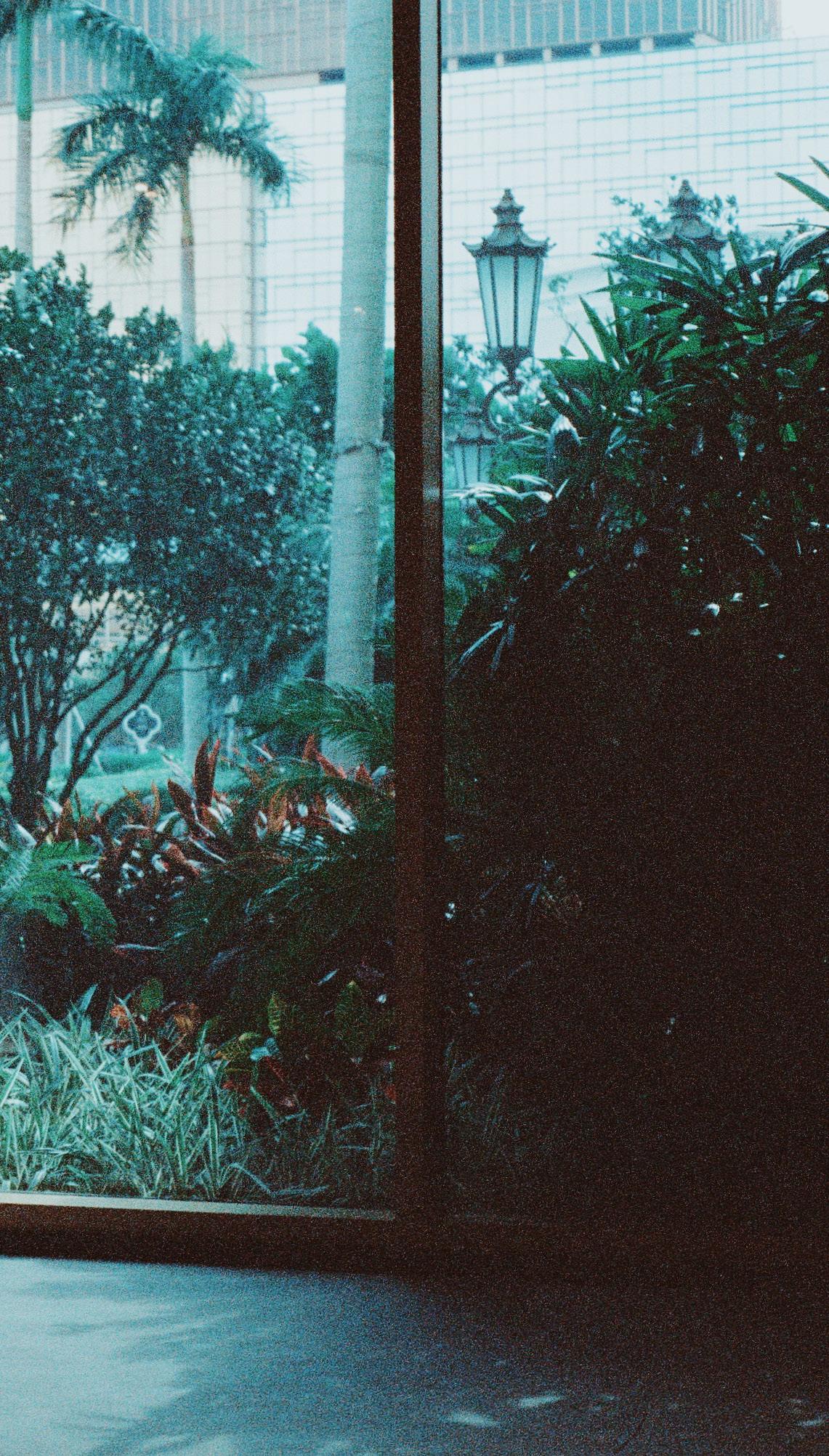
Acknowledgement
of Country
Glass Media and the Queensland University of Technology (QUT) Guild acknowledge the Turrbal and Yugara people as the First Nations owners of the lands where QUT now stands. We pay respect to their Elders—past, present and emerging—their lores, customs and creation spirits. We recognise that these lands have always been places of teaching, research, learning and storytelling.
Glass Media and the QUT Guild acknowledge the important role Aboriginal and Torres Strait Islander people play within the Meanjin community.
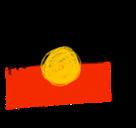
Cultural Warning
Aboriginal and Torres Strait Islander readers are warned that the following magazine may contain references to deceased persons.

Disclaimer
Glass Media informs readers that the views, thoughts and opinions expressed in this issue of Glass belong solely to the author. These views are not necessarily shared by Glass Media or the QUT Guild.
Editor’s Letter
Hello,
This wasn’t the editor’s letter we thought we were going to write when we were first elected. As you may be aware, the role of Newspaper Editor is up for re-election, so this may be the last time we’ll write to you as a team. You can read more about this online at qutglass.com. With the very real possibility that this could be our first and last Glass issue, we (Em, Jasmin, Jess and Ashleigh) decided to throw ourselves into this issue and give it all we’ve got.
THE GLASS EDITORS EMILY READMAN JESSICA PERKINS JASMIN GRAVES ASHLEIGH NORTH“
For a magazine that only sailed its maiden voyage last year, Glass has taken some incredible strides. This is the seventh edition of the magazine, ever. To have produced something we are so proud of with a such a small, albeit mighty, foundation—thanks to Nikita, Matt, Lucy, Alana and Liam—is truly more than we could have ever hoped for.
We hope this issue encourages you to take a moment to pause. We hope this issue makes you laugh and cry just like it did for us. Seriously, we cried. Like, ugly cried. We hope it helps you identify the stigmas in your life and enourages you to challenge and maybe even break a couple.
With love, and in the face of the unknown, Your Issue Seven Editors, Em, Jasmin, Jess and Ashleigh
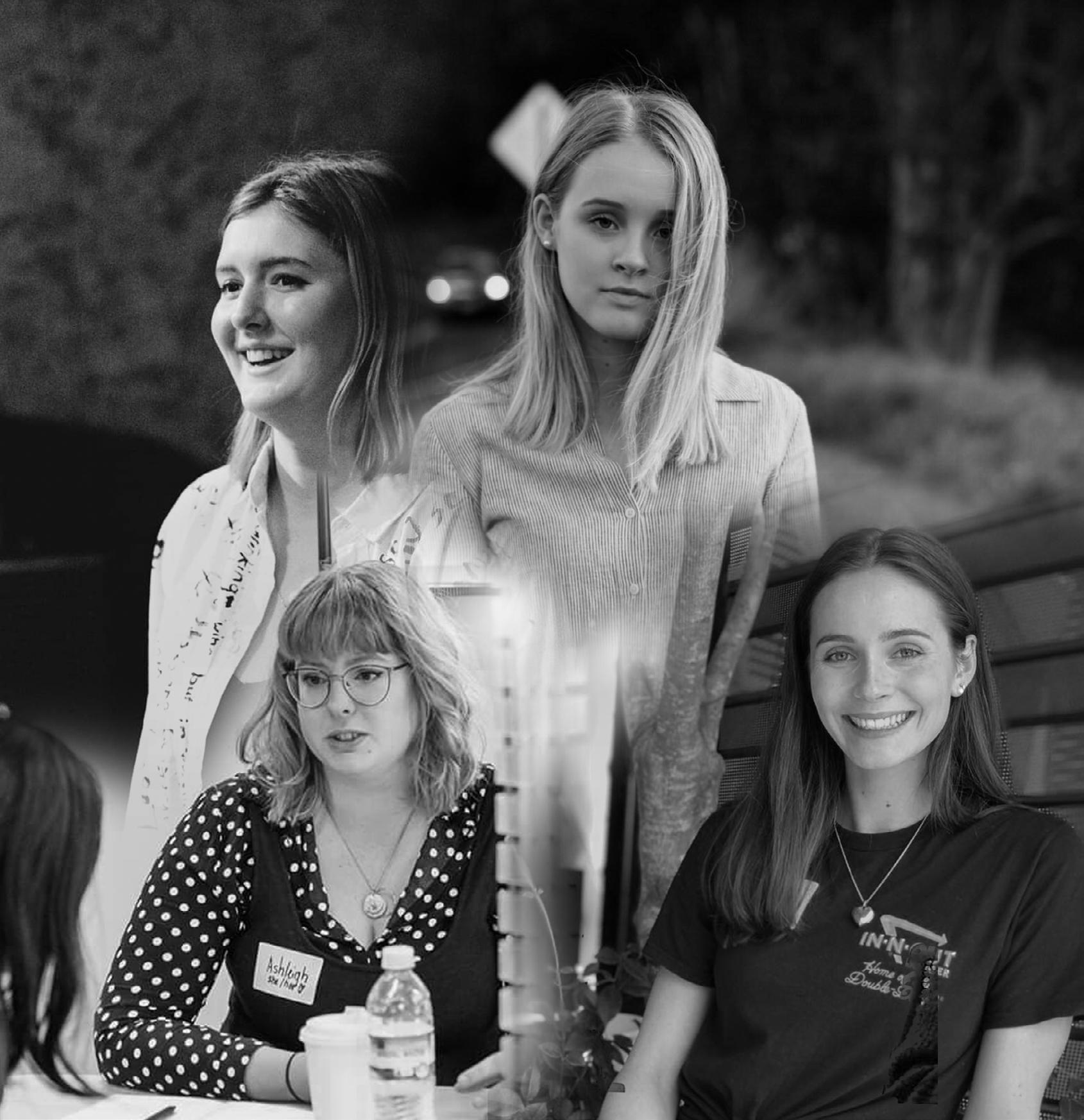
Breaking Stigmathe
That only a few people ‘make it’ – success is relative.
Cover Photography captured by Julienne
But, enough about us. Glass Magazine is about you. You sent in some incredible work for this issue. From what you sent us in Instagram poll responses, written pieces and artwork, it was very clear to us what stigmas need breaking in the Glass community. You wrote to us about relationships, mental health, bushfires, environmental concerns, ableism, careers, religion and community. The artwork you submitted represented the things that mattered to you, the things that scared you and the things that made you who you are. You were vulnerable and shared with us your deepest secrets and the most honest versions of yourselves. For that, we couldn’t be more thankful.
PanchoStigmas some of you would like to see broken...
That tattoos will stop you from having a happy and fulfilling career.
That being empathetic and hopeful is childish and naïve.
That having a political opinion means you are argumentative.
That sexual assault makes you breakable – I am anything but.
That mental illness equals weakness.
That women need to be hairless.
President’s Letter Contents
Hey,
My name’s Liv. I’m a fourth year law student at QUT and I’ve had the honour of being elected as your Guild President for 2020! I’m so excited to see the launch of the first issue of Glass for the new year with such a topical and important theme: ‘Breaking the Stigma.’

For me, breaking the stigma means pushing through my comfort zone to challenge myself: in my studies, social circles and work. It means taking risks and saying ‘yes’ to new opportunities after being restricted for so long by my struggles with my mental health. For my first two years at university, I was very isolated and disengaged. The only time I stepped foot on campus was to attend tutorials and to sit my end of semester exams.
Last year I took a risk and said yes to running in the Guild elections, and in doing so catapulted myself into the thick of university life at QUT and I’m so glad I did. There’s such a wonderful sense of community and acceptance among the student body at QUT and I want to spend my year as President building upon this and raising awareness of the vital services and support the Guild can offer – services I wish I had known about when I was a first year student.
For those who don’t know, the Guild is your student union: we operate independently from QUT and we’re here to look out for you and make sure your experience at university is positive, safe and fun. We help run clubs and societies, hold cultural and social events on campus, offer free advocacy services, legal and tax help and provide assistance if you ever get into strife with the University.
Our offices are located on Level 2 of C Block at the Kelvin Grove campus and my door is always open. So, feel free to drop by if you’ve got an issue you’d like to raise or just want to grab a coffee and have a chat.
Thank you for picking up a copy of our amazing student publication. I’m so glad that we’re able to provide a platform for QUT writers and artists to showcase their work and I’m immensely proud of all the hard work and long nights our Glass Editors have put
Join The Club
Looking to join a club or society?
Here are a few of the student-run clubs that the QUT Guild has on offer.
QUT Qube Club
Hi Qubers! We are the QUT Qube Club – the only club in QUT with a strong passion in Rubik’s Cube! Each semester we run fortnightly seminars where we provide educational programs in solving basic to advanced cube varieties. We have a range of challenging cubes yet to be solved.
QUT Economics and Finance Society
The QUT Economics and Finance Society aims to inform, inspire and incorporate its members into the real world. Some things can only be taught outside the classroom and EFS helps equip its members with skills needed for success. Through professional, educational and social events, EFS positions its members for an exciting and fulfilling future.
QUT Car Club
QUT Car Club is a social club for all car enthusiasts of QUT! Our members own a wide range of cars and we regularly host car meets and cruises for a chill time with other like-minded car enthusiasts. Our members also get to enjoy discounted track events such as sprint days and skid pan sessions.
QUT Quidditch
Calling all witches, wizards, squibs and muggles! Grab your broomsticks and wands and get ready for a truly magical time with QUT Quidditch. Be enchanted at our Yule Ball, test your knowledge at trivia nights and compete in the extraordinary sport of Quidditch, whilst having a truly fabulous time.
QUT HR Connect
QUT HR Connect is a society that connects students to the HR industry, supports students in gaining work experience and employment in their field and provides networking opportunities. We work across university disciplines to connect students through our social and networking events throughout the year. So come, #connect!
QUT Asian Pop Society
The QUT Asian Pop Society is your number one spot for all things Asian Pop. We’re a social society on campus that connects people together in an inclusive and welcoming space. Whether it be an interest in idols, dance, variety and drama programs, food or culture, QUTAPS is the place to be.
NorSK
NorSK is a social club started by Norwegians, but now famous for fun and parties with Aussies, Europeans and everyone in between. The giant Week Two Scandinavian Pub crawl every semester is a must-do for all students. Join the moose to help make our time at QUT as legendary as the Vikings!
QUT Dungeons & Dragons Guild
What do Vin Diesel, James Franco, and Stephen King all have in common? They all play D&D, along with over 150 QUT students. We’ve developed a supportive tight-knit community where we play D&D and other board games. Members also score discounts and deals at a bunch of nerdy stores and bars.
Artsy at QUT
Artsy aims to engage students from any background, regardless of whether they have art experience or not. This is a community where people can develop a sense of spirit and belonging within the university environment.
QUT Women in Science
The mission of QUT Women in Science is to promote equality and equity in the scientific field by creating a community focused on empowering, supporting and connecting women in science – with members of all genders welcomed. Our primary objectives are to provide a support network as well as encourage professional development and career opportunities for women enrolled in science and science related degrees at QUT.
QUT Dance Society
We are QUT’s go-to social dance club! We organise affordable weekly dance classes conducted by professional instructors and offer a wide variety of styles: hip-hop, jazz, K-Pop, ballet, Bollywood, contemporary, et cetera. We welcome members of all experience levels and we even perform at QUT events! Come join our little family!
QUT Malaysian Students Association
Looking for a home away from home? Fear not, QutMySA welcomes you to Brisbane! Enrich your university experience outside of the classroom and walk out of your comfort zone as you meet new kawans while participating in our Malaysian events throughout the year! Don’t say I bojio ah!
Queensland Optometry Student Society
2020: the year of good vision for life and a good year to look into your optometry society, QOSS!
QOSS holds mesmerising events open to all, facilitates networking opportunities and peer support programs for optometry students and supports OGS in addition to releasing st-eye-lish merchandise.
QUT Justice Society
The QUTJS aims to create a safe community for Justice students and students interested in the area of justice. We give them the opportunity to engage and give back to the community. We run professional events like Coffee with a Cop, court tours, panel nights on topics such as cybercrime, counter-terrorism and human rights, and social events like charity trivia nights, BBQs and our famous Justice Ball!
Vena Cava Productions
We are a student-run theatre company dedicated to providing development and performance opportunities for every student. We believe student art is worth recognising and aim to integrate our members into the industry by offering opportunities for students to make connections, share skills and enhance their portfolios.
QUT Business & Management Student Association
BAMSA is a student-led organisation that aims to bridge the gap between academic and real-world experiences for QUT Business, Management and Human Resources students. We do this by hosting a range of corporate events, with an Executive that strive to provide members with the tools for their real-world transition. Join the BAMSA fam in 2020 to see what the hype is all about!
QUT Cricket Club
G’day guys! Gear up for something new and exciting at QUT: our very first cricket club. It’s a social sports club where everyone is welcome to see how fun cricket really is. Let’s meet, play, chill and repeat. The best part is that IT’S FREE! We have some amazing events heading your way.
Student Paramedic Undergraduates (SPU)
SPU aims to assist students throughout their university degree by providing academic support with self-directed learning and peer assisted sessions, organising professional development events and conferences and hosting various social events. We strive to enhance the university experience for all paramedic students at QUT.
Join The Club
QUT Creative Industries Society
The QUT Creative Industries Society is a club based around anything and everything creative. We love welcoming anyone into our family, even if it’s just your hobby. Throughout the semester we love providing social events that let members mingle with other like-minded individuals, while also opening the opportunity for possible collaborations. Additionally, we provide professional opportunities for students! If this has piqued your interest, check us out!
Medical Laboratory Science Society
Our club is for students studying Medical Laboratory Science, but our membership spans faculty borders. A big focus for us is community support: we run a Peer Program to facilitate student learning as well as offering guidance in navigating uni. Into nerdy trivia and games? Come to our next social event!
AMPed QUT
AMPed is QUT’s student society for all things Marketing, Advertising, Public Relations and International Business. Join us at our social and industry events each semester to meet likeminded students, gain industry exposure and make lifelong connections in your field! You can also enjoy discounted track events such as sprint days and skid pan sessions.
QUT Women in Law
QUT Women in Law is a strong community of students who are passionate about equality and equal opportunity in the law. We wish to encourage inclusive and constructive discussions on gender inequality, while also creating a fun and social community for all our members.
QUT BANDS
QUT BANDS (Business Analysts and Data Science), is focused on professional and academic development of undergraduate and postgraduate students studying Data Science and Business Analysis at QUT. We have organised many valueadding events since our inception and strive to connect our student members with organisations and professionals who are at the top of their industry.
QUT Law Inclusion of Culture (LINC)
QUT LINC (Law Inclusion of Culture) is a new club that formed at the end of 2019 due to the need for more recognition for people of culture and colour in the legal profession. We intend to help bridge the evident gap in representation for minorities in our legal community. Our goal is to create opportunities for students who belong to culturally diverse groups. We do this through networking, making connections with likeminded students and those in the legal profession, and providing students with opportunities to advance their careers.
2020 QUT CLUBS
QUT Dog Lovers Society
QUT Dog Lovers Society is QUT’s newest and pawesomest club! Becoming an official club on the 20th of February, our focus is on providing inclusive stress relieving fun through having weekly/fortnightly meet ups at dog friendly places. There will be free food, dogs and good times! So, what are you waiting for?
There are over 160 QUT Guild affiliated clubs and societies, so this list is just a sample of what’s available. Clubs and societies are one of the most integral parts of life on campus. There are clubs for special interests, from QUT Veg to QUT Motorsports. There are faculty related groups, religious clubs, sporting clubs, social justice societies, and more. A university campus is nothing without groups of like minded people learning and growing with one another. Clubs and societies are a chance for you to connect with others outside the classroom. To find more information about the 2020 clubs and societies available to students, visit the Clubs and Societies page on the QUT Guild website.
ART: UNDER THE VEIL SHANIA HAIN
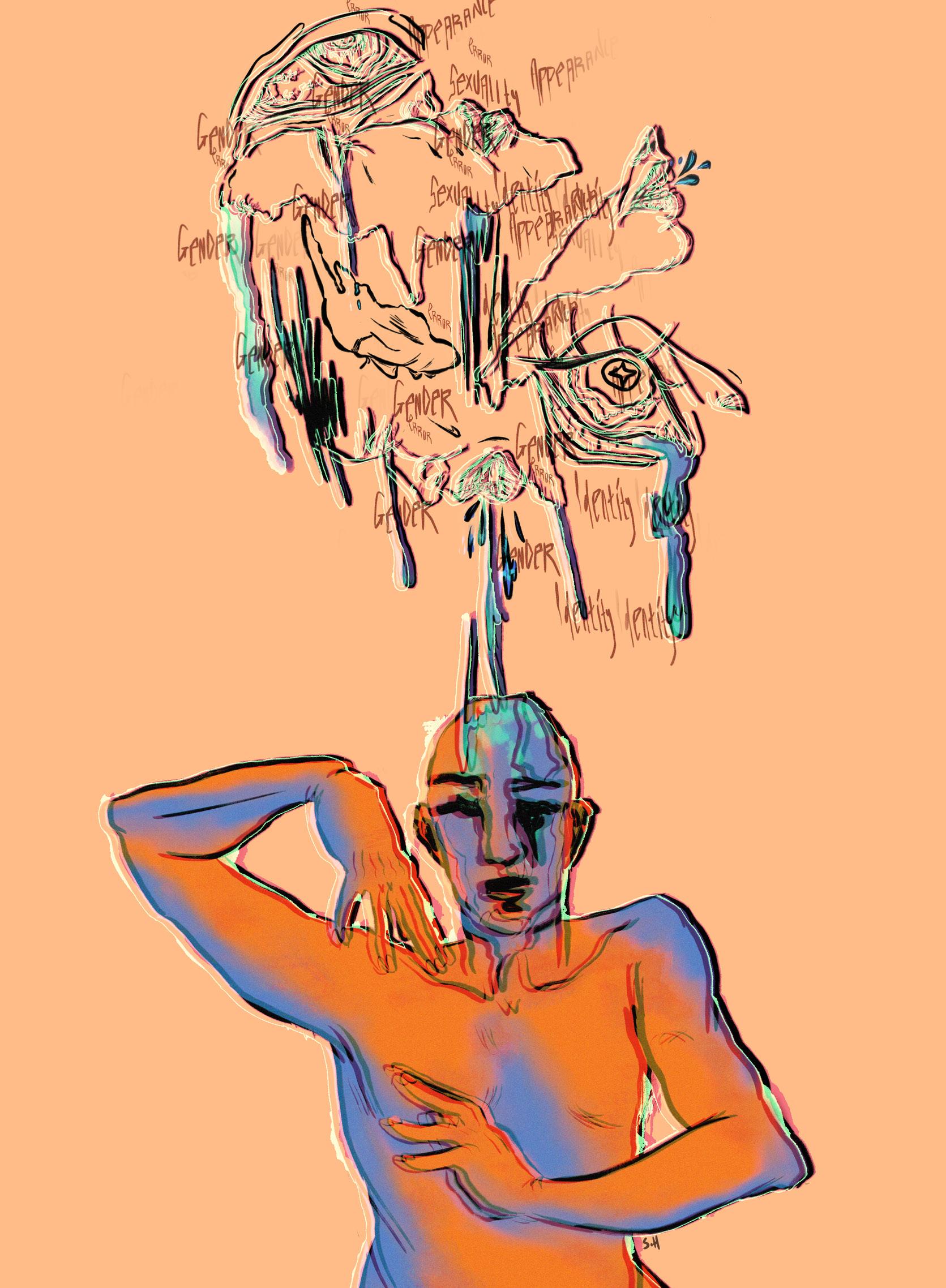
PROGRESS CLAUDIA SHELLEY
When I finish the packet of chips, When I can’t do a push up, When I nod my head to everything, When I can’t pick up the phone, When I leave early, When I don’t go at all, When I make a mistake, and When it seems like a catastrophe, When I cry, When I miss the bus, When I can’t breathe, When I lose every battle, And I keep fighting.
Tuesday morning, Thursday evening, 1 week on,
Blades as blunt as butter knives
Wilt lifelessly on his lawn
A patch of brown loosely stitched In the nature strip’s variegated quilt
3 months past,
A for sale sign pitched on his front lawn
Leans tiredly to the left Fallen tree branches crack and snap
Like brittle bones hitting concrete
The house remains dark No kaleidoscope of pixelated colours Laced with muffled voices Erupting through his kitchen window Blurred blue and red lights orbit the street Ricocheting from house to house A navy uniform asks me questions through furrowed brows and bloodshot eyes
The house’s silhouette furnishes the road
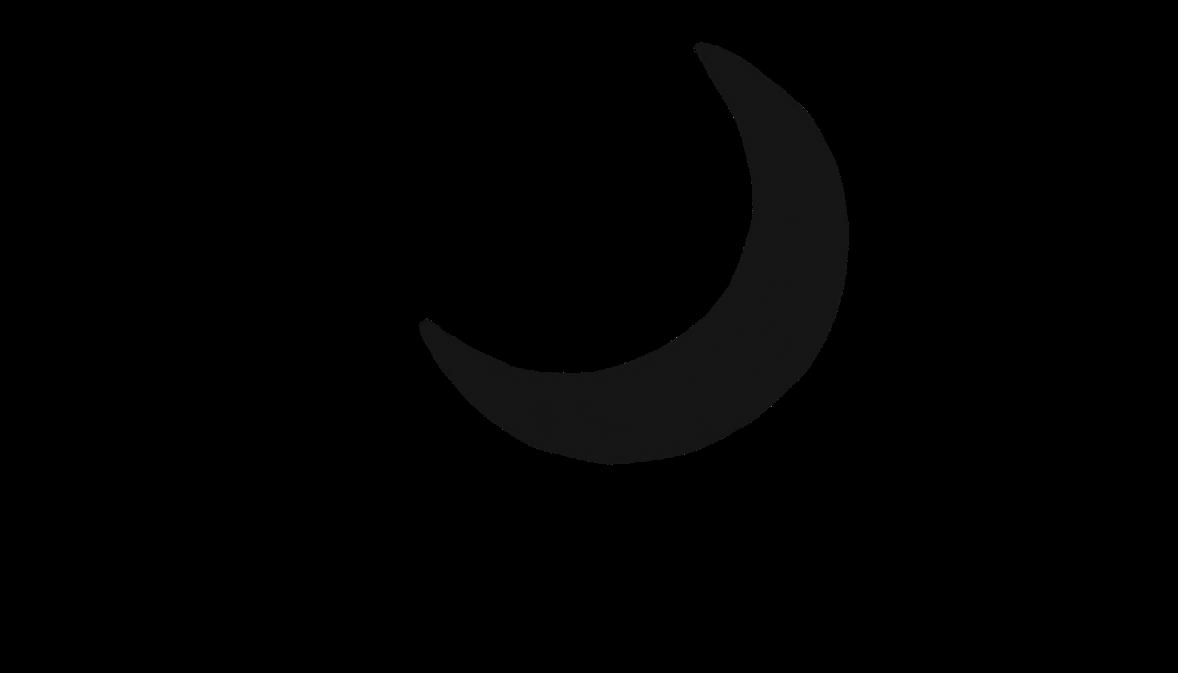
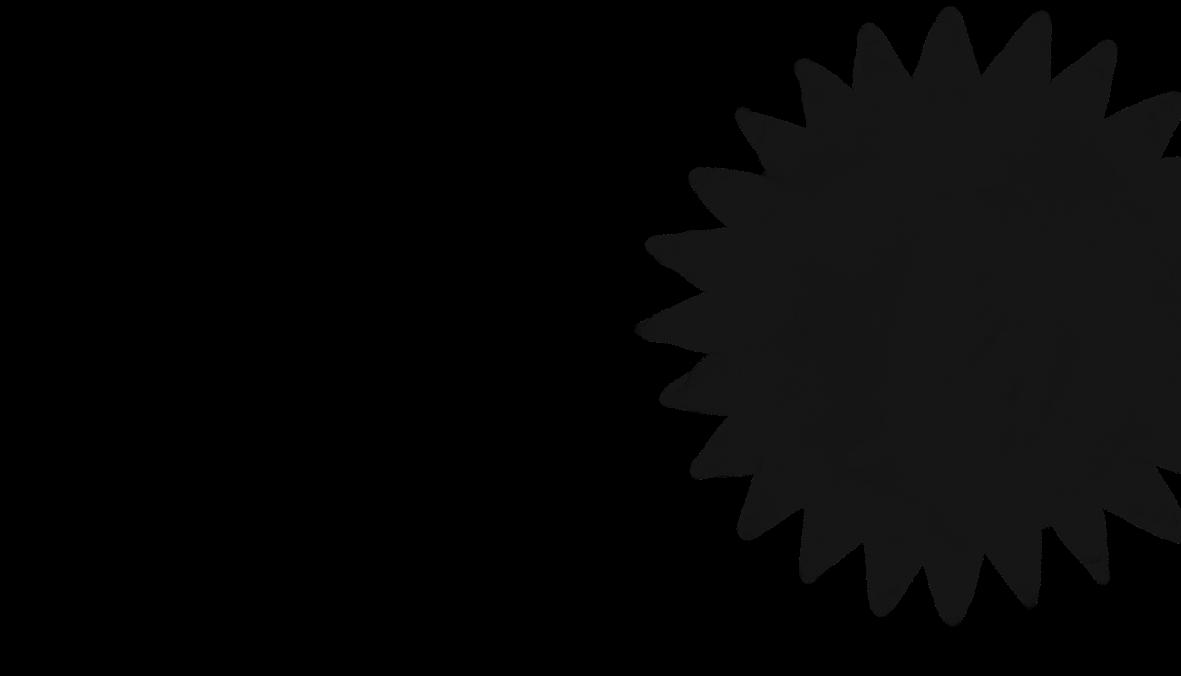
In the last of the afternoon light I think of all the things I should’ve said
As gold turns to sapphire, and day becomes night
I watch my breath dissolve like aspirin
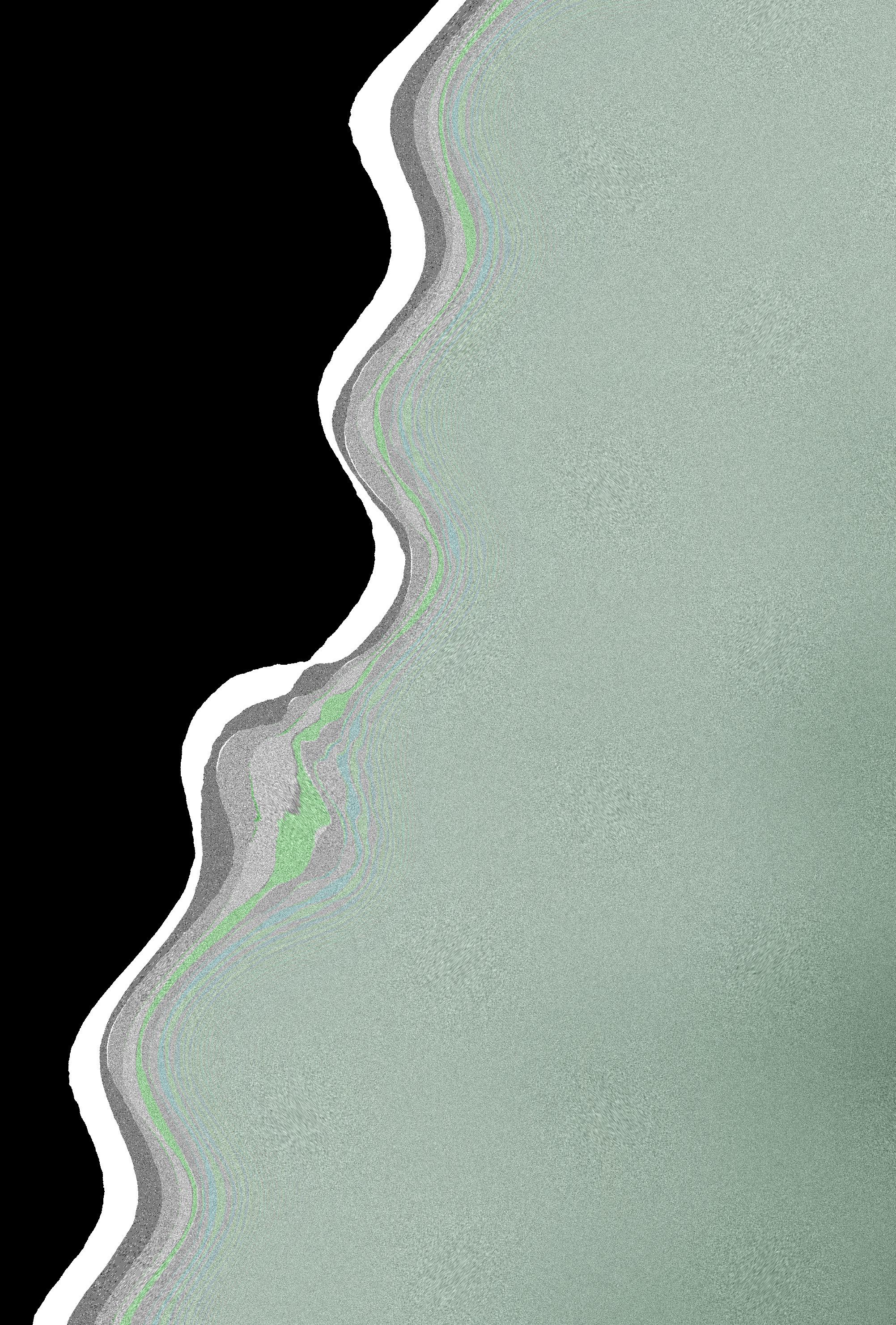
Into the crisp August air outside
As I fumble for the answers I know I will not find
Poetry
PAEAN SARKAR
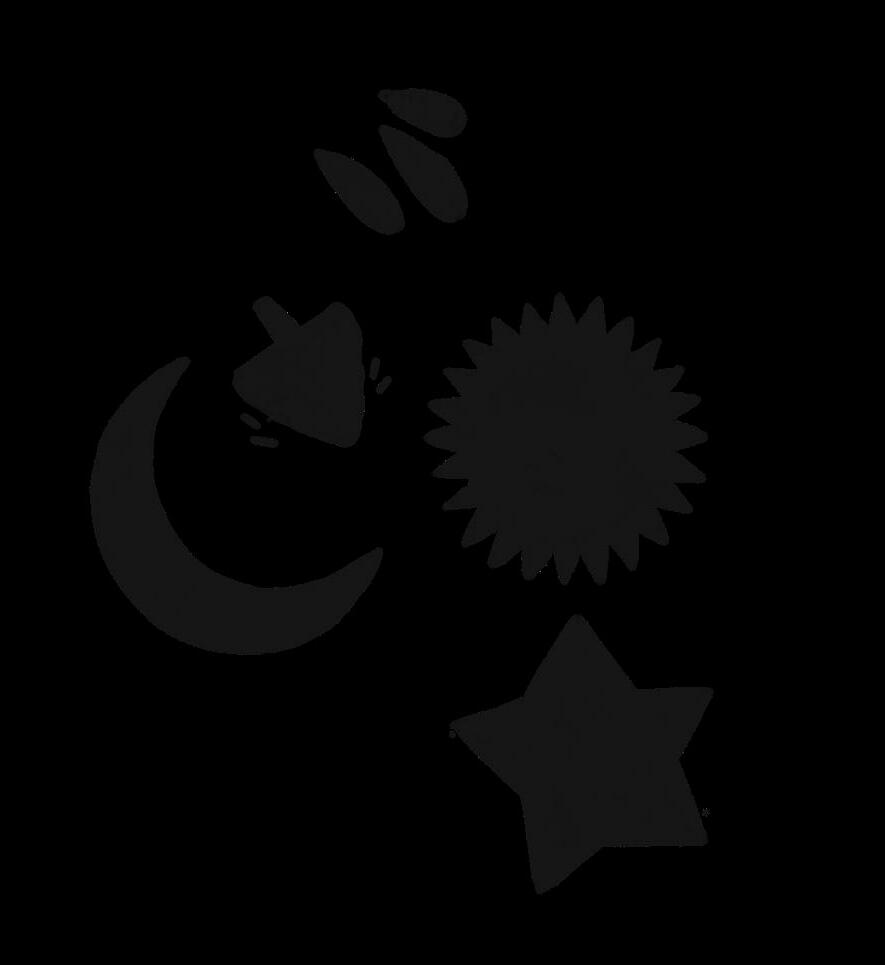
He’s balding under his beret
A thousand cats have gone astray Who is keeping
The world in order?
A mother cries, her baby sleeps
The moon, it follows cars and keeps on Spinning ‘round the earth
Like a man without a purpose.
A taxi hits a traffic cone
Two strangers on the telephone Who’s the maker
Of the mighty rules?
TO THE QUICK CHLOE MILLS
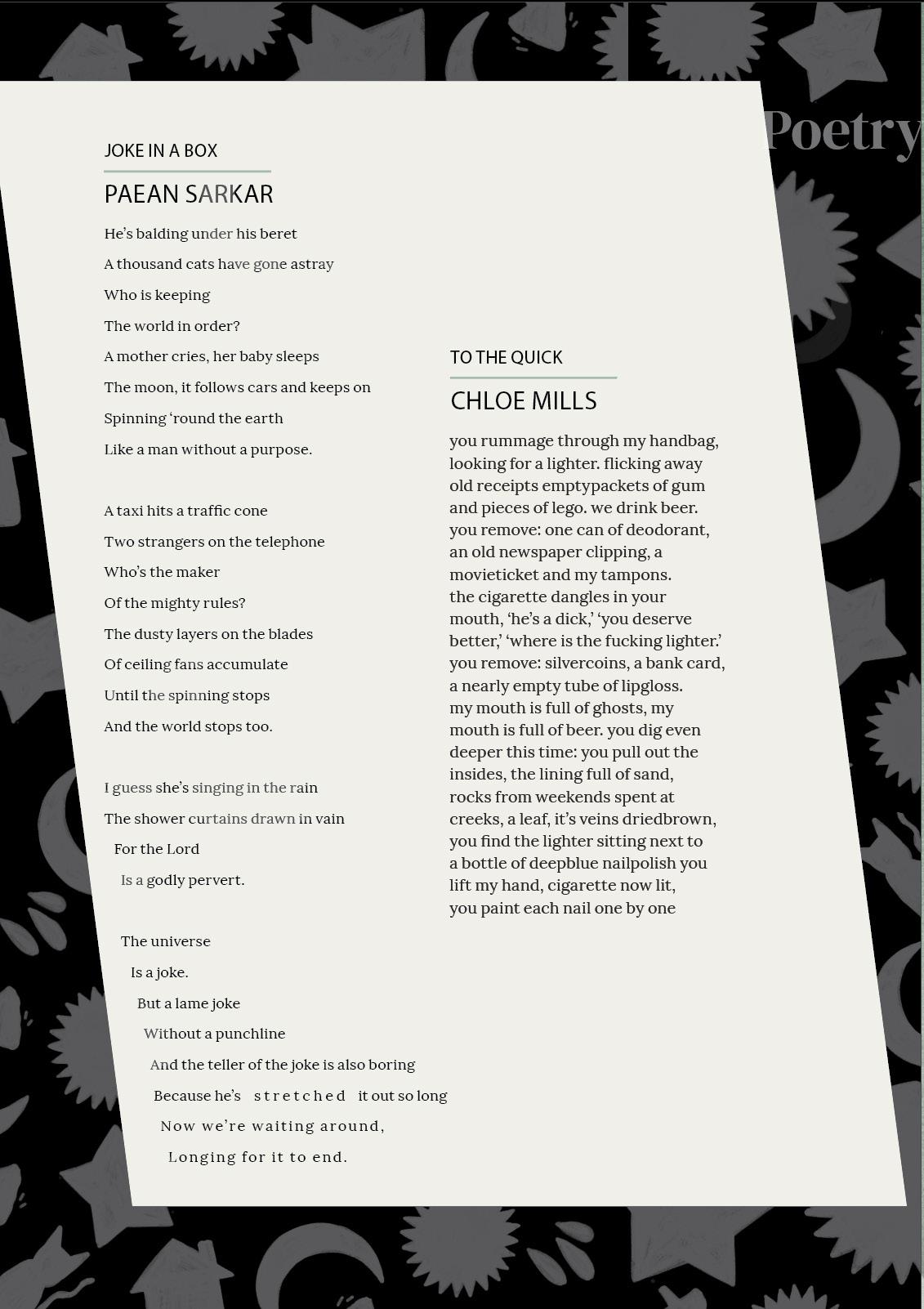
you rummage through my handbag, looking for a lighter. flicking away old receipts emptypackets of gum and pieces of lego. we drink beer. you remove: one can of deodorant, an old newspaper clipping, a movieticket and my tampons. the cigarette dangles in your mouth, ‘he’s a dick,’ ‘you deserve better,’ ‘where is the fucking lighter.’ you remove: silvercoins, a bank card, a nearly empty tube of lipgloss. my mouth is full of ghosts, my mouth is full of beer. you dig even deeper this time: you pull out the insides, the lining full of sand, rocks from weekends spent at creeks, a leaf, it’s veins driedbrown, you find the lighter sitting next to a bottle of deepblue nailpolish you lift my hand, cigarette now lit, you paint each nail one by one
Without a punchline
And the teller of the joke is also boring Because he’s stretched it out so long Now we’re waiting around, Longing for it to end.
SEVEN LESSONS IN HEALING TRISTAN NIEMI
I.
A book begins with the opening of the cover, a removal of the superficial. A book ends with the consumption of the last page. Closure is not found reading online chapter summaries.
II.
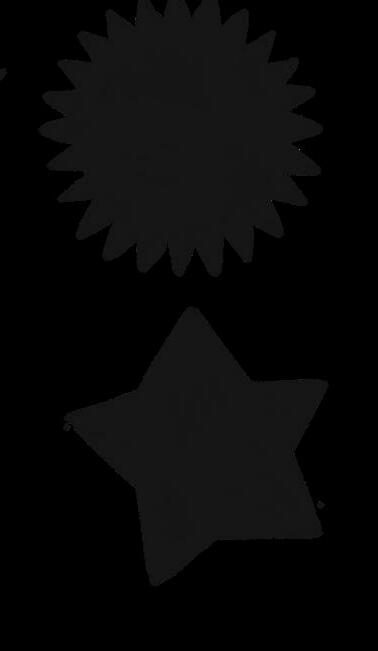
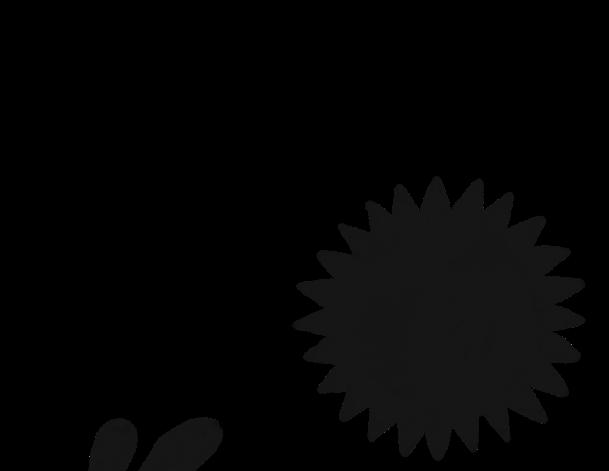
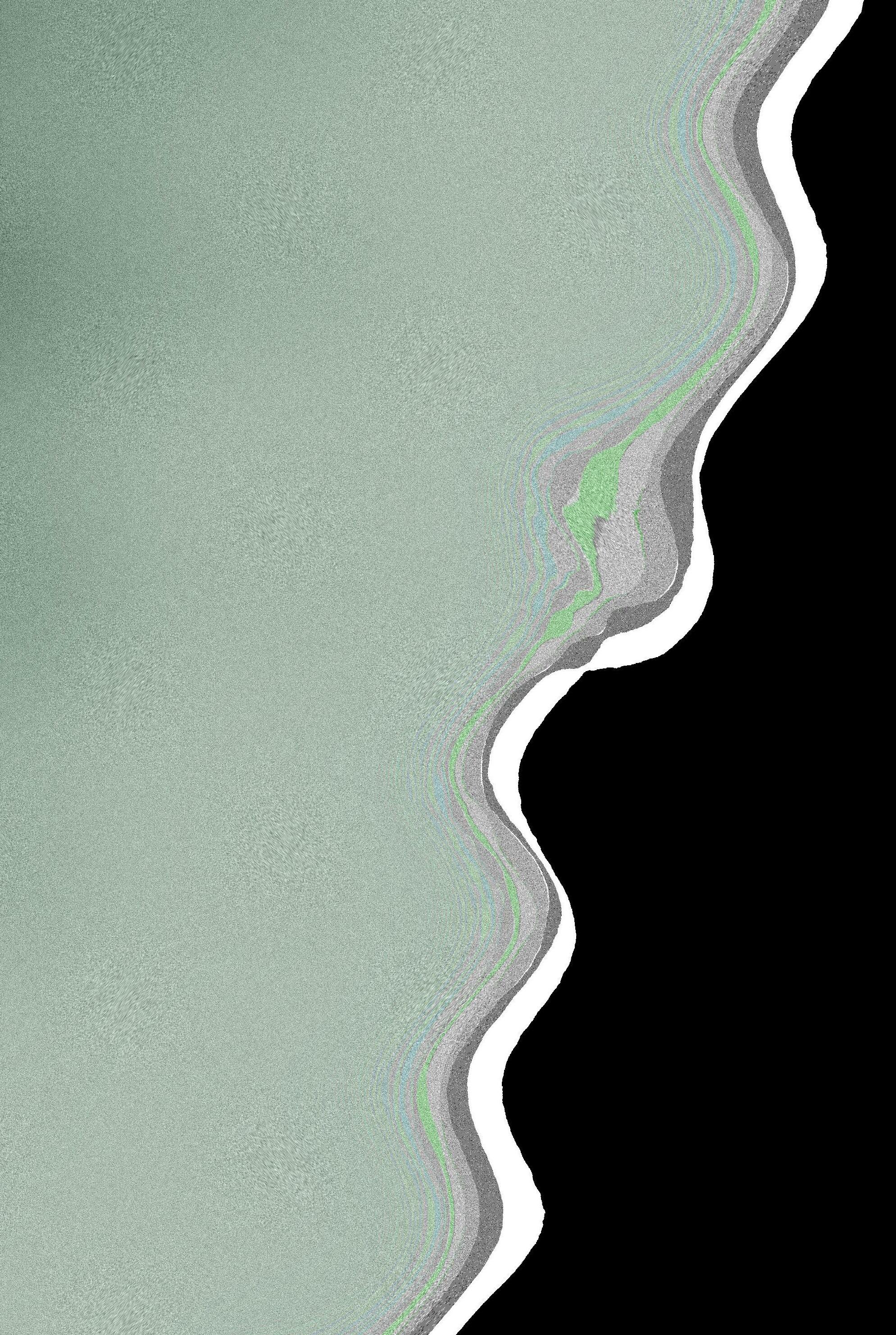
Everything changes when you cocoon yourself in a blanket of belief. It will remind you of how to believe in yourself. Just as blankets remind you of warmth, when there is only cold.
III.
My mind is a glutton, forever feasting on the news of the day. My body is an archivist, one who delights in rubbing salt in my more abstract wounds.
IV.
Reflection has twin daughters, Alone and Lonely. Though they are identical in looks they behave as individuals. Doing different things to the mind; Alone comforts, Lonely consumes.
V.
My body finds music endlessly fascinating. In its longing for dance, I have been forced to abandon my mind many a time. And it seems, that to lose your mind, is to find your soul.
VI
Humanity is not designed for the delicate task of developing the bliss-to-strife ratio of life’s cordial. Moderation is an undiscovered sacred artefact, and cordial is always defective. Either it’s dismally colourless or disgustingly vibrant. Mathematics is a divine art, and we must remember to treat it as such.
VII.
The wound you’re now grappling with, like Matryoshkas dipped in molasses, might not be the biggest you’ve faced. But it is most certainly your priority, as it should be. How else will you return to child within.
FORESHADOW CHLOE MILLS
before you knew of my mornings spent under soft hands on top of soft sheets, you looked at me with contempt, I knew then that a body would turn up it was in an apartment on the corner of Heidelberg Street the dog wouldn’t stop barking while he held the small of my back pressed me into his side hid me under his long hair yours was cut short, but sometimes you let your beard grow down past your chin you looked at me with contempt again after you found out about the bare boned house, the second body wou ld be found, floating along the river I watched from the picnic table my arm rest ing over his leg reaching out for the fingers splayed upwards in scum slicked water, your hand slipped many times onto cheek, lip, neck mine slipped, only once but I died twice
OBSESSED SOFIJA PILETIC
sometimes I forget / that I am made up of natural matter human flesh is more like koalas & molten rocks / than smartphones & financial problems / our flesh is soft a bruised mango / crushed raspberries at the bottom of our bag we are more like butterfly wings / colourful but transparent
TWO MINUTES OF MY THOUGHTS ANONYMOUS

maybe one would do. actually, half is fine. half a slice of toast, one-fifth of a teaspoon of honey. yes, that should be under 50. so that covers lunch. but maybe first I should do 120 star jumps to burn the 10 raisins I just had. yeah, there’s no way I can eat toast
if I don’t do this. maybe I’ll do 80 squats afterwards too. that way I can fit in a half of a peach too, maybe. but it’s looking alright. yesterday it said I was at 42. maybe I can have a full peach instead, as a treat. but what if it goes back to 43? no. I’ll just skip it altogether. I’ll just eat at night. but then the food won’t get digested if I sleep. I’ll just have water.
DREAD GEORGIA SANDERS
The sweetness goes to our heads There’s sugar cubes in the water supply We burn sacred forests and scream At the fools who dare to get high Serpents make the most sense When they snap their tails and roll Like men with eyes for the sky As they dig their way into holes
The vultures are waiting for me And the worms are waiting for you So say cheers to the Earth’s satellite Because what else can we possibly do?
With you all, I loved, now I am formally
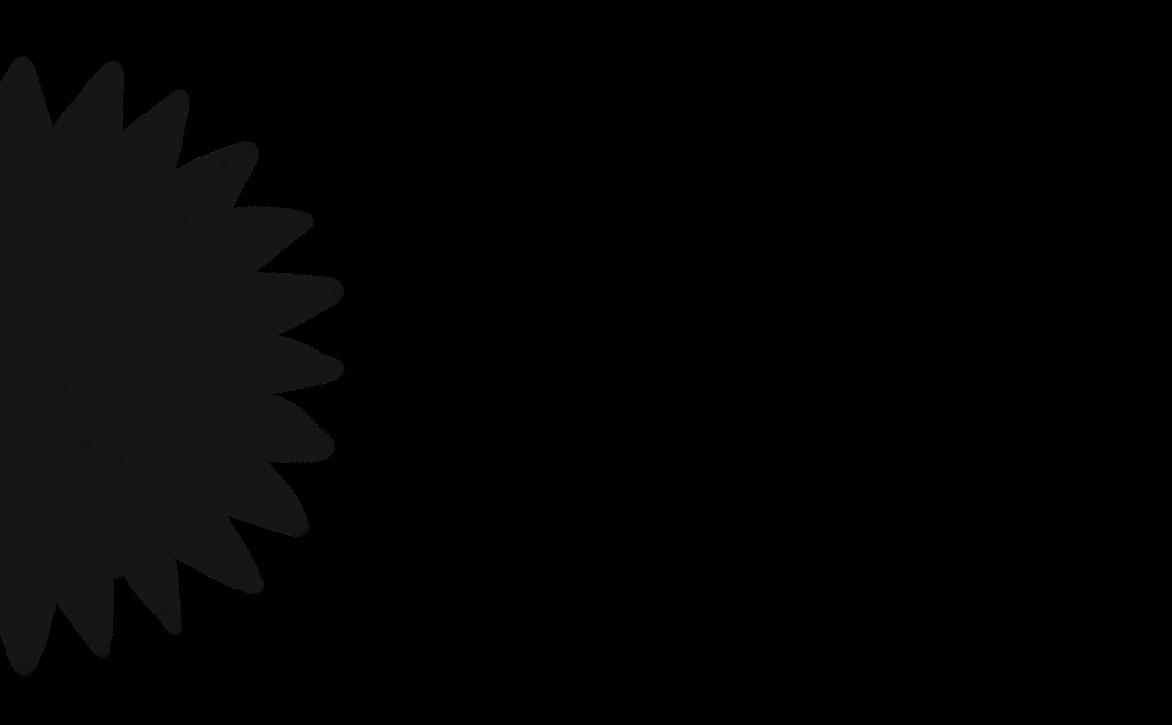
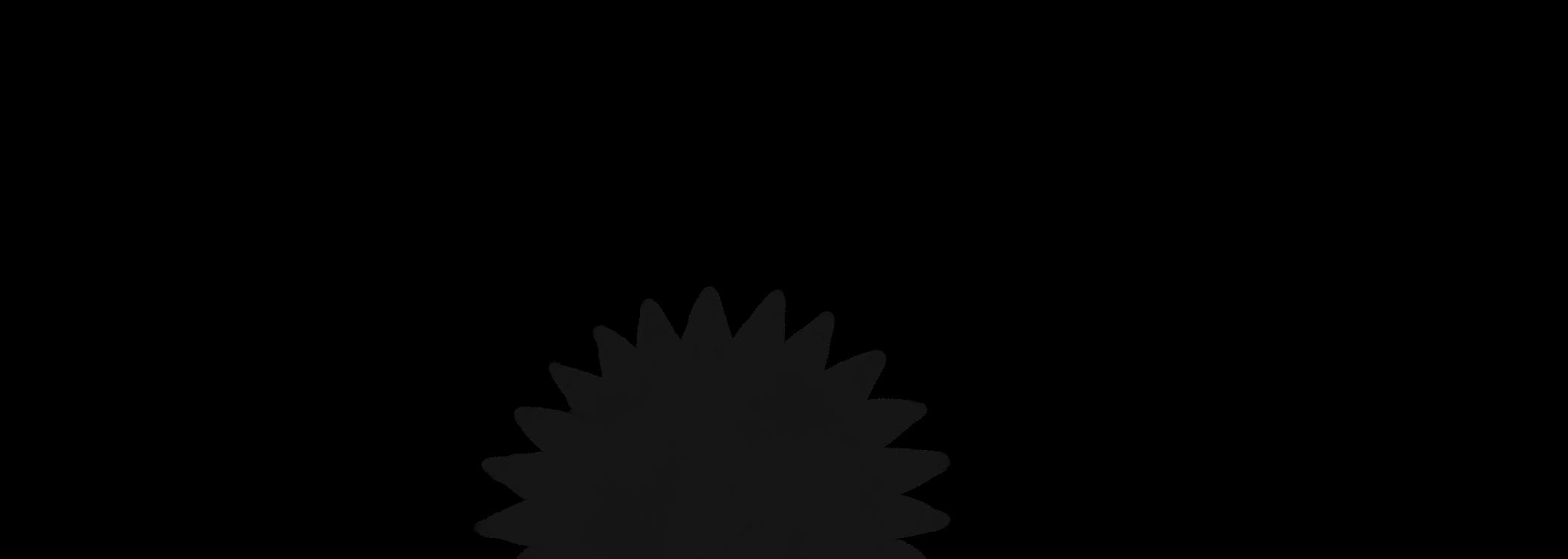


Finding A Moment With Anna Jacobson
Amnesia Findings (UQP, 2019) is her first fulllength poetry collection. In 2018 she won the Thomas Shapcott Poetry Prize and the Queensland Premier’s Young Publishers and Writers Award.
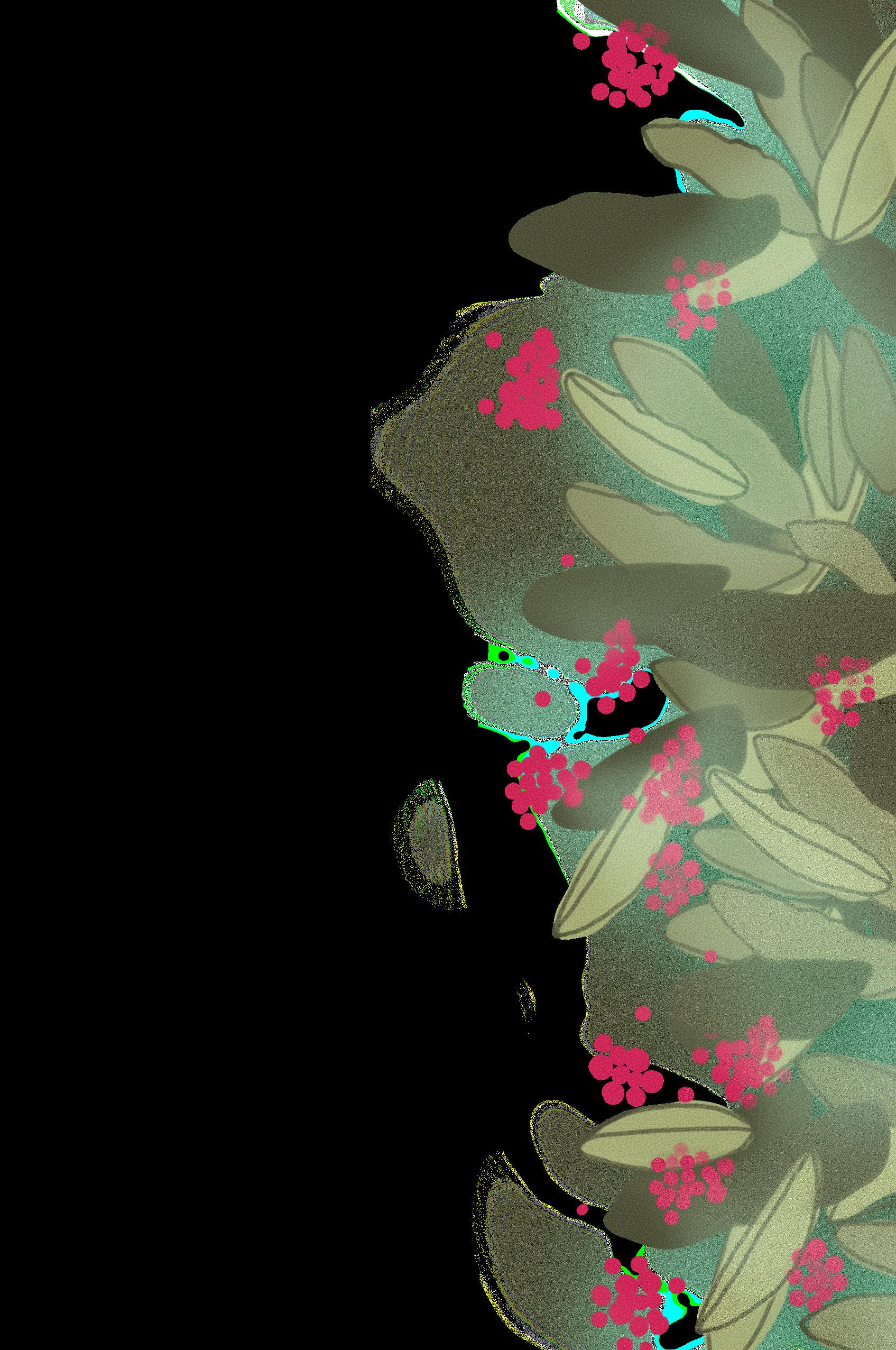
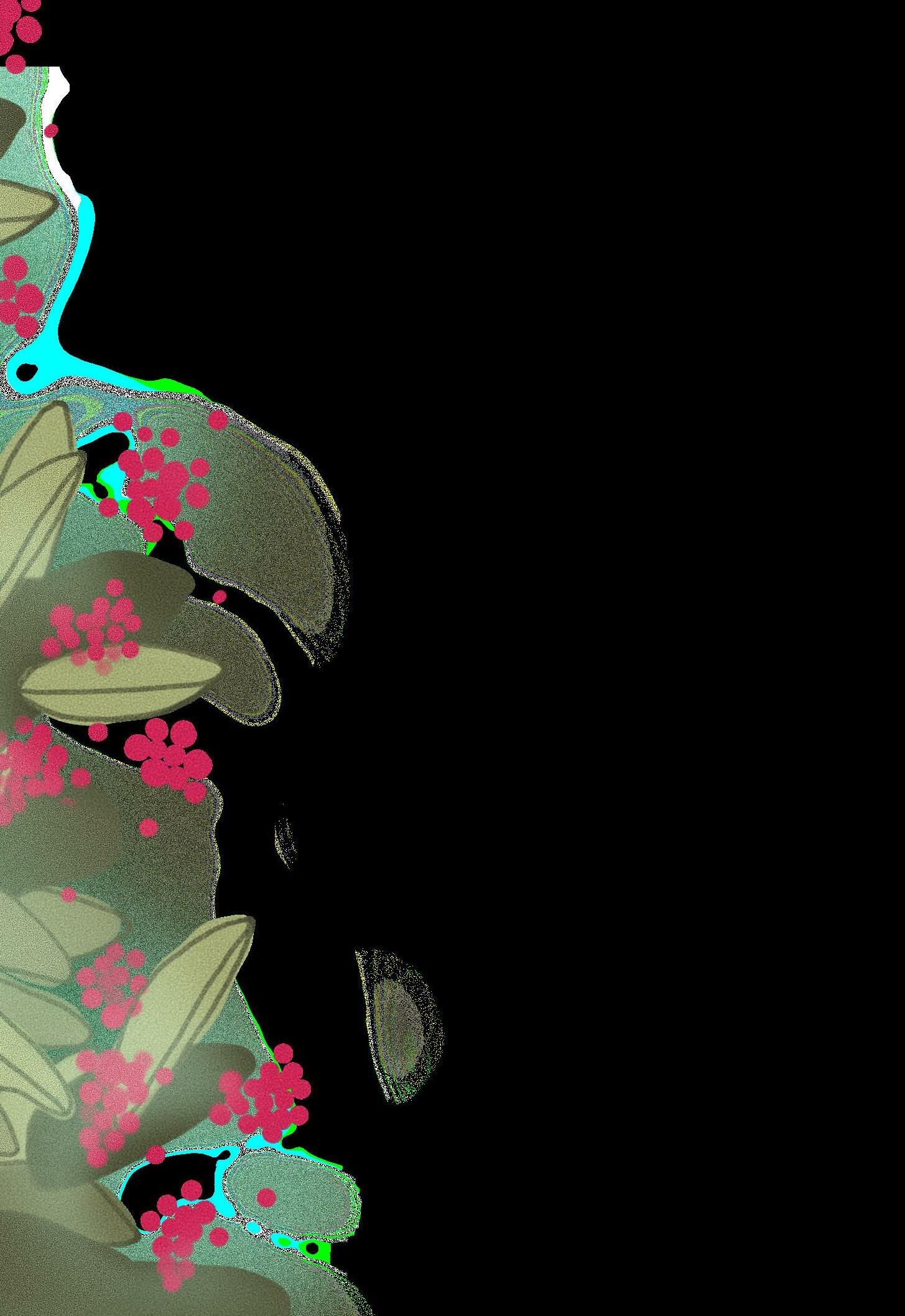

Anna’s poetry chapbook The Last Postman (Vagabond Press, 2018) is part of deciBels 3.
I sat down to interview Anna late last year and chat about her stunning debut collection, ongoing community involvement and any plans she has for the near future.
Sean: Congratulations, Anna! It’s so wonderful to see your first poetry collection, Amnesia Findings, alive in the flesh. How do you feel about it finally being out in the world? Have there been any particularly unusual places it’s turned up?
Anna: Thank you so much, Sean! It’s so wonderful to share my work, and to have it in a book I can hold. I feel very grateful and I’m especially excited it’s in libraries now too. I haven’t discovered any unusual places it’s turned up yet, apart from the journeys I take it on! I had fun taking a photo of Amnesia Findings next to the communal mulberry tree, which features in my poem ‘2011’.
S: That’s such a lovely excerpt, thank you for sharing it with us. So, for those who haven’t read the book (yet), how would you personally describe the body of work? I’ve noticed the poems are deeply personal and enriched with family history and often centre around ritual.
There’s a mulberry tree that overhangs the footpath near the park, with berries that appear in spring. Too high for children to reach – the perfect height for a recovering twenty-something.Anna Jacobson is a writer and artist from Brisbane.
my introduction to Alcott’s acclaimed novel, the modernisation of it is evident. This is not a negative though – far from it. Rather, it allows the film to feel liberated from the bindings of what has come before and is instead able to breathe as its own story as told by writer-director Greta Gerwig. This mostly comes through in the actors and how they play their characters, most evident in the on screen chemistry between Saoirse Ronan and Timothée Chalamet who play Jo and Laurie, respectively. They’re given a freedom in their performances that doesn’t strictly demand they adhere to conventions and attitudes of the time the film is set. Save for the language of the film; the characters feel as though they could’ve been plucked from Gerwig’s own 2017 feature Lady Bird, just as easily as they could’ve come from Alcott’s original novel.
Gerwig has created something very special here –something that can simultaneously be based upon a book published in 1868 and feel so refreshing and relatable to our current social environment. Even the lack of proper recognition for Gerwig—or the multitude of other phenomenal female filmmakers last year (like Céline Sciamma or Lulu Wang)—in the Best Director category at this year’s 92nd Academy Awards only speaks to the strength and continued importance of the original text.
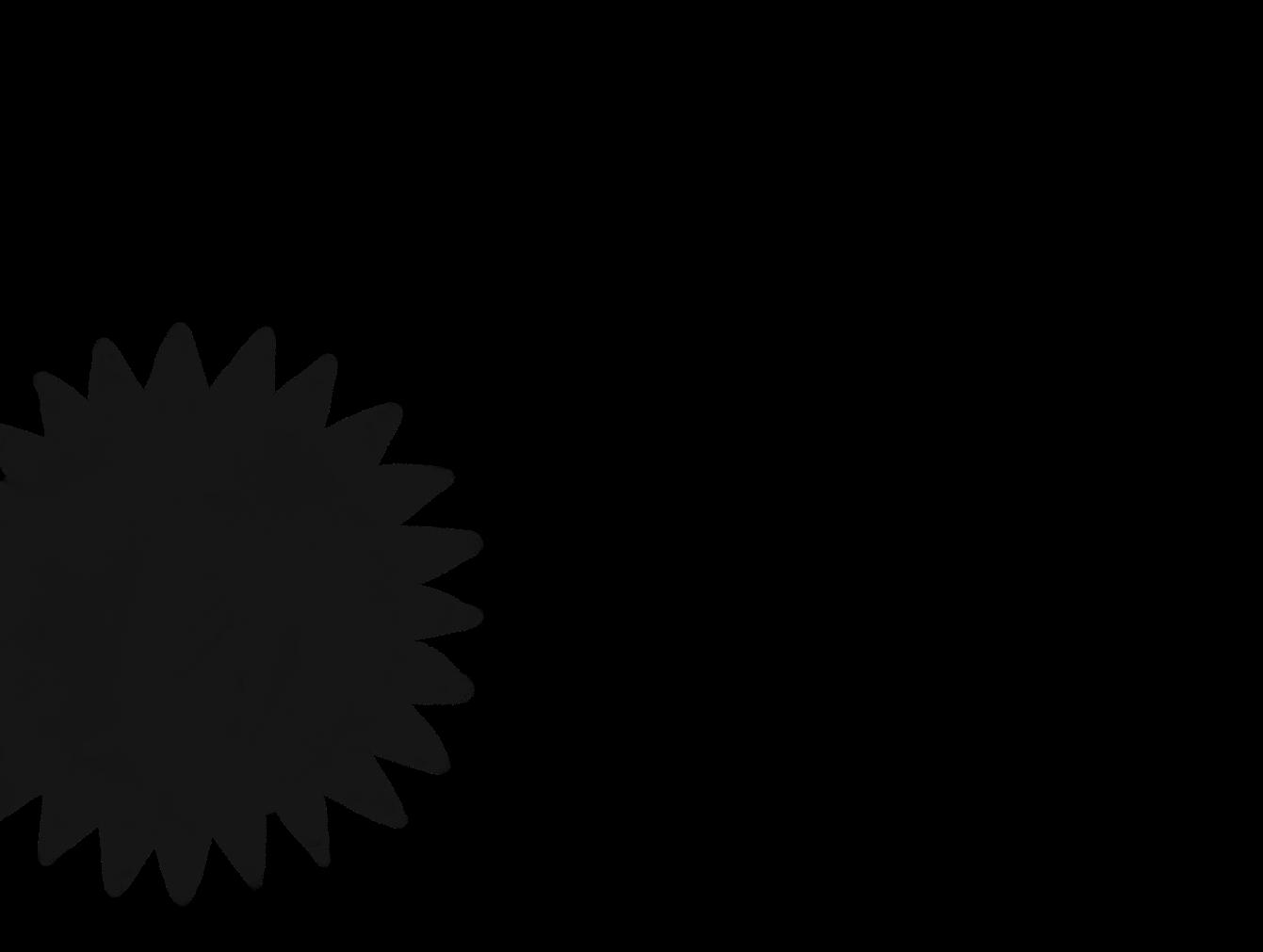
It’s funny. It’s charming. It’s heartbreaking. It’s well worth your time.
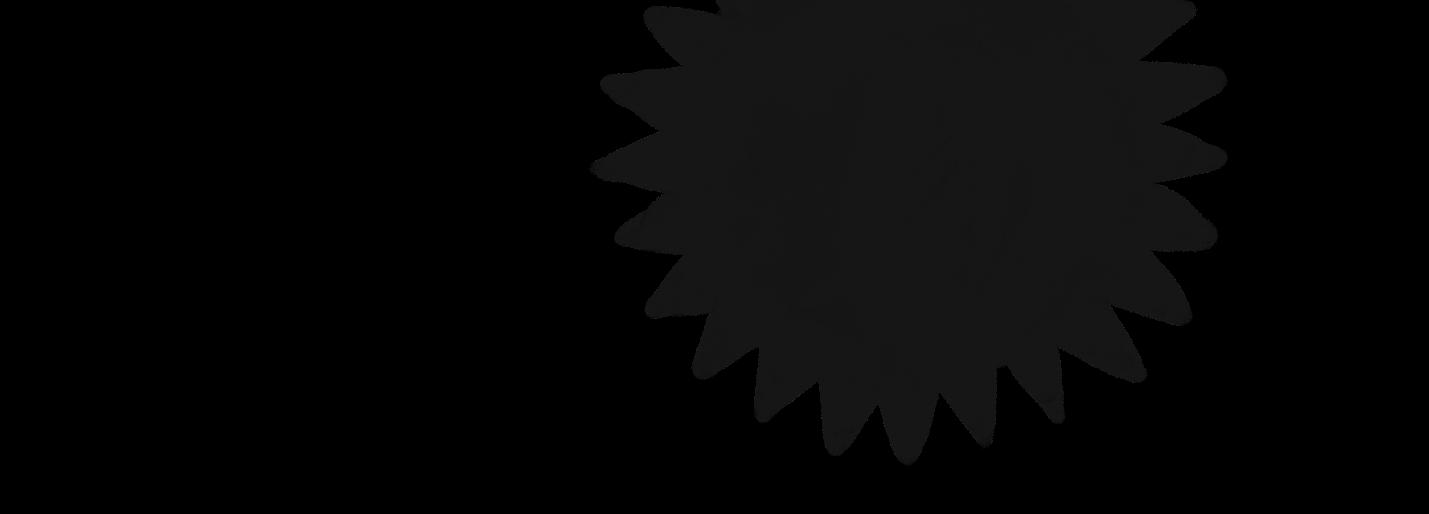

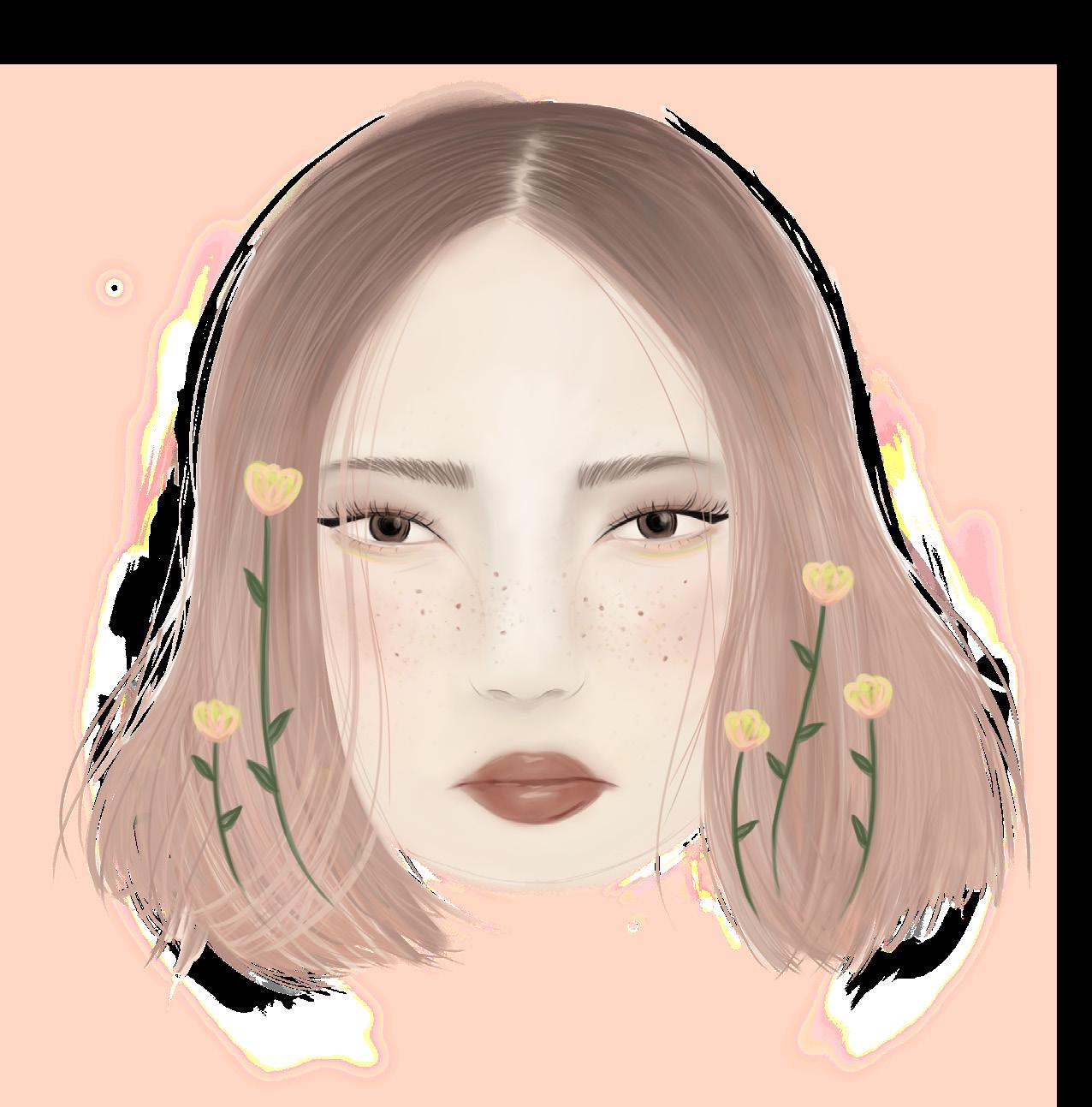
Parasite
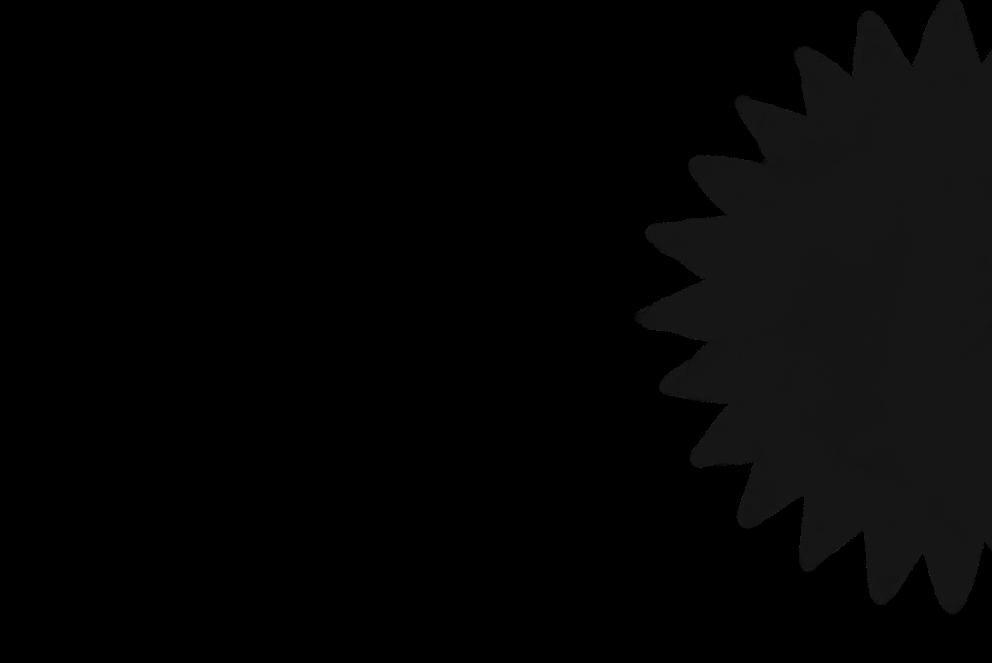
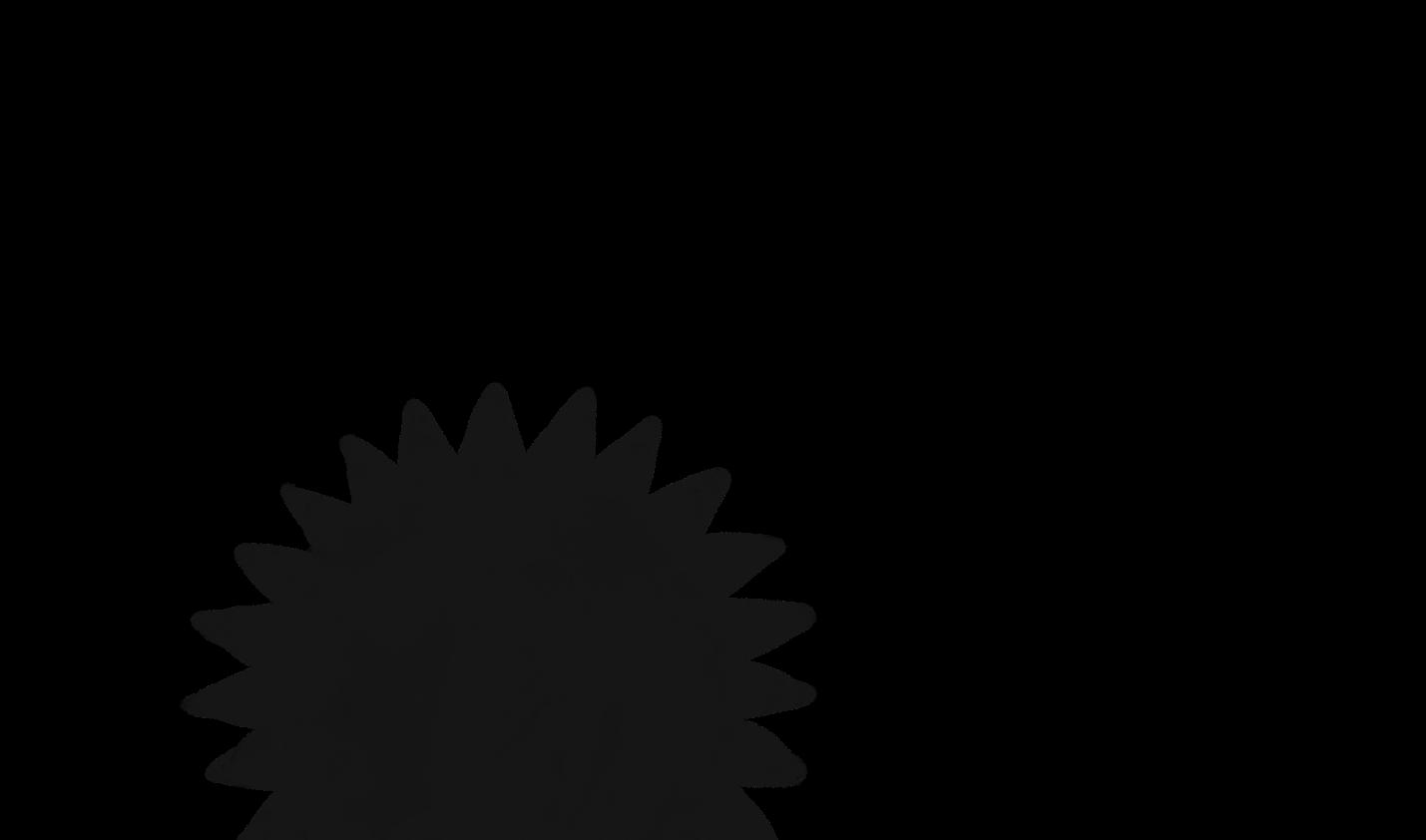
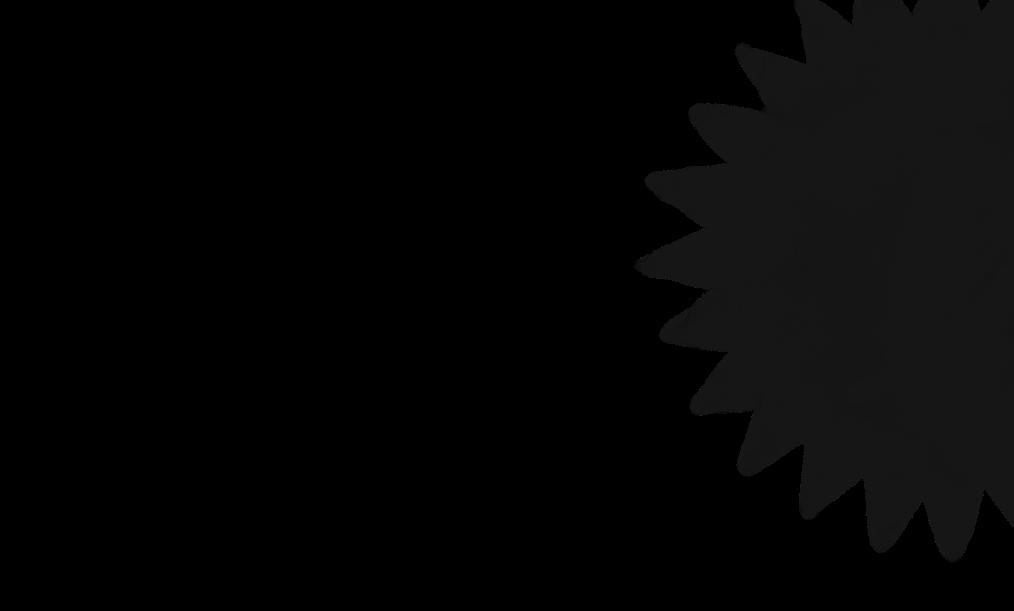
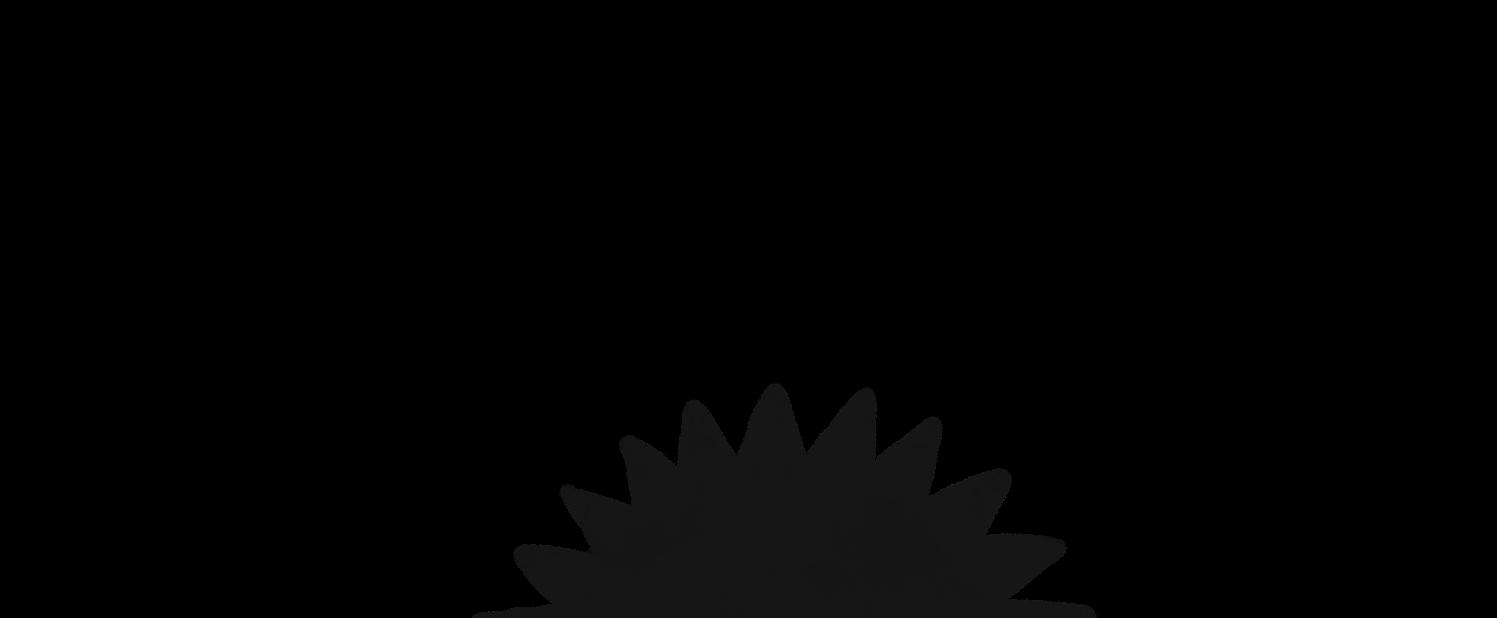
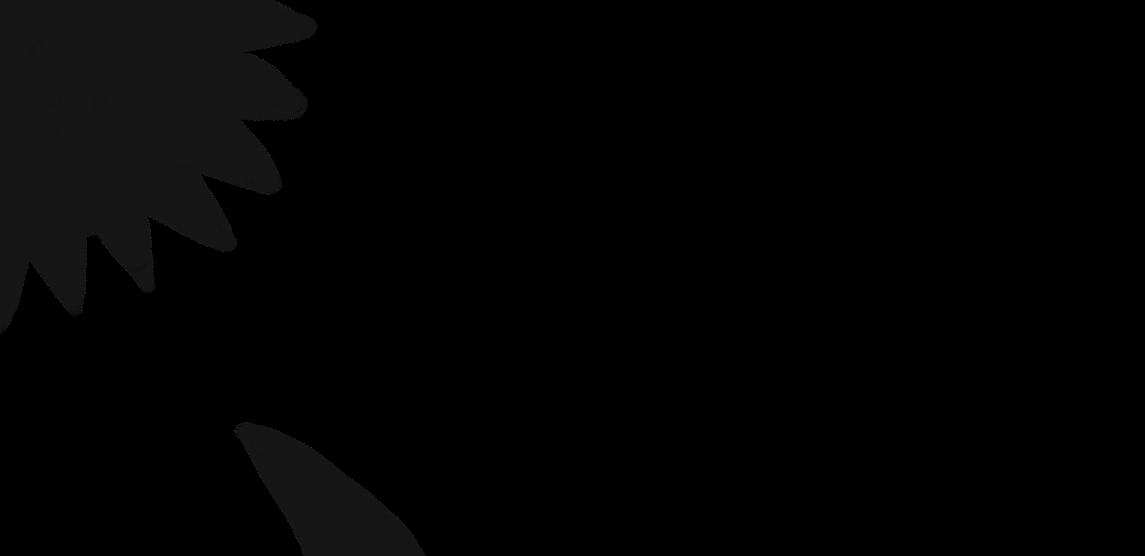
I see a person. Their head is down. Their gaze is on the screen in front of them. They are alone. They have their shoulders hunched. They don’t look up.
I hesitate, I take a step forward, I hesitate again. I’ve seen this person. I’ve seen them around. I’ve walked past them before. I see a person. I don’t know them, but I want to know them. I stop. I’ve been told things about them before. I’ve been told not to speak to them. To not play into their “drama”.
‘Have you heard?’ Someone had asked me.
‘No? Heard what?’ I’d replied.
‘They were crying in the bathroom.’
‘What over?’
‘I don’t know,’ they’d said with a shrug. ‘Does it really matter?’
‘Well, yeah. What if something is wrong?’
‘Why would something be wrong? They always do this. They just want attention.’
I take a step forward. I see a person. I want to see if they are alright. They’re crying. Hands over their face. I want to help them.
‘They ran out of class,’ someone had whispered to me.
‘What happened?’ I asked.
‘They lost their shit.’
‘Did anyone bother to see if they were okay?’
‘Why? They’re always like this. They’ll get over it.’
SIAHNE HILLS‘What the hell? They’re struggling.’
They shrugged. ‘So? Everyone’s struggling with something. But you don’t see others losing their shit.’
I see a person. They look up, they offer a shy smile, they look away. They appeared to be working on something. I take another step forward. Would they mind if I spoke to them?
‘Just keep walking. They’ll tell you their life story. You don’t want that,’ I’d heard someone say.
‘But what if they want someone to listen?’
‘You don’t need their drama.’
‘How is listening encouraging drama?’
‘Like I said: you don’t need their drama.’
I see a person. I want to help them. I want to support them. I’d turned to the person who had spoken with me and said, ‘I’m done listening to your bullshit. I’d rather support someone. Not listen to gossip.’
I see a person. They’re at a table and huddled into a corner. They have headphones on. I wonder what type of music they’re listening to.
I take a step forward. I’m close to them now. What if I’m bothering them? What if they’re busy? I take a breath. I keep going. I sit opposite them. They look up at me. They appear surprised – their eyes wide and soon they’re looking around. They start to pack away their things. Laptop, books, pencil case. I motion for them to stop.
‘No, no. It’s alright. You don’t have to leave,’ I say, ‘I just wanted to know what you were listening to?’
They smiled. ‘Ah, um. “Mister Simple” by Super Junior.’
‘K-Pop? Do you like K-Pop?’ I asked.
‘Y… yeah,’ they replied. Their gaze was trained on the table surface in front of them. They were still smiling. ‘It makes me happy.
I don’t feel alone when I listen to the music,’ they offered. They looked up at me. I smiled, I listened.
I listened as they told me how they felt sad because they felt they had no friends. They told me how they were teased, how sometimes it was hard for them to get up in the morning. They told me how sometimes they wished they could disappear. That sometimes it was better when they were alone. I held my hand out for them to take.
‘Did you want to get a coffee with me? We can talk more.’
I see a person. The person is smiling. They take my hand and grip it tight. ‘I’d really like that,’ they said.
I see a person. They are not alone.
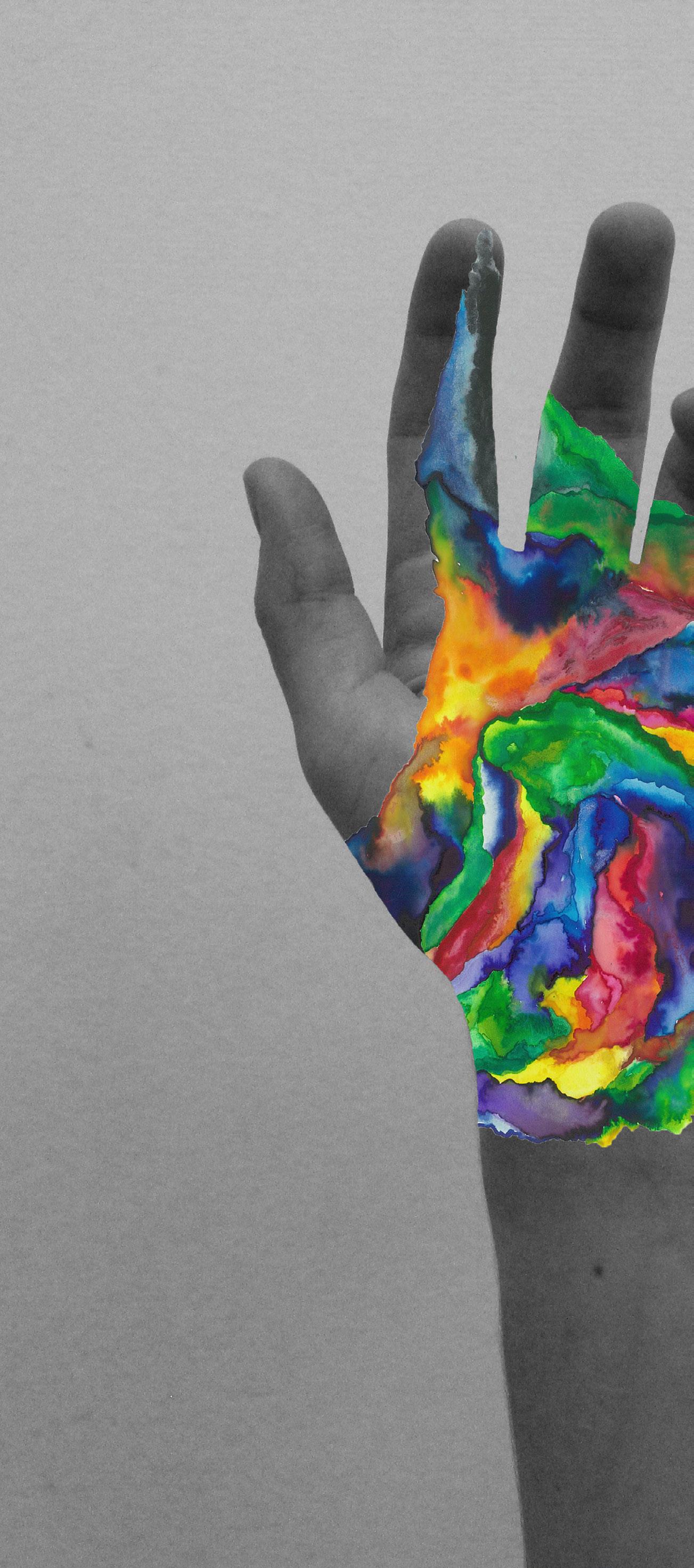
“
Humans Of QUT
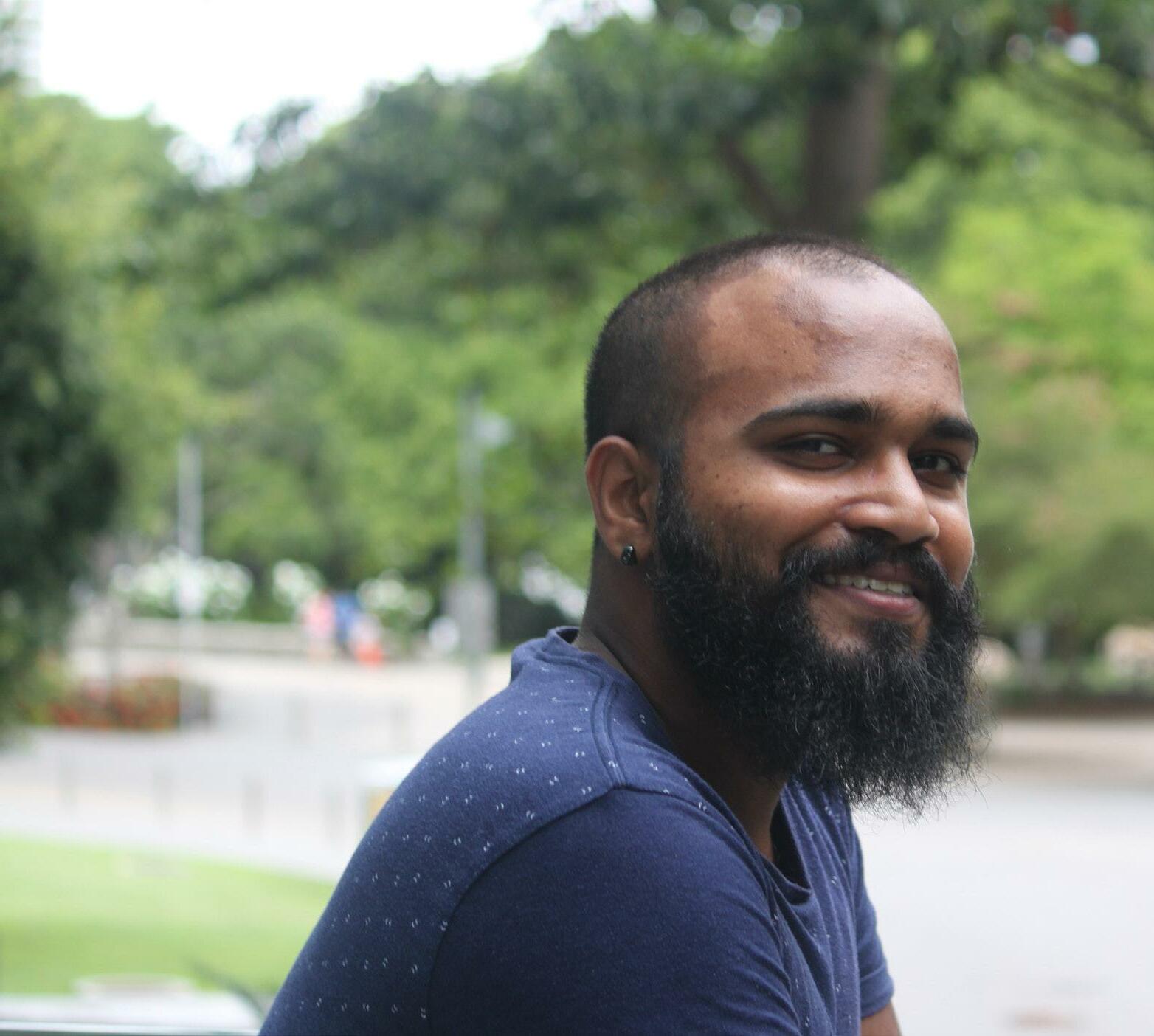
Positivity & Connection
While I’m sitting at my desk, I look up and sometimes people passing by makes me smile.
I enjoy that passing parade of people. I guess I wonder what’s going on for them, especially as the semester goes on. So, this is just a little idea I had for hopefully communicating something positive and supportive to people walking past.
One of my team members, Aislinn, helped me take it from an idea to an action by buying me window crayons. Now every week I try to write a different quote on the window.
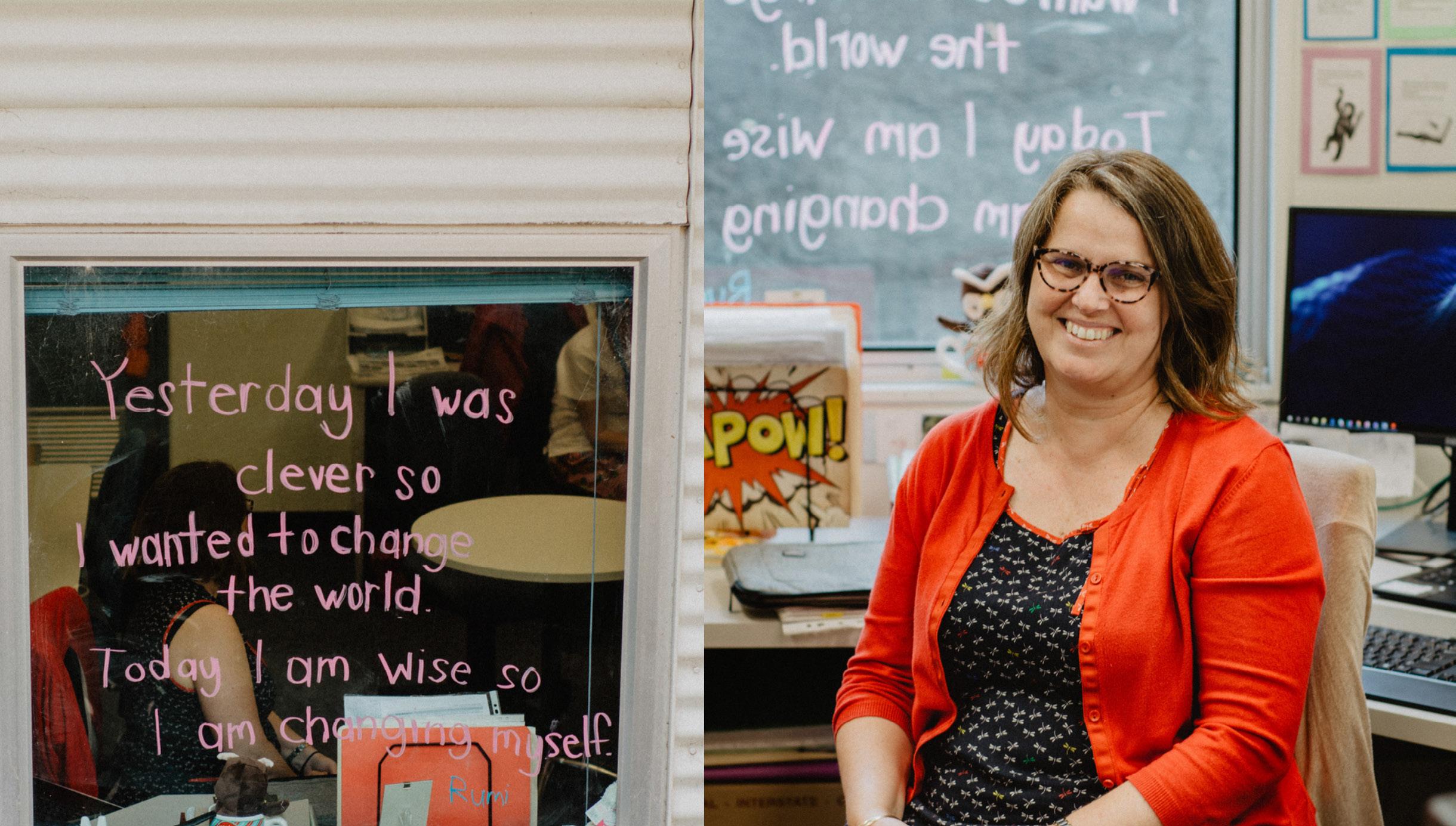
Hopefully, it gives people a feeling of solidarity, community and understanding so they know that they are not alone. I try to choose quotes for certain
I would never write a word”. I wanted to encourage students to just start
Another time, as students were getting back to their assignments, and maybe not getting the results that they were hoping for, I used a Japanese proverb which said, “fall seven times, stand up eight”.
All sorts of things are on the wall that hopefully mean something to students when they walk past. Not just students — anyone who sees it when they wander past my office window!
Be the change that you want to see in the world. Be the change you want to see in yourself and for others to see. I started being the better version of myself when I started posting more memes. I noticed other people seeing that as well, and I didn’t even know I was making these impacts on people’s lives when I started off. I initially didn’t even know people were even looking at my memes – it was just my outlet of dealing with uni and stuff like that. When I got the message from the (StalkerSpace) mods to be a mod, I knew that I could use that platform to help others relax, relate to each other, find joy in this busy world and to hopefully help others become better versions of themselves.
JOSHUA MENDESJust spread positivity and wholesomeness to other people that you come in contact with, honestly, like I’m not doing it just for myself. I want to make as many friends as possible, sure, but I feel so damn happy seeing people happy in their own lives and for them spreading that positivity to others. Being able to connect with people – not just by talking to them, but through the memes they post, through the songs they sing and through their statuses on Facebook – being able to connect with people is amazing. I love seeing all that wholesome and supportive stuff online. So that’s definitely one of the things I’ve been doing, I just love to help make a positive impact on people’s lives everywhere, and I’m happy that my memes are doing just that.
My definition of success is your level of happiness within yourself. It’s the level of how happy you are with how things are going in your life. If you are living up to your potential, then how well are you living up to your potential? Everyone wants to be the best they can, and that’s fine, but if you can define what your core best is and how happy you are with your own scale, I would definitely consider that as success. Being the best version of yourself, not to others, but to yourself, is an incredibly reflective experience. If that version of yourself can also spread positivity to others and to help them become the best version of themselves as well; then that’s just beautiful. It makes the whole world beautiful as well, one person at a time.
From Queensland To California
EM READMANTell us about your most rewarding moment with Roo Coffee.
For me, it’s the everyday moments! I love seeing our customers connect and build friendships with each other. In the last month, I’ve witnessed two of our regulars collaborate and record a song and the neighborhood mums join together to create a “moms club”. It’s the little things that really make what we’ve created so special.
What’s your go-to coffee order?

In LA: always a 16oz Iced Oat Latte (from Roo, of course). When I’m back in Brisbane: an 8oz whole milk latte from Dovetail!
Elyse Goyen
Elyse Goyen is a QUT Alumni with one of the best claims to fame our University has ever seen: she made fairy bread cool in America. I sat down with Elyse to talk about Southern California, Vogue, Roo Coffee and her Brisbane roots.

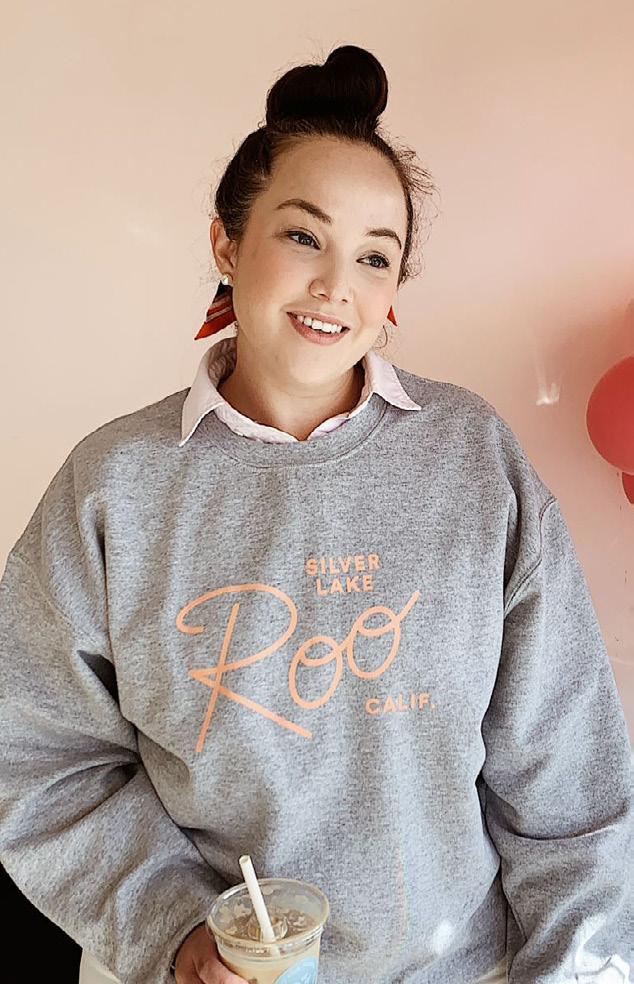
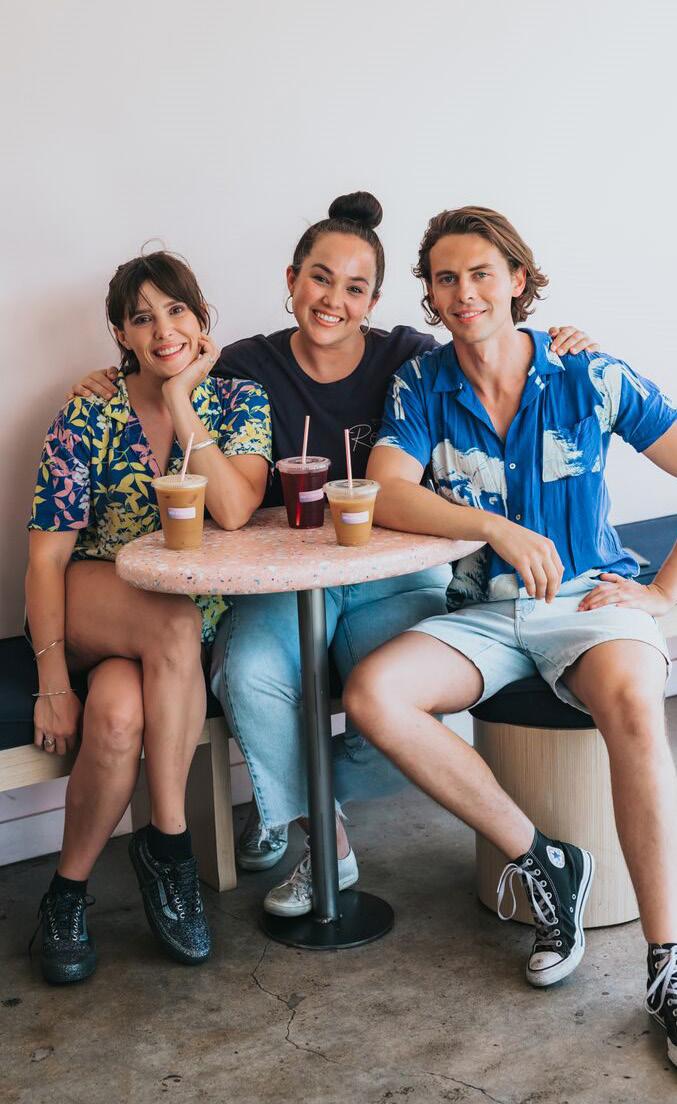
What did you study at QUT and when did you graduate?
I graduated in 2012 with a double degree in Business (Public Relations) and Journalism.
Which parts of your degree best prepared you for the career you have now?
I don’t necessarily think the degree itself can fully prepare you for a future career, however I do believe that university helps you develop a valuable skill set that allows you to navigate the professional working landscape. Whether it’s honing your written communication skills, working in a team and managing various personalities, forming an educated opinion and learning to effectively share that opinion. I started my first business, Future Fantastic (formerly the felix & slink group), while I was studying at QUT – so one of the biggest and most important lessons I learned was time management and prioritisation.
What made you head to Los Angeles?
I’d wanted to live in LA for as long as I can remember. When we started Future Fantastic, I had just turned
20. I never got to take a gap year, study abroad or go on a Contiki Tour (which was the trip de jour) - so it felt like the right time to make a move and explore a new city.
What do you miss most about Brisbane?
Absolutely the people! My family and oldest friends are all still in Brisbane, so I’m very thankful for FaceTime. I miss the beautiful sunrise over the city during a morning run at Kangaroo Point, walking under the trees on James Street in the Spring, and of course Beccofino’s Duck Ragu.
So, Roo Coffee. Where did the idea to start an Aussie café in Southern California come from?
We’d been travelling to LA for Future Fantastic for a number of years with plans to set up an office here, and could never find good coffee. Initially our plan for Roo was to have a coffee cupboard with an office in the back, but we found our Silver Lake location and that plan went straight out the window!
Tell us about your biggest hurdle to overcome opening Roo Coffee.
There have honestly been so many, but certainly navigating the US credit system has been one of the more challenging hurdles. It would be remiss of me not to mention securing work authorisation among other administrative dramas!
Vogue called your café one of the best places to eat in Los Angeles. How does that make you feel?

I definitely get warm and fuzzy when I see Roo covered in media! We’ve worked so hard to create a beautiful community space, and it’s amazing to be recognised for that.
You must be living a pretty busy life in the USA. How do you spend your days off?
My days off are few and far between! I wish I could say I spent my days off on exciting adventures, but I honestly value my downtime so much and just want to chill out! You’ll probably find me at Barnsdall Art Park enjoying the sunshine while listening to Science Vs or Making Sense, trawling the shelves at The Last Bookstore trying to uncover an obscure book about the Kennedy Family, or devouring a cocktail at Bar Stella with friends.
If there was one piece of advice you wish you’d received while in university, what would it be?
My mentor once told me that you’ll always be juggling multiple balls and if you drop one, you can always pick it back up. I own two businesses operating across two different continents (and timezones). I try to work out five times a week, sleep eight hours a night, maintain a social life, keep in touch with friends in Australia, be a good-ish daughter and FaceTime my parents once a week. But finding balance is hard—you can’t always be perfect—so remembering that sometimes you’ll drop a ball, but it’s OK, definitely helps when I feel like I’m failing in one aspect of my life.
Art As A Living, Political Being
Aden Sargeant
Aden Sargeant is a Meanjin (Brisbane) based visual artist, musician and graphic designer.
Through installations of sculpture, audio and video, Aden’s work responds to her disillusionment with the dysfunctions of the Australian political establishment by reframing the elements of political spectacle. Graduating from her QUT Bachelor of Fine Arts degree in 2017, she is currently undergoing a Master of Philosophy candidature at the same institution. I sat down with Aden to talk art, politics and the convalescence of the two.
So, Aden, tell us a bit about your relationship with QUT and the School of Creative Practice.
I began study at QUT in 2015. These days I am working on my Masters project and tutoring Creative Industries units. I want to start my Doctorate next year, all going to plan…
How have you found the transition from being taught at QUT to teaching?
I love it so much. I get to engage with students from all the different majors encompassed in the Bachelor of Fine Arts, which is so fulfilling as a multimedia artist and designer myself.
What is your favourite artwork you have created as a student?
Working in The Block last year on ‘Excerpts’ was great. That’s that huge sound stage where they do the fashion graduate showcases and so on.
I use scale to provoke affect in my work, and that colossal space with the tall ceiling and rigging system was a dream to occupy. I installed my artwork ‘Slope 3 (Live Room) 2019’, comprising a mammoth PVC banner hanging from the ceiling to the floor, which was projection mapped with excruciating intricacy with the help of The Block tech team. The work displays what one viewer described as ‘the axis of our times’: The Extinction Rebellion logo, juxtaposed with an infinitely spinning, projected Maltese Cross – which you may recognise from the Queensland State flag. Here, the State has fallen, and the XR logo is spot lit and aloft, glowing like a beacon.
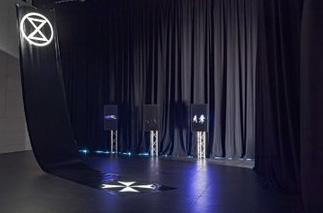
How has the work you made during your degrees developed your craft to what it is now, and how do you think your formative work will manifest itself in later exhibitions?
Budget allowing, I just want to make it bigger, install in more public locations and engage more directly.
Has the art you’ve created always been inherently political?
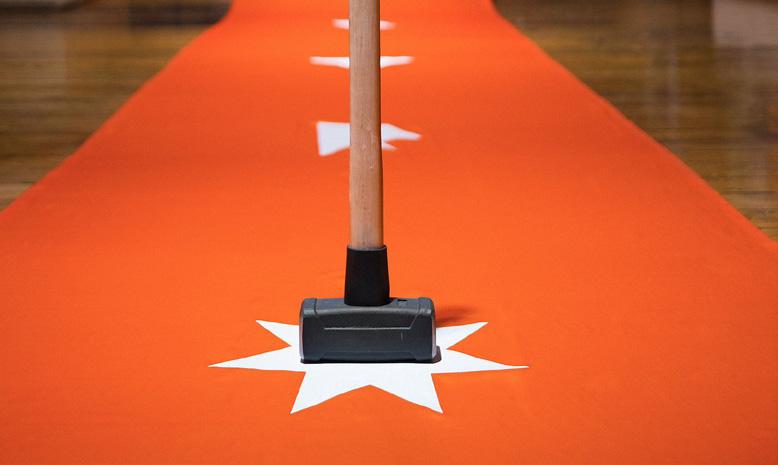
Yeah. I’ve always been fascinated by the spectacle of politics, and affecting change through direct action and art.
As a trans individual, my existence is, unfortunately, inherently political. I feel like there is no choice but to engage in the struggle and work to reshape this political mainframe that perpetuates such injustice. Evidently, the system as it exists is not adequate in addressing the mounting crises we face: water, fire, land degradation, climate, the injustice wrought in our names on Indigenous Australians, refugees, migrants, people of colour and queer people.
In our current political climate, what place do you think art, of any medium, holds in the discussion of who gets to (mis)lead us?
Think about how politically active other industries and interest groups are. Banks, mining corporations and weapons manufacturers are right this second applying a chokehold grip on our governments through lobbying. Leaders should answer to us,
not to the highest bidder… that’s how democracy is meant to work, right? We can’t give them the option to not consider us. So, what place does art hold? We can reflect the world we experience, but we can also robustly engage in the discourse.
Tell us a bit about your 2019 group exhibition, ‘Status Unknown.’
Status Unknown is the product of a collaboration between myself and Brisbane artist Matthew Newkirk. I had admired his work for many years, and one day out of the blue he got in touch with me via email asking if I was interested in working on something – which was a huge honour! A year later, we were installing our exhibition in Fortitude Valley, comprising documentation of various instances of protest in public spaces around Queensland. The exhibition would go on to generate some controversy, involving the office of the Queensland Premier. In short, we displayed work critical of the fascistic anti-protester laws
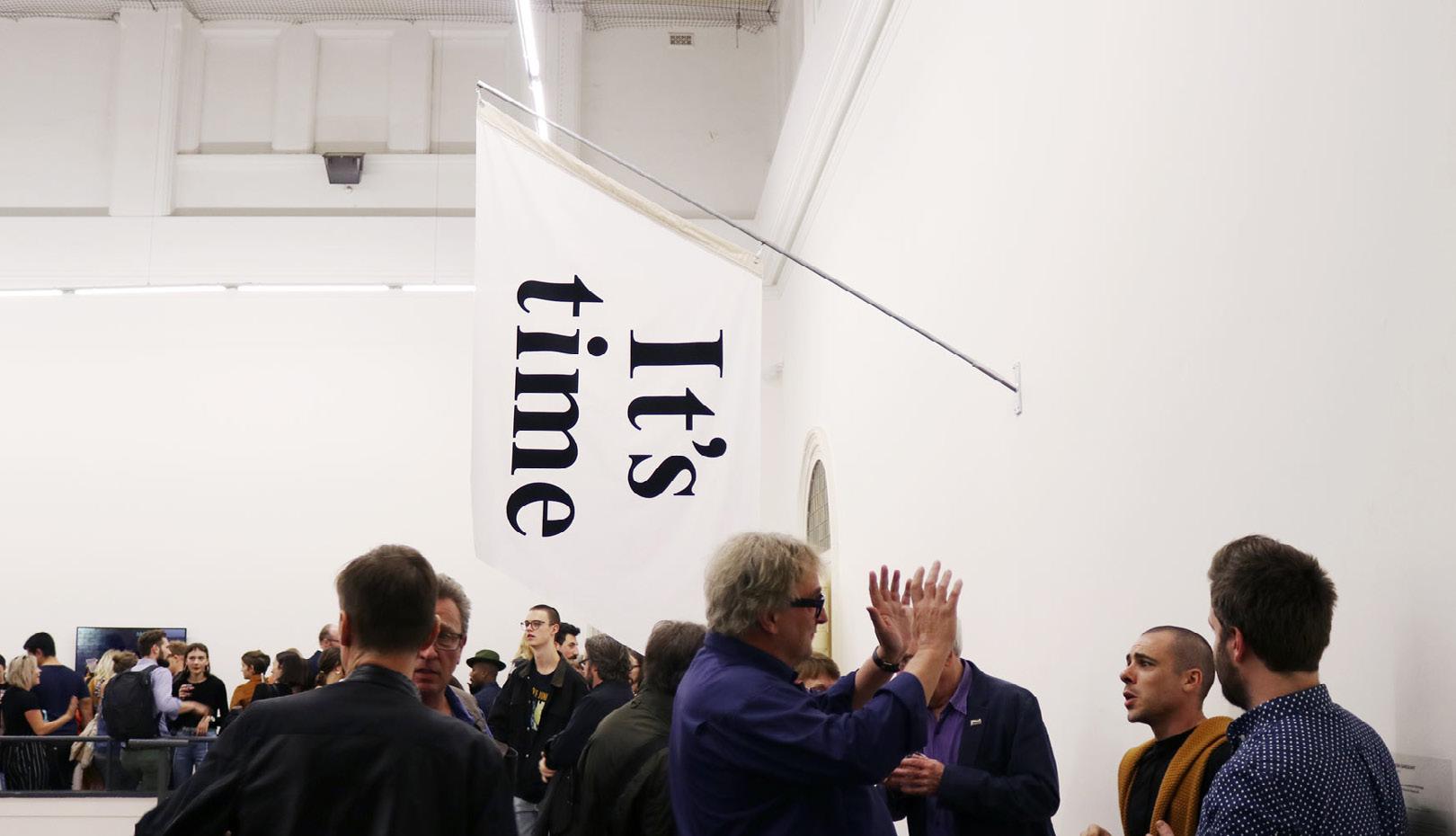
the Palaszczuk Government introduced late last year. We restated the fact our state government fabricated evidence to vilify peaceful protesters and justify the laws. They weren’t happy with that, so the Premier’s office got on the phone to the Vice-Chancellor of Griffith (Newkirk is a Griffith student), threatening to shut down our show. The night of the show opening, we were standing out on the street explaining to all the high-ups why they shouldn’t shut down the show that second… while there were 100 people in the space.
How did you react to the hostility from the Premier’s office towards Status Unknown?
In a way, it seems like they helped your point rather than hindered it.
I’m of two minds about it. On one hand, it is demoralising and shocking that in the face of such obtuse injustice in this state, the Premier’s office is concerned with shutting down an art exhibition.
On the other hand, we could not have hoped for a better outcome. You’re right, in reacting in such a fascistic way, the State Government proved everything we were presenting in the exhibition was true. In hindsight, it looks like we planned the whole thing to pan out this way, but in truth, I thought at most a passer-by might have complained. To have the Premier’s office on the phone to the Vice Chancellor of Griffith escalated things a lot.
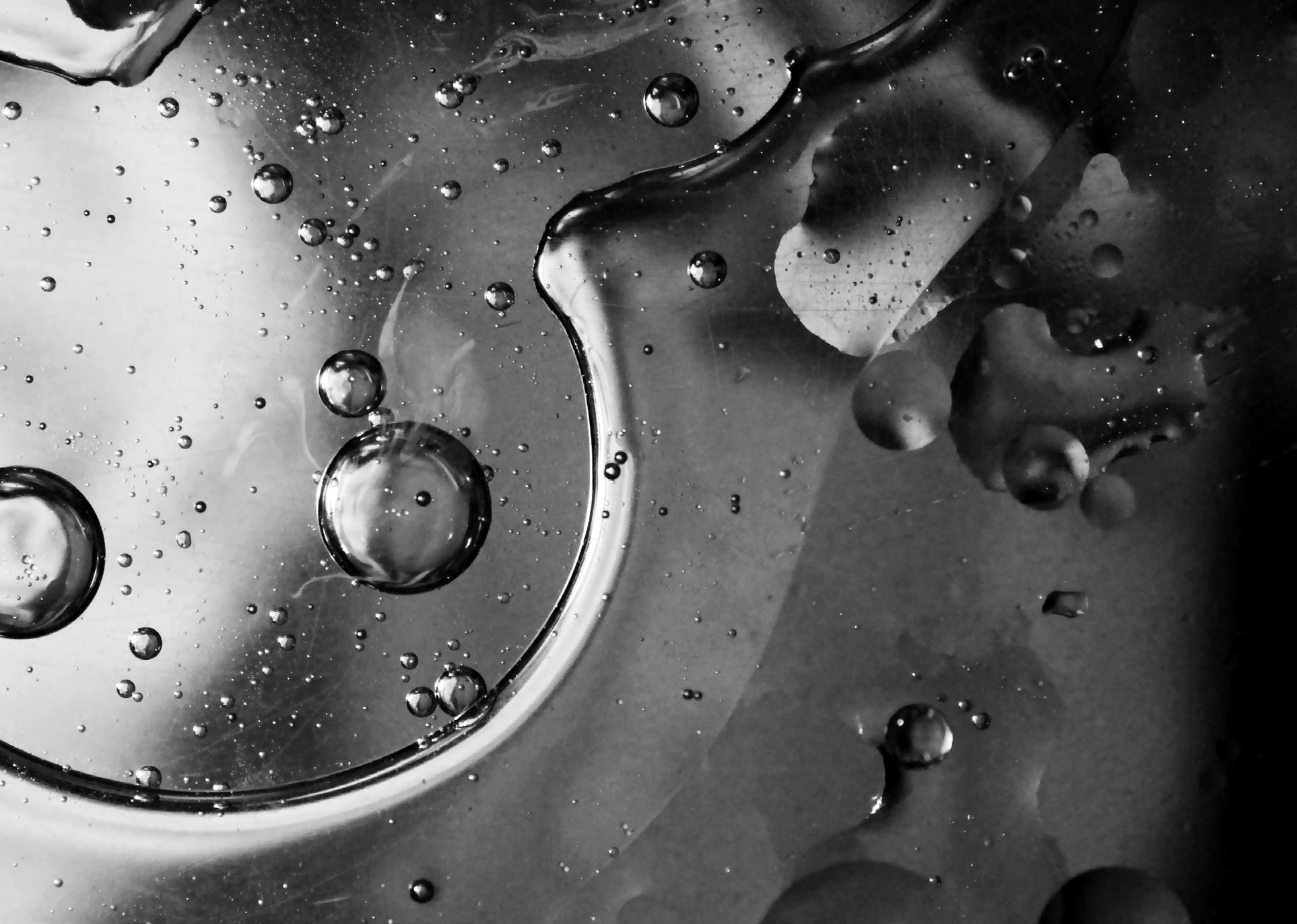
Do you have any thoughts you’d like to voice in regards to the upcoming State Election, especially to the (majority) Gen Z readership of GLASS?
Hopefully anyone who’s reading this is enrolled to vote, but if you’re not, put this magazine down and do it right now. Get involved, engage in direct action, organise. Join your union. Have those hard conversations with your Tory relatives. I think 99% of us realise this system is stacked against us, but how are we going to fix it if we don’t go out and make some noise?
You’re a multimedia artist and have produced art in a variety of formats. Do you have a particular favourite?

The mediums I engage with are informed by the impact I want to execute in a space. For site-based installations at night, projection was the way to go. In the gallery space, you have the opportunity to fine tune objects, lighting, sound and movement to induce a more comprehensive sway on the audience.
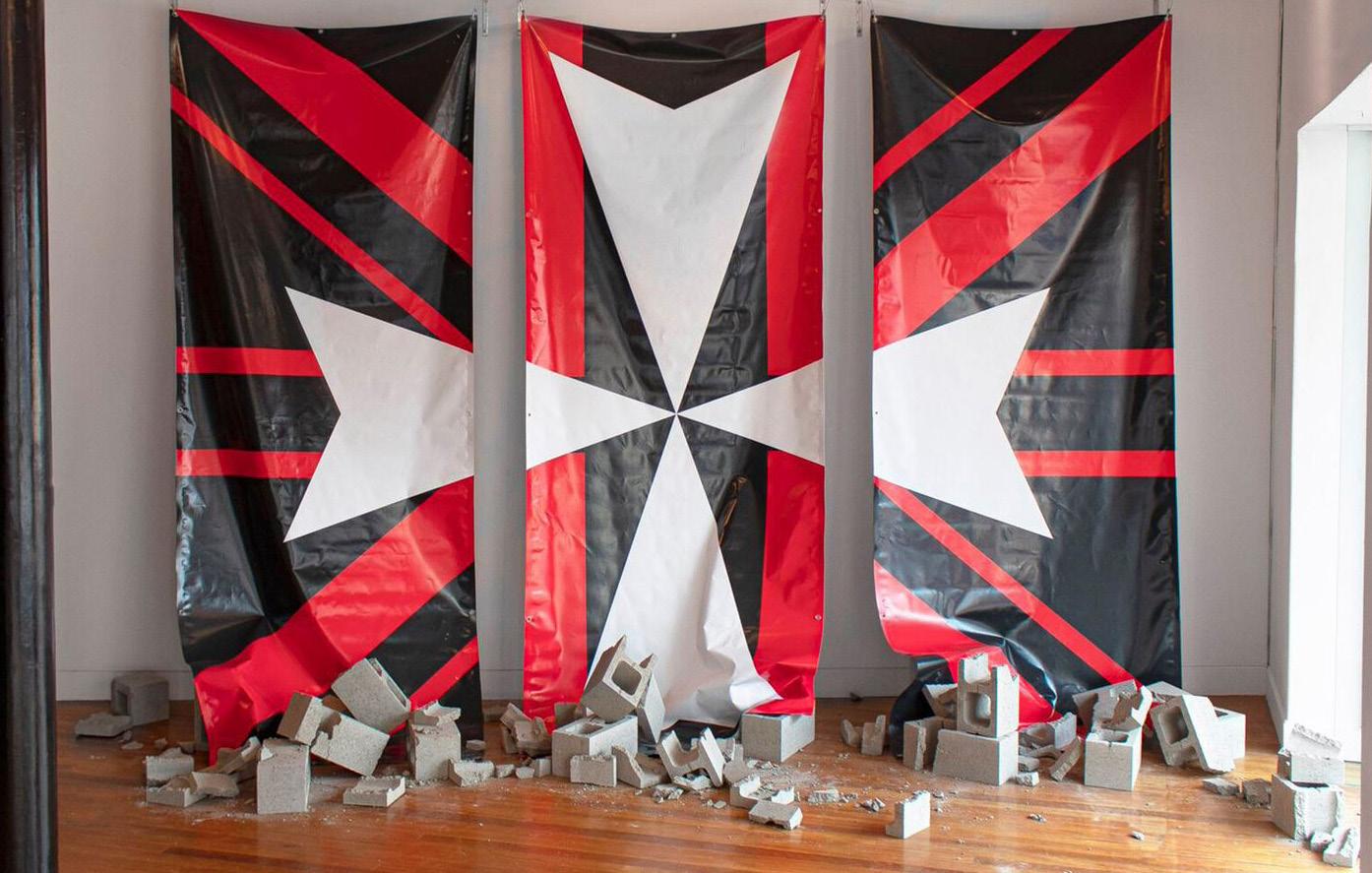
Where can people find more of your work?
www.adensargeant.com , and hanging from government buildings around Brisbane.
FEATURED SHANEEN PAGE
Animal Vs Synthetic Leather: The Lesser Of Two Evils?
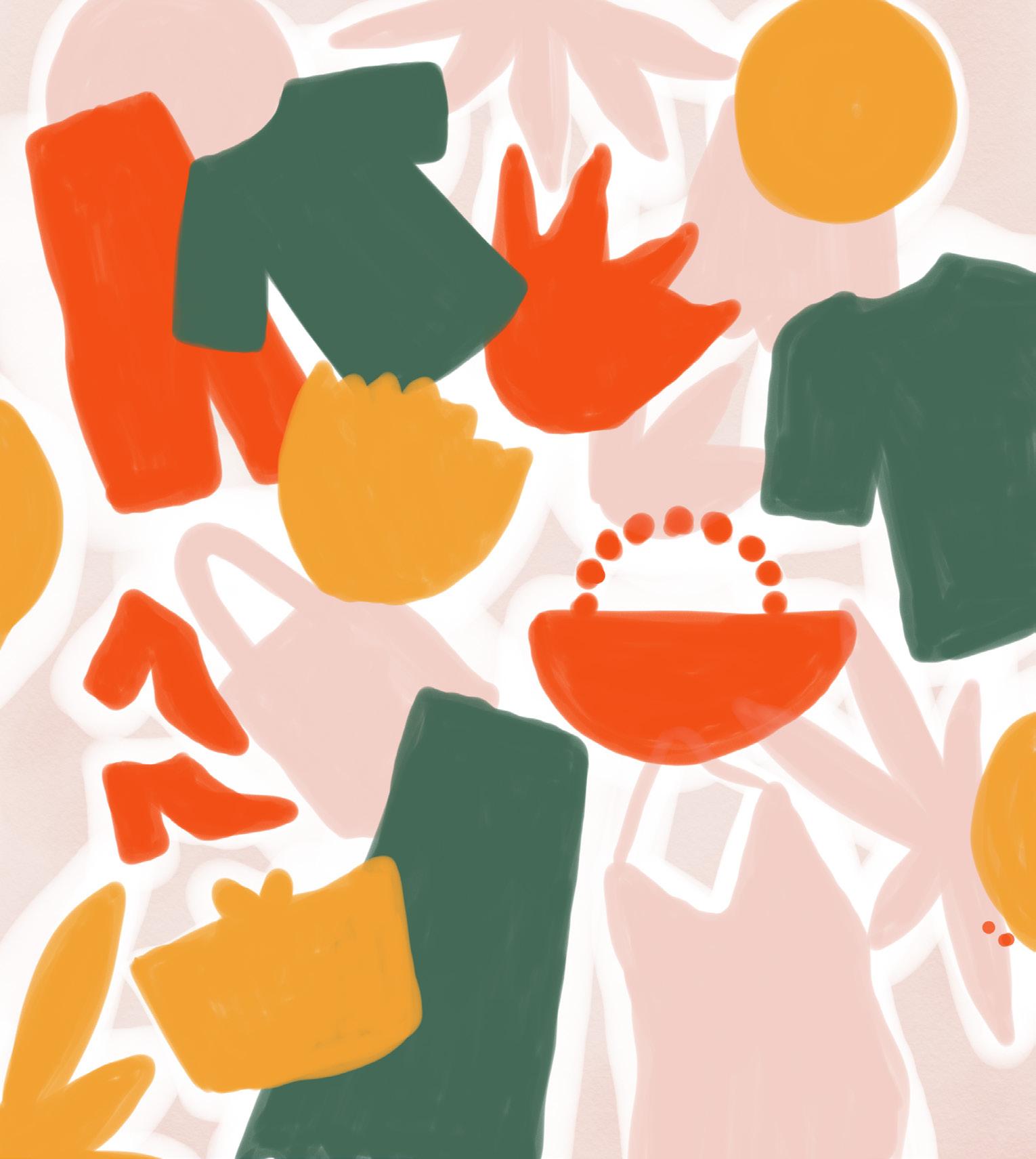
As the focus on the sustainability of the fashion industry grows, a common topic in this conversation is the use and ethical dilemmas of animal-based textiles. The luxury fashion sector is built on the back of animal cruelty, with many fashion houses making their mark with signature leather, fur and woollen goods. The public perception of this use of animal textiles is changing, however, and many alternatives are becoming readily available at a variety of price points.
I haven’t eaten meat since I was 16 years old and became vegan at 18. While I am quite set on the ethics where my diet is concerned, the conversation about leather is one that still gets me thinking. On one hand, leather is a product borne of animal cruelty and factory farming of livestock. On the other, the synthetic alternatives are often polyurethane-based and even worse for the planet than traditional leather tanning.
While the welfare of animals was a strong motivator in the shift of my lifestyle choices, it was the environmental impact of animal agriculture that put me over the edge. How then can I support the production of even more plastic, in a world that already dumps the equivalent of one garbage truck of plastic into the ocean every minute? For me, it comes down to which is more important: sustainable versus ethical.
So, what is vegan leather? Vegan leather has become an all-encompassing term for any leatherlike material that is not animal derived, so the materials and quality can vary. Most mainstream vegan leather is derived from Polyurethane, also known as PU (or pleather, in the stereosonic 90s).
While this substance doesn’t require any animal cruelty, it presents its own set of problems. Plastic is notorious for never properly breaking down and there are growing concerns over what the chemicals in synthetic textiles are doing to humans when we wear them for such extended periods of time. The quality of PU leather also doesn’t tend to match that of cow hide leather, even though the appearance can be very similar.
Cowhide leather is typically made from waste of the beef industry, and does not generally need separate cow hide farms. Of course, there is the animal welfare aspect, but there is also the chemical waste aspect to consider as well. Tanning leather is a very chemical, water and labour intensive process, and those who work in tanneries have a much lower life expectancy than others in their local area. There’s also not enough leather made globally to support the demand, so this will mean some changes will have to happen one way or another. This will likely be either in the form of leather-specific farms, or a reduction of leather production overall and a phasing out into a new textile. The interesting thing about leather, though, is that it is biodegradable at the end of its (generally very long) life.
There are some leather alternatives that are much more environmentally friendly, such as Pinatex (made from pineapple leaves), cork leather, and even some made from mushrooms. It’s too early in the game to see if these leathers stand the test of time as well as the original, but I’m interested to see how they hold up. Pinatex is rising in popularity, with fashion house Hugo Boss creating a line of sneakers with the fabric, and vegan accessories
brand Matt & Nat using cork in many of their previous collections.
Personally, after a long internal debate, I have opted for second-hand leather products in my wardrobe until the plant-based options become a little more mainstream and durable. My logic? The products have already been produced so I’m not directly fuelling the demand for leather. Purchasing second-hand can also significantly extend the life cycle of a garment, keeping it out of landfill for longer.
Some vegans I know have expressed that they simply don’t feel comfortable wearing what is essentially the skin of an animal, which I completely respect. In response, I would encourage those in that boat to re-evaluate their need for that particular item, which type of material it is made from, and if the same item is made in another natural textile.
I challenge you to consider the origin of both textiles when you are looking to purchase leather or an alternative product. For secondhand, try your local vintage stores, op shops, and reselling sites such as Depop for cost-effective leather goods. If opting for synthetic, there are many options that aren’t incorporating polluting plastics. Pinatex is my personal recommendation for a plant-based leather, and it has been used with labels such as Hugo Boss, NAE, Time IV Change Watches and Rombaut. Matt & Nat also have a large range of synthetic leather that has been created from recycled plastic bottles. This material is still plastic and may not stand the test of time as well as traditional leather. However, this process uses existing plastic rather than creating more to support the demand.
Most importantly, I urge you to use the most sustainable product for your circumstance and buy only when necessary.
ART NIKITA OLIVER
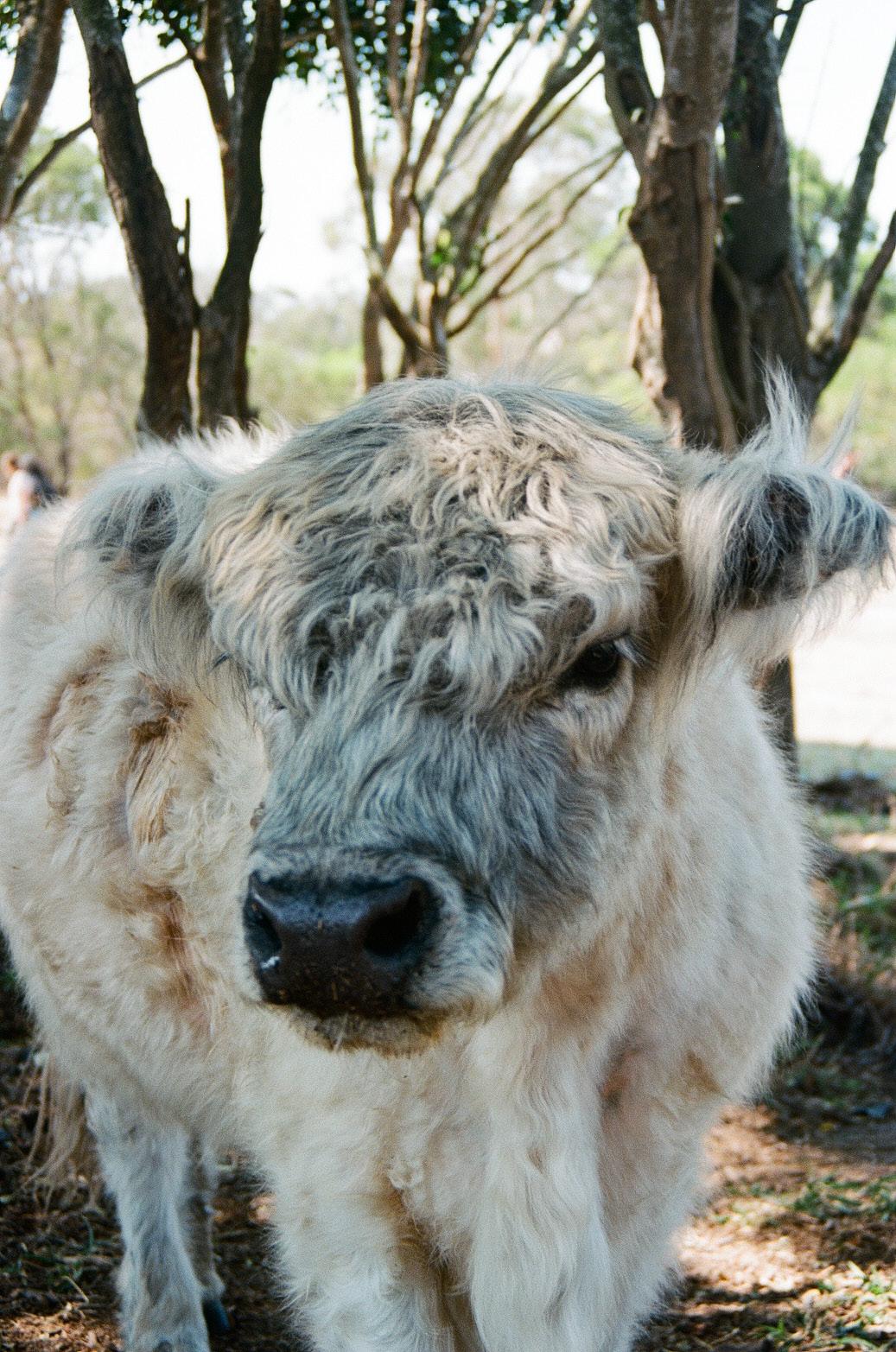
‘Pearl’
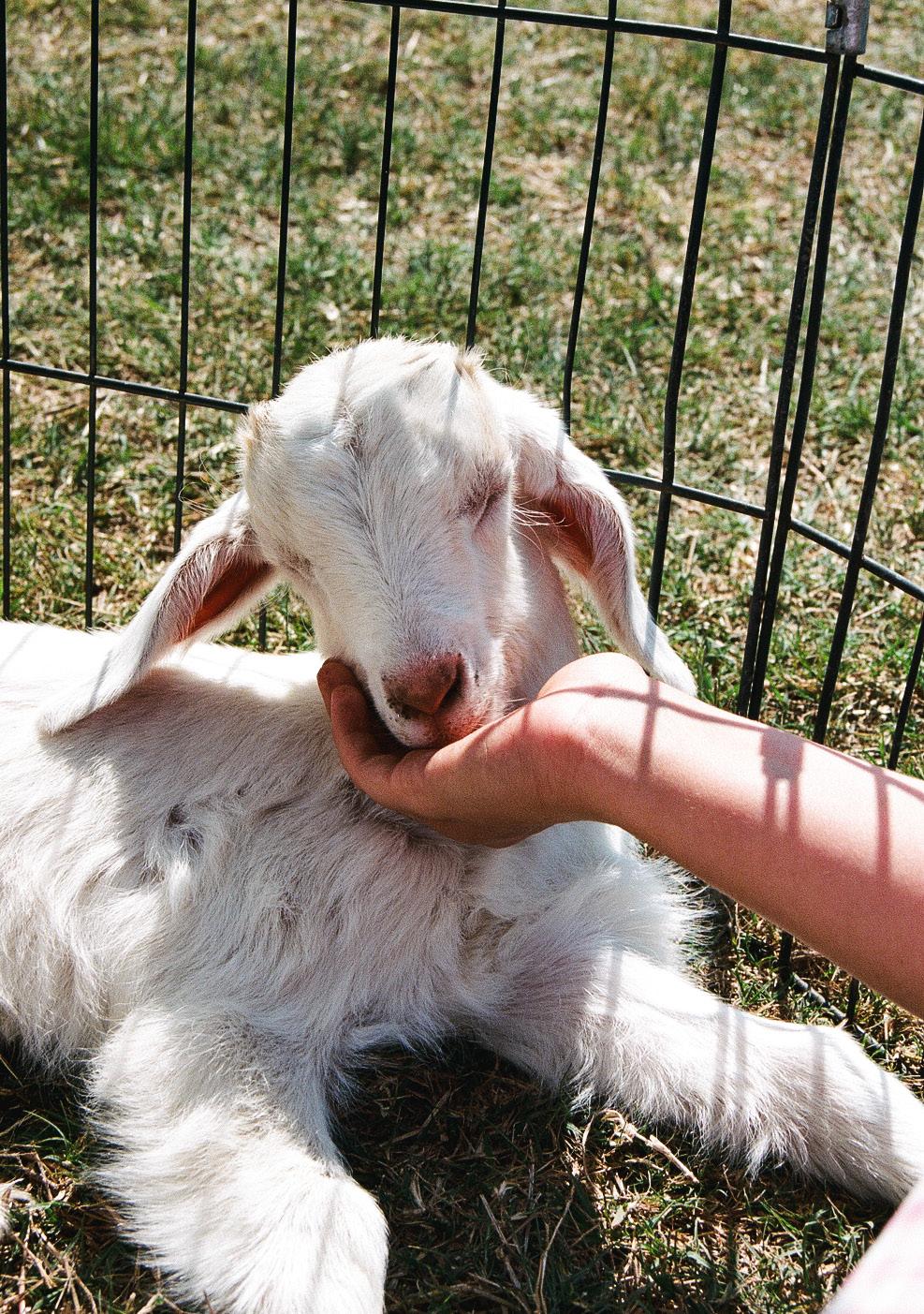
You Better Beleaf It: The Case For Veganism
You have probably heard through the grapevine that one of the best changes you can make to your lifestyle and for the planet is going vegan. But how much of a difference does one person’s diet truly make in the grand scheme of things? Chicken nuggets are already in store, so surely it doesn’t hurt to buy them then? The land was already cleared, so the damage has already been done, right? However, it is important that there is less societal demand for animal products in the future. Reducing your consumption of animal products, if not transitioning entirely to a vegan lifestyle, will undeniably help save the Earth.
Production of animal products requires substantially more resources than plant-based crops and products. Compared to producing beans, per gram of protein, it takes 20 times more land to produce beef and 10 times more land to produce chicken.
not sustainable for Australia’s environment. It is therefore critical for the health of the environment that we transition to a more sustainable lifestyle.
Emissions: Research by Longmire, Wedderburn-Bisshop and Rickards (2015) has revealed that greenhouse gas emission output estimates from the animal agriculture industry have been significantly misrepresented as a result of excluding short term emissions, therefore skewing data. Revised data therefore tells us that animal agriculture is responsible for producing approximately 54% of Australia’s greenhouse gas emissions – not approximately 11%, as reported by the agriculture industry. The key emissions produced directly by animal agriculture are methane and nitrous oxide.
Methane is a gas produced in excessive amounts in animal agriculture – primarily from beef, lamb, and goat. It is a result of a digestive process called ‘enteric fermentation’, as well as the storage of livestocks’ manure.

Australia is also listed alongside such regions, reported to have just as globally significant amounts of deforestation. Deforestation and land clearing have been a leading cause of loss of biodiversity in Australia, from Great Barrier Reef destruction to the loss of wildlife. The greatest culprit is animal agriculture.
Land is cleared in order to farm food for livestock and grazing pasture. A common misconception of the impacts of agriculture is that soy, a staple in a vegan diet, is the leading driver of land clearing and exploitation of resources at a global scale. However, a report on soy by WWF (2014) found that more than three-quarters of soy is being used for animal agriculture, particularly for poultry and pigs, with only 6% for humans. The report also highlights that soy farming only expands as the demand for meat products increases, as it has done so exponentially since the 1960s.
A report by The Wilderness Society (2019) found that more than 1.6 million hectares of land was cleared in Queensland from 2013-2018. In this period, 73% of land was cleared for beef production. The report also identified that 94% of all land clearing in the Great Barrier Reef catchments was linked to beef production.
Deforestation in the Great Barrier Reef catchments results in erosion and run-off of sediment into the reef, reducing sunlight to seagrass and the smothering of coral. In a 2014 report, the Great
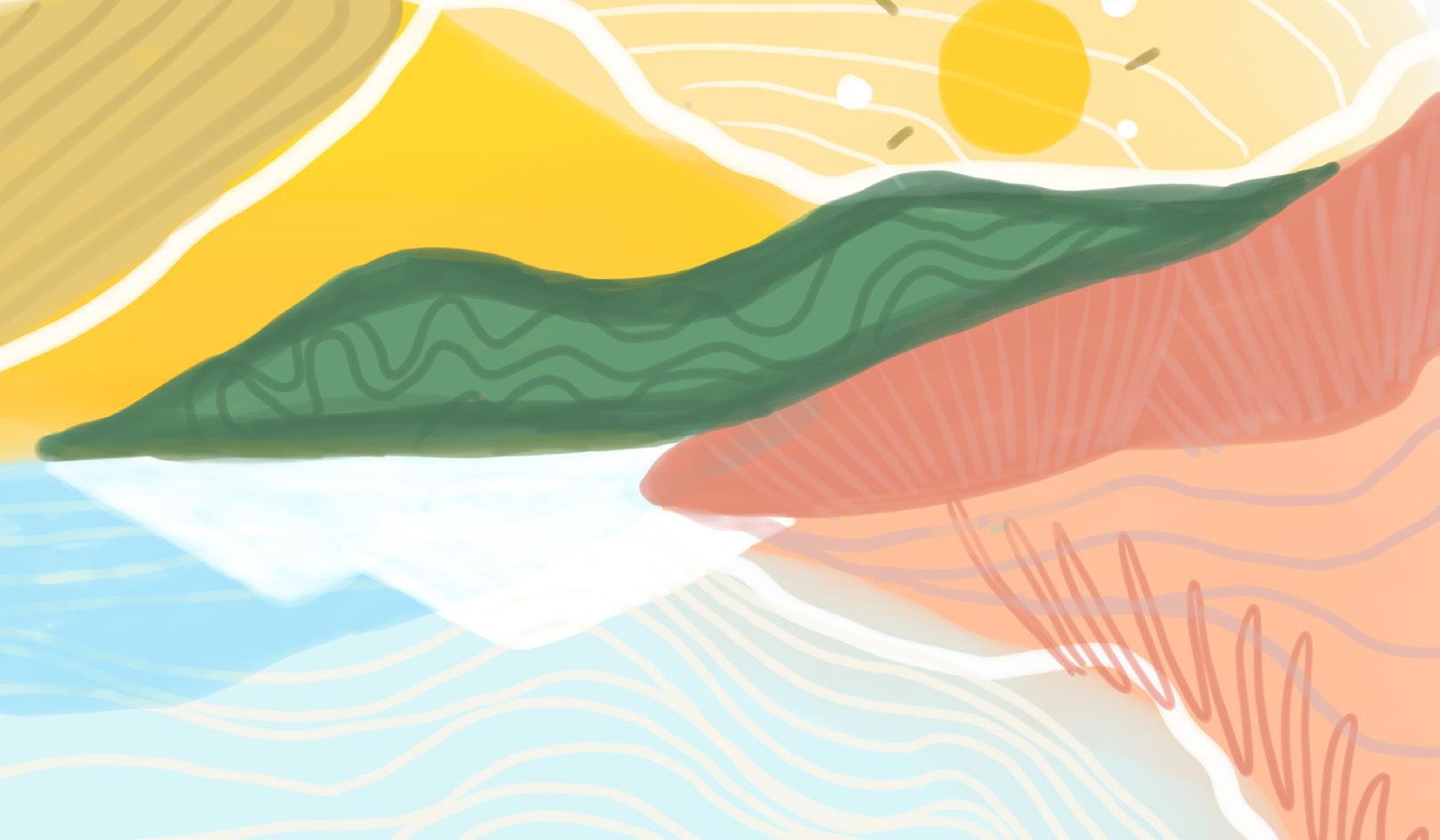
Barrier Reef Marine Park Authority explains “the decline in coral cover and lack of recovery coincides with degraded water quality as a result of land clearing, land use changes and agricultural use of the catchment”. Furthermore, agricultural activity that then takes place on this cleared land intensifies, enabling additional chemical run-off into reef waters. This not only irreversibly damages the health of the coral reef and the vast sea life reliant on such an ecosystem, but it destroys the pivotal function of coral reefs in coastal protection.
Another consequence of deforestation is loss of native wildlife. From 2015-2016, approximately 395,000 hectares of native vegetation was cleared in Queensland alone. This is equivalent to 1,500 football fields cleared per day and is a 330 per cent increase from 2010. As a result, up to 50 million native animals, such as cockatoos and koalas, are killed in Queensland and New South Wales each year.
Change isn’t easy. If you aren’t ready to commit to being 100% vegan, then just try vegan alternatives every now and then, or a meat-free Monday every week. As the saying goes:
To find references, visit qutglass.com/beleaf-it
What the data tells us is that animalbased products exploit a substantially larger amount of resources, and produce an extensive amount of emissions, than plant-based products, for the same amount of protein.
Australia is a country that is pressed for natural resources. This is evident as Australia frequently suffers drought, leaving many communities without water. Considering the resources required for animal agriculture, meat (particularly beef) is
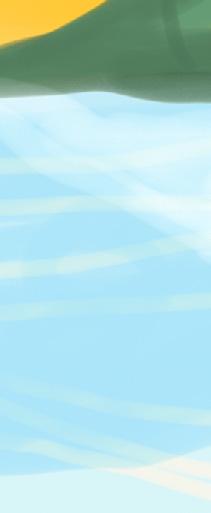
Nitrous oxide, a gas with a warming potential that is 265 times higher than carbon dioxide, is another by-product of the livestock industry, produced through the storage of manure and the use of organic and inorganic fertilisers for livestock feed. Note that while fertilisers are used in crops intended for human consumption, approximately 77% of Earth’s habitable land is exploited exclusively for livestock and its feed, thus such an amount of nitrous oxide would never be produced by crops for human consumption.
Loss of Biodiversity:
While you have heard of the alarming rates of deforestation in the Amazon, Borneo and the Congo,

“We don’t need a small handful of perfect vegans; we need a million imperfect vegans.”
I’m Just A Person That Sits In A Chair
Sitting in a wheelchair is not the worst part about living with a disability. What is the worst part?
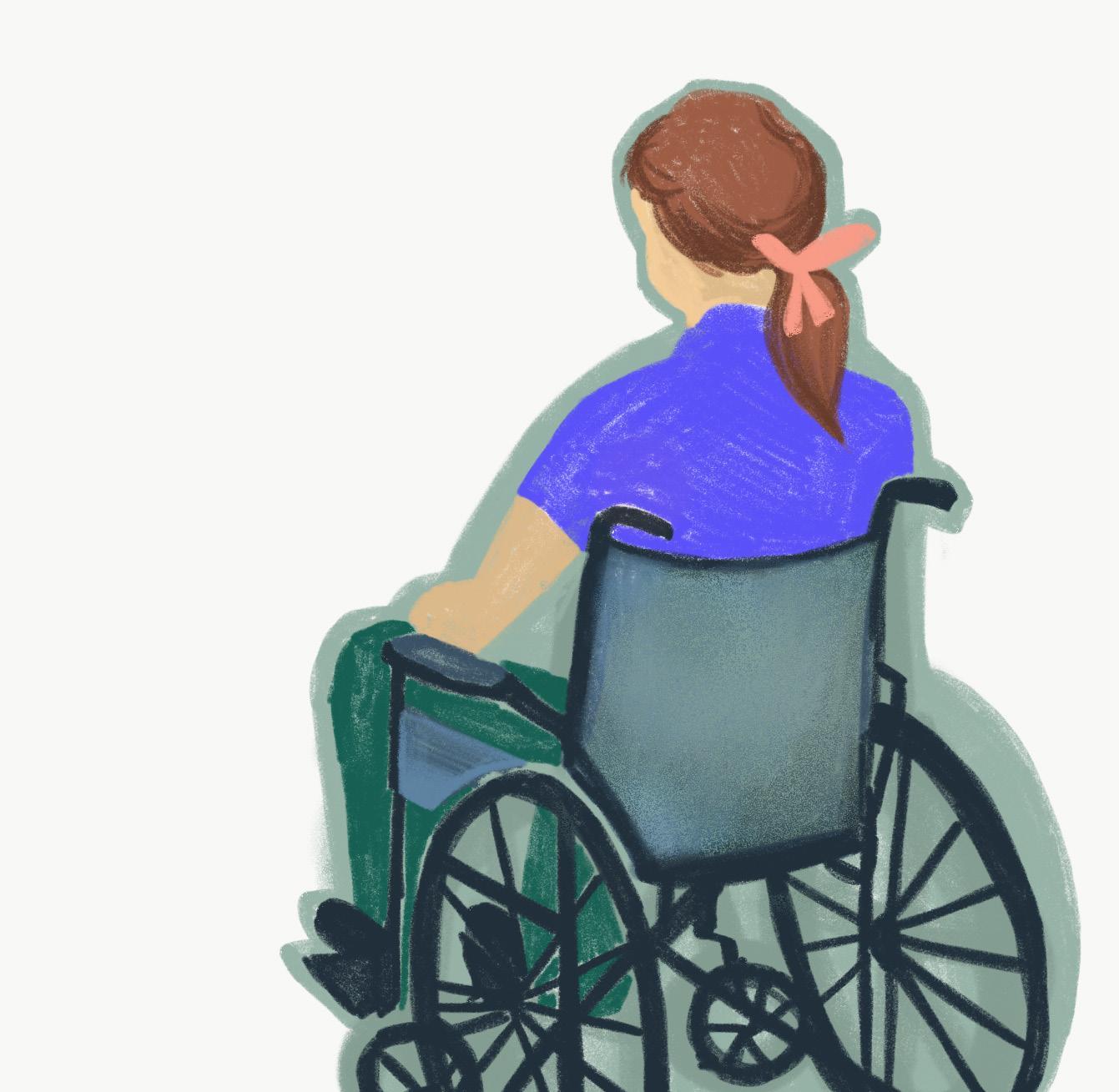
Able-bodied people. To able-bodied people I am defective, lesser and inferior. This fundamental view of disability as a defect is what all mistreatment of people with disabilities stems from. It’s ironic, isn’t it, that able-bodied people are tolerant of differences in height, weight, hair colour, eye colour, skin colour, et cetera, but a difference in ability is something that should be hidden away and never talked about. It’s like able-bodied people don’t realise I’m just like them.
I’m just a person that sits in a chair. There is no escaping the stigma around disability.
It’s the way that able-bodied people text while walking but yell at me when they run into my chair. It’s the way that able-bodied people use the ONLY accessible toilet. It’s the way that able-bodied people park in accessible parking spaces without a permit, meaning I physically can’t get out of my car. It’s the way that able-bodied people constantly apologise to me even when nothing happened. It’s the way that able-bodied people touch and lean on my wheelchair without my consent. It’s the way that able-bodied people push me in my wheelchair without my consent, which can cause me to fall out of my chair. It’s the way that able-bodied people constantly ask me if I need help even if I’m just rolling around the shops. It’s the way that ablebodied people stare at me for no reason. It’s the way that able-bodied people leave me three metres of space to get by even though my wheelchair is less than one metre wide.
It’s the way that able-bodied people look down at me. It’s the way that able-bodied people bend down to my level condescendingly. It’s the way that able-bodied people speak slow and exaggerate their speech when they speak to me. It’s the way that able-bodied people are shocked when I tell them I study law. It’s the way that able-bodied people only speak to whoever is with me. It’s the way that able-bodied people’s jaws drop when I tell them I drive. It’s the way that able-bodied strangers think it’s acceptable to ask me personal questions in the middle of the street: “what’s wrong with you?” “what happened to you?” “how do you go to the toilet?” “how do you shower?” “how do you drive?”
“can you have sex?” “can you have children?”.
It’s the way that able-bodied people believe that they’re entitled to this information and get confrontational when I ask them to leave me alone. It’s the way that able-bodied people stop me in the middle of Bunnings and say “I’ll pray for you”. It’s the way that able-bodied people stop being your friend. It’s the way that able-bodied people avoid you in social situations because they don’t know how to talk to you. It’s the way that able-bodied people crop you out of photos.
It’s how able-bodied people share posts online about disabled people to make them feel better about themselves (inspiration porn). It’s how able-bodied people call me “differently abled” or “handi-capable” as if disabled is a dirty word (it isn’t). It’s how wheelchair-adapted trolleys are not stored with the other trolleys. It’s how I can’t get into a building because there isn’t a ramp. It’s how there is no kerb cut from the footpath to the road.
It’s how I’m rejected from jobs I’m qualified for because I’m in a wheelchair. It’s how my wheelchair costs more than my car did. It’s how I always need to go shopping with a support worker because shelves are too high. It’s how I can’t book tickets to concerts or events online like everyone else. It’s how I can’t sit front row at concerts. It’s how I can’t book a hotel room online like everyone else. It’s how the driver has to put out a ramp for me to travel on public transport. It’s how tables at restaurants are too low for me to sit at them. It’s how aisles in shops are too small or cluttered for me to fit down them. It’s how people with disabilities are not represented in mainstream media.
I’m just a person that sits in a chair. My disability is not who I am, it’s just one part of me. Yet in society I am limited to only being a person with a disability because able-bodied people can’t look beyond the wheels. I can’t change the fact that I have a disability, and as much as I try, I can’t change the stigma around disability.
You know who can change the stigma? Able-bodied people, the same people that created it. The sad truth though is that they won’t, because the stigma is all they know. No one is willing to second-guess the stigma around disability because it doesn’t matter to them—they’re not disabled.
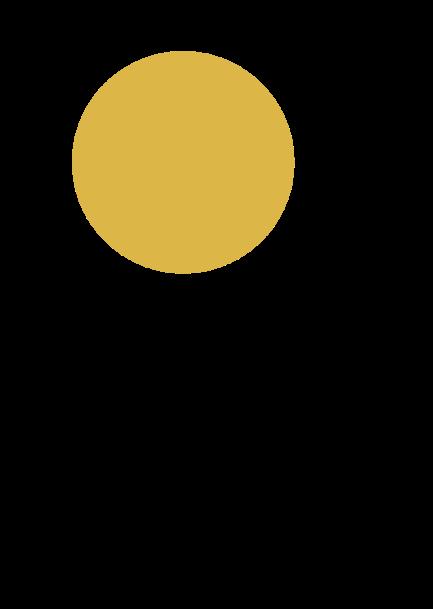
FEATURED
OPTOMETRY STUDENT SOCIETY
Inspired by the Pacific Standard article by Rick Paulas (2017) ‘The Hidden Psychology of Wearing Glasses’.

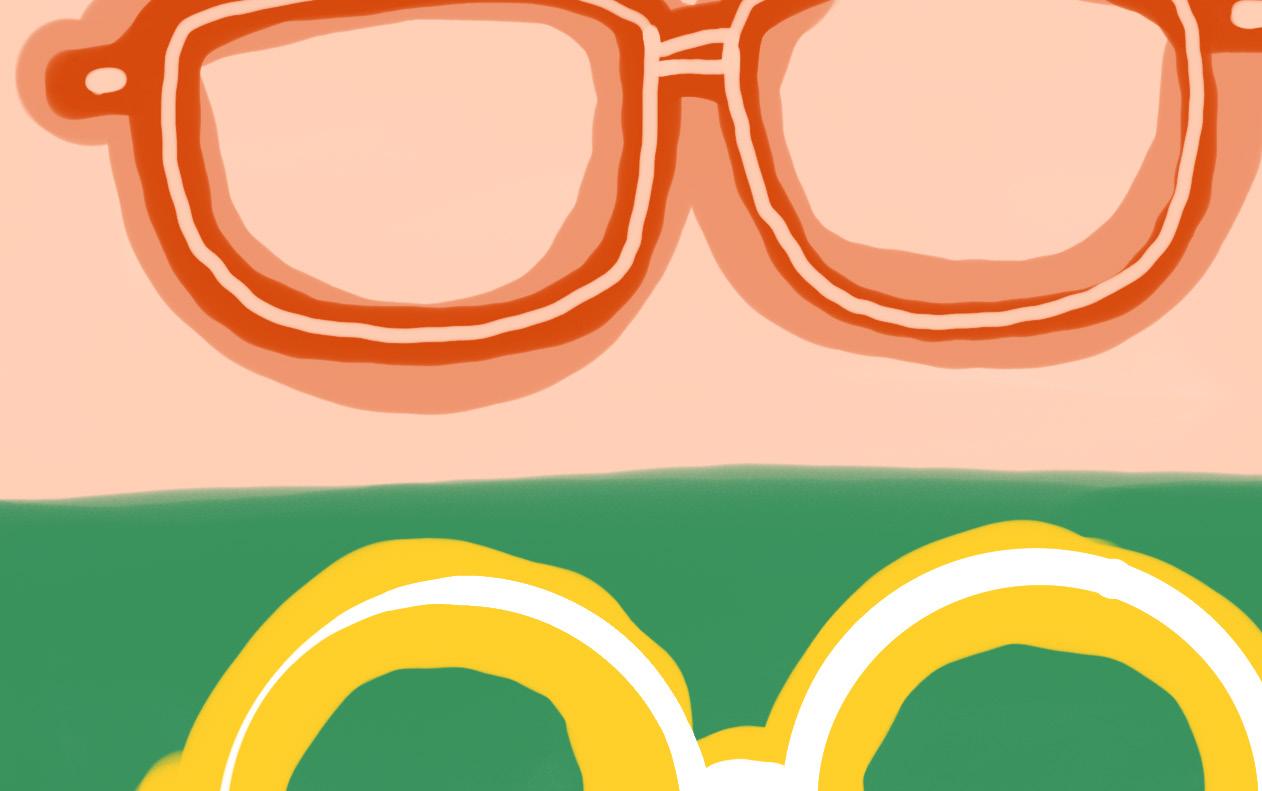
2020 is the year of good vision for life so we thought it was important to encourage each of you to book an appointment with your optometrist (every two years is generally adequate). Even if you think your vision is fine, there is much about eye health that can’t be seen by the naked eye (ironically). You might have family members who are putting off seeing an optometrist because they realise they’re not seeing as well and don’t want to be seen wearing glasses. Plenty of people have the idea that glasses connote old age or weakness. We’re happy to say that this is now adhering to an outdated social stigma that has changed over the years.
True, glasses are a sign of impaired vision like a wheelchair is a sign of impaired mobility. Adolf Hitler wore reading glasses during his time as Führer (1933-45) but the Nazi party hid all images of him doing so, for fear that it would impair his following. However, historically, glasses were initially used for reading which was associated with being academically inclined and thus educated. This association could have some truth,
with a Gutenberg Health Study in 2012 finding a correlation between people who wore glasses and people with a higher IQ. Furthermore, trusted figures like monks and priests were some of the first to wear glasses. This caused glasses to be perceived as a symbol of trustworthiness.
On the other hand, there is a psychological basis for fully rimmed glasses making a wearer appear less trustworthy because they hide prominent facial features that express emotion. Take Superman: the now iconic character who debuted in the first comic volume by Jerry Siegel and Joe Shuster in 1938. Whilst an honorable superhero, Clark Kent hid his identity essentially behind a pair of glasses, perpetuating the notion that glasses were a barrier to truth.
Anyhow, in the modern world, being intelligent and trustworthy didn’t necessarily translate into social standing in the ‘90s. An article written in 1991 by Peter Borkenau reports that despite the wearing of glasses holding no particular meaning to the wearers, the social stereotype of wearers being introverted and cautious was evident. This stereotype of a fumbling geek was popularised in film and TV, an example being the Princess Diaries
(released in the year 2000). In the Princess Diaries, Mia begins as an awkward teen but is transformed by the removal of her glasses (among other things) into an elegant princess by the end of the movie. The geek character still exists on today’s screens. However, the extensive social stigma of glasses has all but lost momentum with modern trends in the Western world.
Despite the invention of contact lenses and refractive surgery that negate the need for glasses, many still choose to wear them full-time. Even those with perfect vision are sporting glasses as fashion statements! Glasses have been popularised and normalised by mass advertising, celebrity style, an increase in style choice, improvements in lens technology, the increasing rates of myopia worldwide leading to more younger people wearing glasses, and a growing culture of equality and acceptance. Indeed, celebrity culture has had a huge hand in the popularisation of glasses with celebrities like Tom Holland rocking specs to emanate a more mature look, or NBA players like LeBron James rocking them as a fashion statement. This is to say that, while many people still wear glasses to engage with the historic perception of appearing or feeling smarter or more mature like Elle Woods, glasses have now become a means of expression of personality. There are so many colours, shapes and sizes out there that glasses have become an important piece in this, an age of accessorisation.
What many of us raised in a culture of acceptance and equality don’t realise is that the same freedom of accessorisation or even use of glasses for improvement of sight isn’t afforded to some developing countries. In 2012, students from Aarhus University were lobbying to make spectacle wear in Indian schools more socially acceptable by making them a necessary tool to play a video game.
So, the next time that you hesitate accessorising with glasses or the next time a family member refuses to start wearing glasses, remember that we are extremely lucky to exist in a place where making a change is as simple as wiping the stigma off glasses.
My First Call To Lifeline
On a cold Tuesday night in August last year, a lot was going on. I had heaps of assignments due, I’d just started a new job and Mum and Dad were on holiday in Africa, far out of reach from phone contact.
I’d been growing increasingly lonely for months, as is often the case when friends start working more and moving interstate. With the house to myself and my anxiety levels through the roof, I broke down in the shower at the realisation that the days of regular catch-ups with mates were over.
With the house to myself and Mum and Dad as far away as they possibly could be, I turned to Lifeline. If you don’t know what it is: it’s a free counselling service for people experiencing a crisis.
You may have seen the number – 13 11 14 – at train stations, bus stops or in one of their many op shops. All you need to know is that they’ll always be there for you.
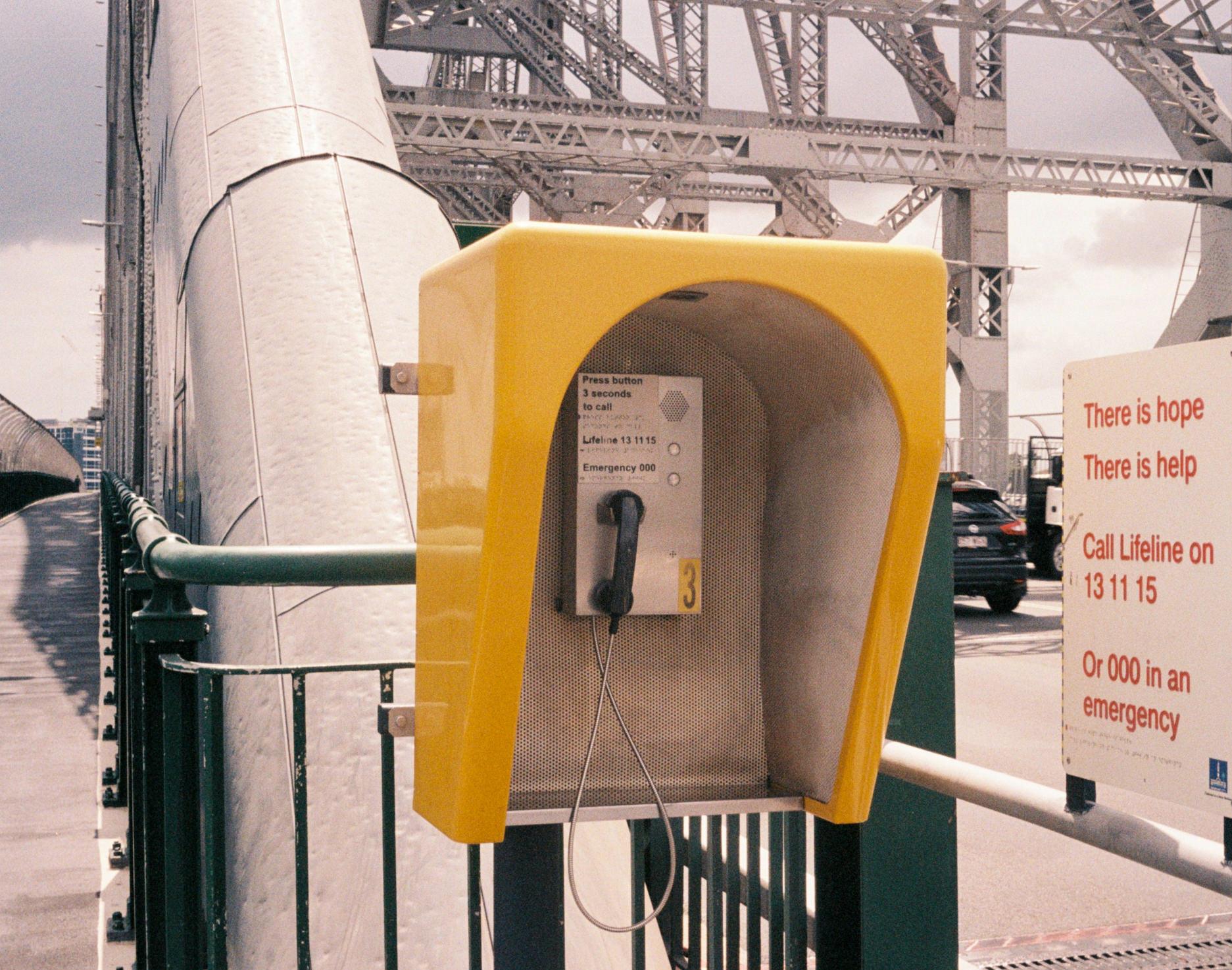
That night was the closest I have come to selfharm. For months, I had let feelings of sadness and loneliness build up until I had no idea how to address them.
I told myself others had it worse than me, that crying wasn’t the solution and I should just carry on hoping things would get better. They didn’t.
I let my feelings of self-worth hit rock bottom to the point where I felt I had nowhere to turn.
After a 10 minute wait, I got through to a counsellor and started crying for the first time in four years. It turns out all that bottled up emotion will spill
out eventually, no matter how much you try to suppress it.
The counsellor was quite literally a lifesaver. She actively listened to what I had to say without judgement and just let me ramble on about my problems, which was what I really needed at that moment.
She couldn’t reduce my hours at work or arrange more time with friends, but she could provide a kind, reassuring presence and some basic strategies to address my issues.
I don’t know her name but I will always be grateful to her. For 40 minutes, I spoke to a tactful voice who cared about me and my problems.
I’m not proud of that night, but I’m not ashamed either. Most of us will experience mental health issues at some point in our lives yet we feel a bit embarrassed and vulnerable to admit it. Services like Lifeline are in high demand, precisely because these issues are so prevalent.
Like all mental health journeys, the road since then has not been easy. I’ve called Lifeline a couple of times since August, after the saddest birthday of my life and a get-together that fell apart after so many late cancellations. But I’ve had good days too, like spending Christmas with my loving family and my holiday to Sydney in January.
Being lonely sucks but the worst thing to do is to pretend it’s not affecting you. Acknowledging it’s an issue to someone—anyone—who cares is the first step to improving your situation.
For a long time, I thought Lifeline was only for really serious things, like people on the brink of taking their own life. After speaking with an anonymous volunteer, I realised straight away that I had waited too long to call. Letting my issues fester had exacerbated and not resolved them.
If you’re considering calling Lifeline or another helpline, don’t hesitate. The fact that you’re considering it is enough.
If you call and instantly feel better after hanging up, that doesn’t mean your call wasn’t important
enough. It means it was totally worth it.
Counsellors always say to call back at any time and I’ve taken them up on the offer. While others seem to fade away from our lives, Lifeline will always be there.
Lifeline on 13 11 14
Kids Helpline on 1800 551 800 Suicide Call Back Service on 1300 659 467
Beyond Blue on 1300 22 46 36
Out Of The Closet But Behind Closed Doors
prevalent, excludes the fewer but no less-damaging experiences of LGBT abuse.
Gendered stereotypes within first response teams diminish the severity of a victim’s experience because it occurred at the hands of another woman. The legislation addressing DV in Queensland suggests that anyone can be a victim and anyone can be a perpetrator. This proves tokenistic and has not been followed up with corresponding perpetrator behaviour change programs; the majority of available services are for straight men. Consequently, the particular types of abuse committed by LGBT people, including threats of ‘outing’ and increased levels of sexual coercion are going unchecked by DV services, further disadvantaging victims.
of violence have remained silent, rather than risk undermining the civil rights progressions achieved for us thus far. The troublesome outcome of such under-reporting is that if assistance is sought, responders are unlikely to have appropriate training to address the issue in an LGBT context. Having a support worker ill-prepared at best, or homophobic at worst, adds further strain on an already precarious situation, and many victims would rather go without.
‘No, like it’s fine. She just gets mad.’
In the gritty smoking area at Big Gay Day I’m listening to a stranger with her hair in braids and her eyes filled with tears fail to articulate fear. The fear that I used to feel, and sometimes still do, when the right stimuli presents itself. The wind picks up, replacing our voices with the joyous screams of the drag queens at the bar, but all the pride in the world cannot protect us from what remains when the glitter is swept away.
The legalisation of same sex marriage provided long fought for recognition of LGBT relationships. However, due to having to constantly fight for equality, another issue has not received requisite attention. One third of LGBT people in Australia have reported a relationship with an abusive partner, but institutional barriers persist, preventing access to support and protective services.
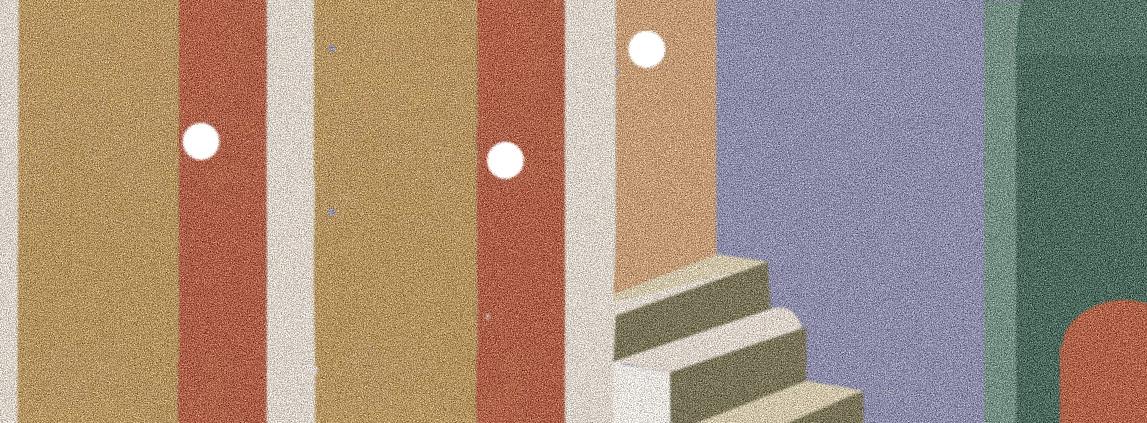
The Domestic and Family Violence Protection Act (2012) outlines what constitutes domestic violence and the types of protection orders which can be made to address it. The Act identifies that the LGBT community is a high-risk group for abuse and ensures they are eligible for all the protections offered to their heterosexual counterparts. Superficially, this appears to be a genuine approach to the issue. Where the legislation fails is not in its exclusion of any type of relationship, but in the procedures it establishes to supplement it.
The court is able to issue a Domestic Violence Order (DVO), which compels a perpetrator to refrain from violence and can include any other necessary terms for the victim’s protection. However, it is with whom the Domestic and Family Violence Protection Act places the power and responsibility of first response which prevents accessibility: the police.
The LGBT community and law enforcement have had a tumultuous history. Homosexuality was punishable by 14 years imprisonment until 1991 in Queensland, and only two years ago were those convicted allowed to have their record expunged. The tension resulting from years of persecution prevails, and many victims have reported that they have endured dangerous situations without assistance for fear of police. This mistrust has provided useful capital for abusers, who might suggest to their victims that law enforcement won’t help them because they’re a minority, isolating them further.
I take the young woman’s hand and lead her out of the sun. We have both been blinded by more than just the UV rays as many LGBT victims of intimate partner violence fail to recognise their situations as abusive. The awareness campaigns run by the Australian government are specifically catered towards heterosexual couples with a male perpetrator and female victim. This is particularly troublesome for lesbian couples, who report higher incidence of abuse in studies but do not seek legal action. The heterosexual dynamic, while most
Surrounded by rainbow flags and the distant soundwaves of ‘Untouched’ by The Veronicas, I am consoling a stranger whose present is my past. I have only just learned the colour of her eyes and how she pronounces her name, but we are connected by the shame of letting down our community. For so long the sexually and gender diverse community have had to fight to have their relationships recognised as legitimate. It is unsurprising that egregious accounts
It is not enough to recognise the vulnerability of LGBT people in legislation and provide no other avenue of government assistance. DVOs and police procedure afford little in the way of security and involve objectively greater risk for LGBT victims. The sufferers of abuse do so in silence and behind closed doors, because our relationships have only just been let out of the closet and into the Marriage Act.
“
Stigma(ta):
How (Not) To Leave The Catholic Church
When I was eight, my Chilean classroom teacher wheeled a television, as deep as it was wide, into my 3G classroom. She pushed in a VHS tape depicting a short-haired, American grandmother conducting a tutorial in how to sign the Hail Mary. We followed along, learning the prayer in ASL. It is a sign language not used in this country, not that it mattered. I forgot almost all of it with the notable exception of the sign for Jesus Christ, denoted by lightly pressing the tip of your middle finger into an open palm before repeating on the opposite side: the sign of stigmata.

Stigmata is the appearance of wounds in correlation with the wounds sustained by Christ during his crucifixion. Stigmata has its origins in Stigma, which comes from the Greek word for puncture or wound. The word arrived in the English lexicon, via Latin, meaning a mark burned into the skin to signify disgrace.
I didn’t know stigma and stigmata were so closely, linguistically related. But I’ve reached a time in my life where my years within the Catholic Church still greatly outnumber my years out of the church and this etymological fact has become painfully obvious. I still feel as if I wield my own stigmata. Forever marked by the Church, forever disgraced for leaving.
I didn’t know that Catholics were inherently guilt–ridden until I heard non-Catholics discussing the concept of Catholic guilt in my young adulthood. I didn’t know that it wasn’t normal to experience pangs of panic upon facing a moral dilemma.
And I certainly didn’t know that it was out of the ordinary to carry the weight of responsibility for everything that ever goes wrong, ever. But shame and responsibility are at the very core of traditional Catholicism. Much of my life has, therefore, been informed by the following notion:
Repent. It’s probably your fault.
I am still unsure what is supposed to happen to you after you leave the Church. I don’t believe in God and I haven’t found another faith. I know there are legal documents in existence which label me as a Roman Catholic, but I am not religious in any sense. I still think about life-changing homilies on the 385 and (quite covertly when my housemates aren’t home) sing my favourite hymns in the shower (Bread of Heaven is a banger, seriously). There is no formal procedure for leaving the church. Those who leave the Church never really leave. They just take a break. Lapsed Catholics, they’re called. I don’t want a party or a parade, but I would like to stop feeling uncomfortable ticking “atheist” on the census. But every so often I am reminded that the guilt I carry for leaving the Church is thoroughly unfounded.
The only encounters I have had with the Church following my high school graduation have been weddings, funerals and the odd tourist trip to a cathedral. Recently my partner embarked on their own spiritual journey which involved a delightful visit to Mary Immaculate Church in Annerley. The parish that Vatican II left behind is home to Brisbane’s traditional Latin service. I was so utterly
floored by the service I attended. And certainly not in a good way. It was painfully alienating.
This alienation did not stem from the nearly defunct language the mass was uttered in nor the priest facing away from the congregation. It wasn’t the way the women were dressed or the lace veils that draped over their shoulders. It wasn’t the red light that blinked off when a parishioner stepped out of confession and the next one slipped in, and it wasn’t the constant, fucking kneeling. It was thinking about praying in my bedroom for God to make me straight. It was having to sexually educate myself because of the inherent shame attributed by the Church to sex. It was wondering whether my friends’ parents would go to hell for getting divorced.
It was remembering that I was sitting within the walls of an institute that has systemically abused children and covered it up to protect vile human beings. An institution that still demonises minorities and denies the rights of LGBTQIA+ people. When I am reminded that the officials proclaiming the words of a man who spent his time with sex workers and lepers and tax collectors do not actually care about the rights of those on the fringes of society, I do not give a shit that I left the Church.
That is when I rejoice.
Catholicism will always be an intrinsic part of me. But it is also a part of me that I am content to shake off. Forever marked by, but not defined by.
“Conversation

I’m no stranger to feeling weird. Heck, everyone feels weird at some stage in their lives. Though, I had been feeling especially weird lately.
This was a new feeling: one of danger and unease. Nothing was happening, I wasn’t in any trouble. My life was going smoothly, or so I thought.
It would start as a feeling of nervousness. I would become restless and start tapping my feet. My heart would beat faster and my breaths became quicker.
It would start to get worse. I’d get a strange feeling in my throat, I would start to hyperventilate, and get a warm feeling in my chest. Then the tears would come, uncontrollably.
Over time, it started to happen more frequently.
During one of these ‘attacks’ I would look for something to do to distract myself from feeling what I was feeling. My go-to method was cleaning and rearranging things in my room. Or, if I was out, it was music. As long as my hands were busy and my mind occupied, I was able to get past these things I was feeling.
I consulted Dr. Google, as anyone in this day and age would do. I typed in my symptoms and of course, it came up with a million things it could be. Naturally, I thought I was dying.
I have a tendency to run away from my problems instead of facing them head on. If I ignore them, they don’t exist, right? It’s probably the unhealthiest coping mechanism out there.
FEATURED CAITLIN NEWTON
my father would do it as a part of an anxiety/OCD type behaviour. Both my sister and I do the same thing and it got me wondering: “could it have been a learnt behaviour or is it a genetically passed down mental health issue?” It was worrying to think about.
Starting the conversation with my doctor and telling him something wasn’t right was the best thing I could have done. I don’t know what would’ve happened to me had I let it go on.
I wasn’t coping. It started to have a negative effect on my life. I had no motivation and my physical health was declining, as were the relationships with my friends and family. All I wanted to do was hide away, not face the world, and spend countless hours in bed asleep.
About a year ago, I decided to face what was happening head on. It took a lot of courage to take the first step. I marched down to my doctor’s office, presented him with my symptoms and told him things weren’t right. He knew right away what it was, gave me a test to do, added up my score and boom. Anxiety.
The word ‘anxiety’ was one that I was familiar with but didn’t know too much about. Luckily there are plenty of resources, both online and in person, readily accessible to find out more about the way you’re feeling. I was relieved to finally have an answer and was ready to take the steps towards getting myself better.
In this case, my doctor prescribed a medication and recommended I see a psychologist. While these have been the right steps for me, this isn’t always the answer for everyone. Treatment is not ‘one size fits all’. It’s up to you to work with your doctor, as well as any other health care professionals you encounter along the way to customise the best care for you.
Not long after my doctor’s appointment, I had a conversation with my mother and sister about mental health problems. As it turns out, mental health issues run in our family. We were talking about things like frequent hand washing and how
One of the biggest things I learnt is that you must be willing to put in the hard yards. From sitting in doctors’ offices, doing research, talking to friends and family, talking to psychologists or psychiatrists, to remembering to take your medication every day. Each of these are important steps to understand what might trigger certain responses and help you cope.
Fast forward to now, my life has changed completely. I’ve gotten the spring in my step back. I’m more focused, doing the things I enjoy and even started university again after taking some time off to focus on getting better. I’m in control of how I feel. I no longer let my feelings control me.
I would encourage anyone reading this, if you have a feeling that something isn’t right, to start a conversation. Start it with your family, start it with your friends, start it with your doctor. Reach out. Do some research, find out what you need to do to save yourself. Take the time to take care of you. At the end of the day, you are the only one you can rely on. Taking care of yourself first and foremost isn’t selfish. It’s necessary.




De-Transitioning:

Internalised Stigma “
A Breakup Letter To Anorexia, Who Promised Me Everything
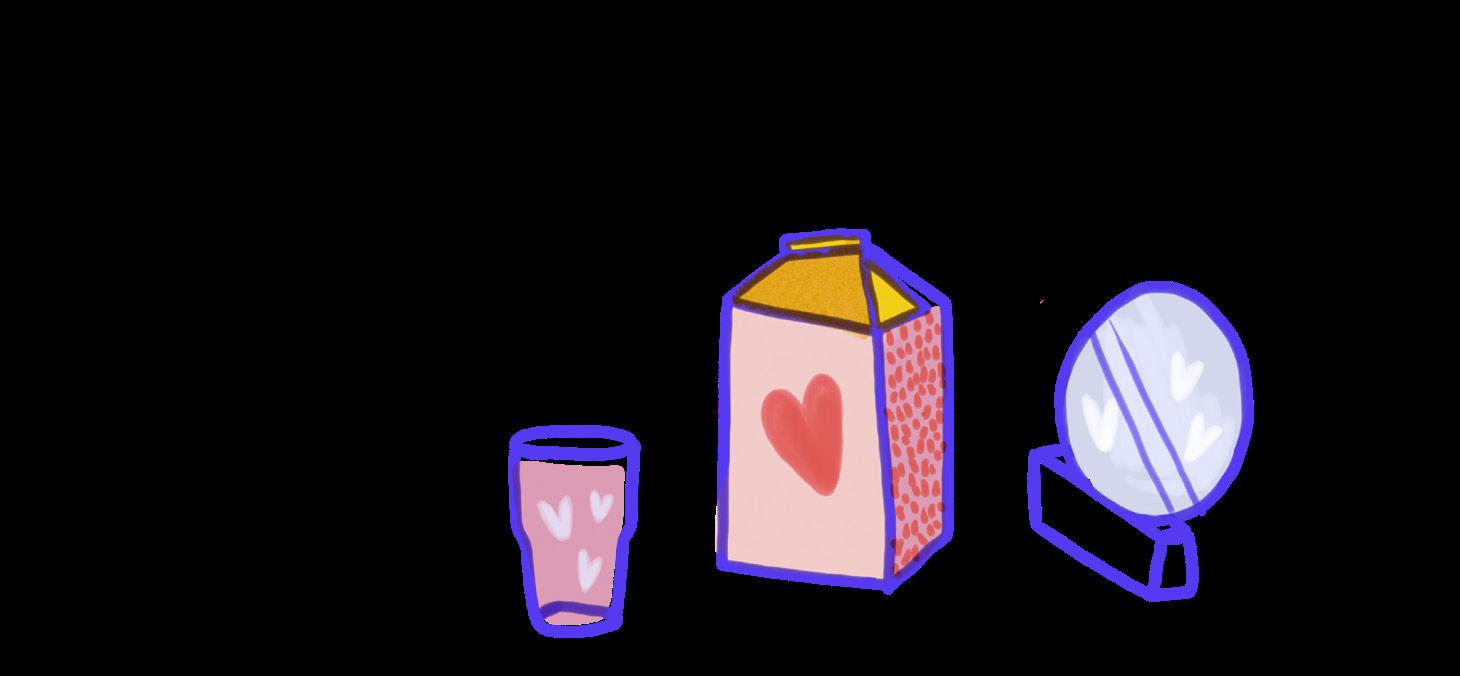
In 2014, I first learned about the gender identity of non-binary. I had lived all my life until that point believing you were either a man or a woman, but as I went through my teenage years I felt like I didn’t belong in either category. Discovering that other people felt the same way, and even had a label for it, made me feel I finally belonged somewhere. The LGBTQIA+ community accepted me with open arms and no judgement, and I felt truly understood. For over a year, from age 17, I identified as transgender non-binary. During this time, I rebelled against the idea of the gender binary because I felt repulsed by my body. I now know this was due to varying sexual traumas in my life that I hadn’t dealt with. I also hated the way society views women as sexual objects and felt that I didn’t belong in the stereotype that I was being squeezed into. I flattened my chest with binders and layers of sports bras, used gender-neutral pronouns and chose the name ‘Red’.
Now, five years later, I have grown immensely as a person. I am now unashamed to be a boss ass woman in a patriarchal society, but until recently I had been so afraid to out myself. ‘De-transitioning’ is a very touchy and scary part of the LGBTQIA+ community. There is a lot of stigma and shame revolving around it. Although the community is so accepting and loving, there is also a lot of hate fuelled by fear. A lot of people who de-transition are cut off by their friends in the community. I believe this is because they are afraid of the idea that it will confirm that being transgender is ‘just a phase’. This was also what I was afraid of. I did not and do not want to let those who told me that I was wrong think that they were right. Yes, I have moved past that part of my life, but there is
no way I would be as strong or as self-assured as I am now if I had not let myself experience that part of my life. My gender identity at that time was 100% my real identity, and that shouldn’t be pushed aside as a “phase”.
I am still a member of the LGBTQIA+ community as bisexual. I had been too scared to outrightly say that I was no longer transgender, in fear of being shunned and cut off by my friends. I knew that this wouldn’t happen to me, but still, the fear is very real.
I don’t want to lose sight of my past identity. It still holds a lot of growth and positive memories. I had never felt so much validation and acceptance from so many people as when I joined the LGBTQIA+ community. I have cried tears of fear, sadness and joy with this community and I do not want to lose sight of what those times meant to me. But we still have a long way to go when it comes to love. We have love for those around us, but none for ourselves. And I don’t blame us — we’ve faced so many years of hate and suppression from others, how couldn’t we believe them?
But I think it’s time we take our names back without fear or shame. It should be us against the problem, and that problem is hate. The only way to do that is to show those who hate us that we will still love ourselves and each other, against all odds. And maybe that way, they can learn to love themselves in return.
Dear Anorexia, Sometimes I wonder why you chose me. I never believed I was your type. I see you go for people who are completely unlike me — cheerleaders, ballerinas and small, fragile girls. I was eighteen, cursed with wide shoulders and a sweet tooth, eager to drop a dress size.
When I first started experimenting with you, it wasn’t so bad. We were accountants, managing calorie budgets and computing the push-ups I owed. We tried diets on YouTube. We shot apple cider vinegar and threw midnight exercise parties. We promised to stick with each other through thick and (literally) thin.
I’m not sure when you became controlling. You expected more and more of me and kept moving the goalposts. You were never proud of me no matter what I accomplished, but I couldn’t stop myself from seeking your validation. I envied your other friends: your dainty, doe-eyed orbiters who were sophisticated and graceful. I tried desperately to catch up to them—best them, in fact—so I could be special.
Whenever I was vulnerable, you would rip me from my bed and strip me bare before the mirror. You cast spells on my reflection until the image distorted. I would cancel breakfast for a date to the gym.
The worst part was, I couldn’t let you go. I was besotted with you. In my chaotic, whirlwind life, you were the only thing I felt I could manage. I was failing my classes, failing my work and failing my family, but I was passing your tests, so it was fine. Down spiralled my grades, BMI and health. But at least I was succeeding in something, I thought.
It wasn’t until they locked me up to surgically separate you from me that I truly saw the damage you cause and the lives you ruin. I watched beautiful hourglass figures begging to be empty and pear-shaped bodies wasting into rotten shells. I befriended big girls and small girls with their teenage years stolen from them—movie dates, burger runs and prom nights scammed for hospital visits and therapy.
You’re an indiscriminate bully who holds no preference.
I realised you’re my enemy. I must stand up to you.
I want to fall in love with food again.
I want to fall in love with me again.

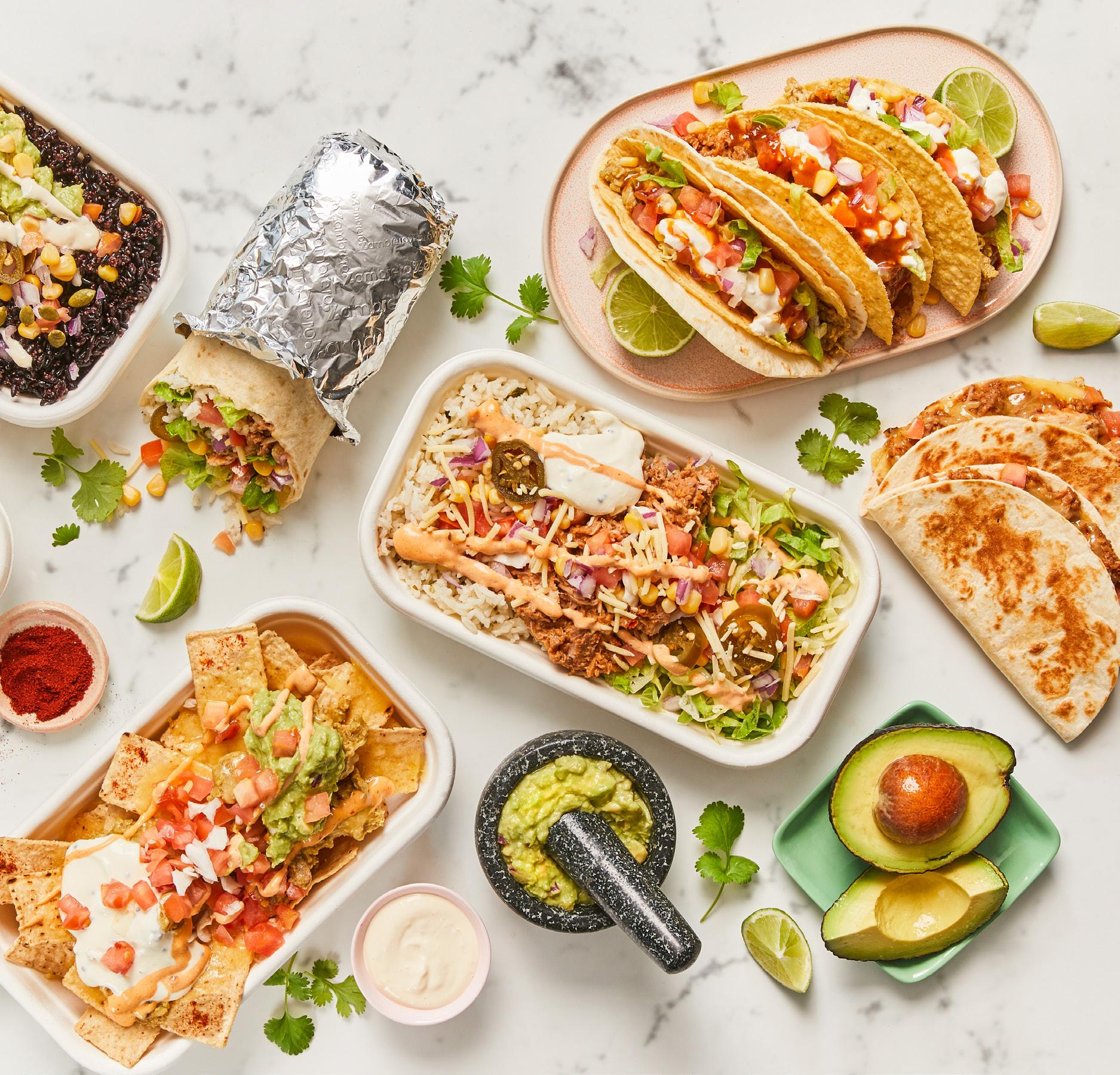
How Can We Be Of Assistance?
JOSEPH INGRAMTalking To The Guild’s Academic Advocates
De-transitioning:
Internalised Stigma
Student Assist exists to assist students when they are having problems with their studies. The Guild will write any appeals or applications the student needs to submit and represent them at any meetings they have with the University. The MOPP is difficult to navigate due to the language, size and range of university related topics it covers. Read until the end of this article to see the top policies we think you need to know as a student at QUT.
In 2014, I first learned about the gender identity of Non-Binary. I had lived all my life until that point believing you were either a man or a woman, but as I went through teenage-hood I felt like I didn’t belong in either category. Discovering that other people felt the same way and even had a label for
population if issues arise. However, in order to achieve this the Guild needs the assistance of students.
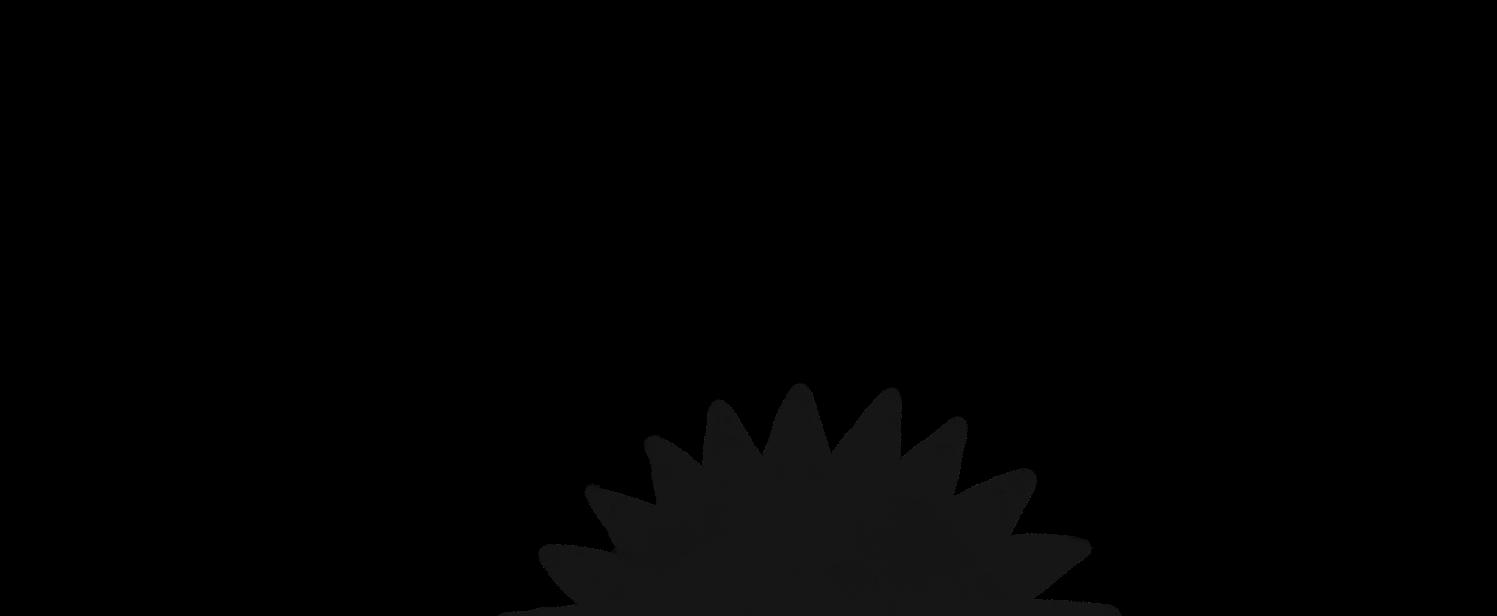
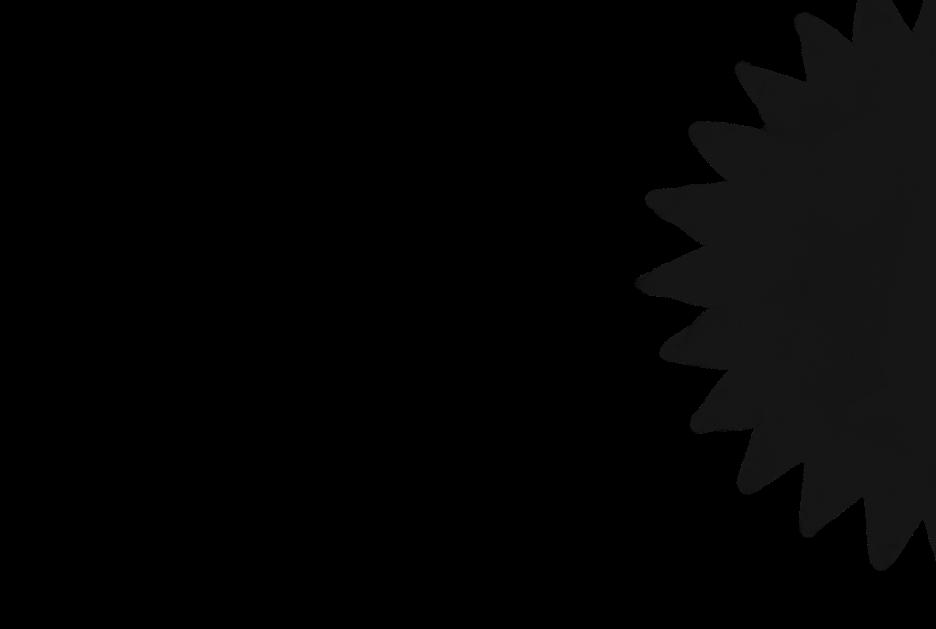
Students should report to the Guild any action by the University or its staff that compromises the quality of the teaching and the learning experiences you and your fellow students are receiving. Some of the more common concerns to be on the lookout for include:
way I would be as strong or as self-assured as I am now if I had not let myself experience that part of my life. My gender identity at that time was 100% my real identity, and that shouldn’t be pushed aside as a “phase”.
Solidarity Is The Only Real Arrow
A day of survival and war, To keep the peace, but truly what for.
Celebrating Queer Spaces And Queer Pride At QUT
QUEER OFFICER MAX FOXInsights
Hi, I’m Max, the current Queer Officer for the QUT Guild.
We’re really lucky to have super strong support for the queer community from our University. You should never have to feel like you can’t be your authentic self at QUT. There are many free resources available to help you, including student counselling, bulk-billed medical centres, the QUT Queer Collective and a University Ally Network.
Queer Spaces on Campus
What does a queer space entail?
Part of this shared commitment involves providing designated safe spaces on campus for queer people to feel comfortable being their authentic selves –easy to access but away from the hustle and bustle of university life. This year, the QUT Guild and the University are working together to provide two new Queer Spaces, one at each campus, which will function as spaces to relax, study, mingle and eat –all in a welcoming, queer-friendly space.
At Kelvin Grove, you can find the relocated Queer Space on Level 2 of C Block. Go through the glass door next to the QUT Bookshop and follow the signs.
At Gardens Point, you can find the relocated Queer Space on Level 3 of X Block.
These facilities contain lounges, TVs, queer books and resources for people who may find these of use to relax or focus. The Queer Spaces also offer free condoms and dental dams as a part of their safe sex initiative.
QUT Queer Collective
What is the QUT Queer Collective?
The QUT Queer Collective is an autonomous group by queer students, for queer students and operates as a social network and representative body for LGBTIQA+ students here at QUT. The Queer Collective is allocated a budget by the QUT Guild to support the wellbeing of its members. Membership is free – join online at facebook.com/qcqut and like our Facebook page to keep up to date with social events and programs throughout the year!
The Ally Network
What is the Ally Network?
QUT has staff members trained to understand diverse gender and sexuality issues sensitively and to provide referral services. They can be found across the entire University, including your teaching staff, doctors at the QUT Medical Centre, and counsellors in Equity and Student Counselling. To find an Ally, search ‘Ally’ on the HiQ website.
All-Gendered Bathroom
Do we have all-gendered bathrooms?
QUT Gardens Point’s Library (V-Block) on Level 2, has just opened its All-Gendered Bathroom. It is somewhat like a unisex bathroom, however it has the full functionality of multiple toilets rather than a singular unisex bathroom. People from any gender are able to use this space and it is a great stride for the transgender and non-binary students that attend QUT.
Do blondes have more fun? As a natural blonde I can tell you that isn’t always the case (though I can’t speak for all the salon blondes out there). This is a well-known stereotype thanks to advertising, media and reality TV personalities. However, not all stereotypes, stigmas or labels are quite as positive as thinking blondes have more fun. We are all many things and have many labels, but that doesn’t mean we are all the same, and why would we want to be?
If I told you I was legally blind, what comes to mind? Somebody walking around with sunglasses and a cane? A person who needs help finding things and who could never be a lawyer, psychologist, or teacher? What if, instead, I said I was a PhD student? I bet an image of a different person comes to mind, but why can’t I be both?
I can be many things. I am a smart, well-travelled psychologist who just happens to have awful eyesight. In the same vein, a Deaf person can be a great musician with a wicked sense of humour and a person with Autism can be a brilliant doctor who has 100,000 Instagram followers. A person with Anxiety can be an amazing teacher who is an incredible dancer and a brunette can be the life of the party.
Growing as a person at university is all about learning about things we don’t understand and accepting that we are all unique. Through this we can also see how in many ways we are also the same. We all have ups and downs; we all have things we are good and bad at and we all need help sometimes.
At school, we were always encouraged to ask for help and told that we weren’t expected to do everything ourselves. So, at what age does it stop being okay to ask for help? So, we turn 18 and suddenly know everything, can do everything and can cope with everything all by ourselves?
It took a long time for me to accept help. I look back on my time in high school and think ‘why didn’t I accept everything and anything that could have made things easier?’
The answer is simple.
I didn’t want to be different. I didn’t want to be that weird kid who couldn’t read the board and needed giant (and when it is printed in A3, it is giant) textbooks and worksheets. So instead of accepting help, I fought tooth and nail against it and was embarrassed every time I couldn’t do something others could. Instead of focussing on the positives like being given extra time on exams and having my own room to do it in (something I now love and know every student would want), or the impressiveness of being the best defender on my soccer team (impressive, since I couldn’t see the ball when it was 10m away), I focussed on the stigma that surrounded needing help.
When I left school, I realised that it didn’t reflect badly on me if I couldn’t read something, but instead on the people who judged me for it. I discovered that most people are happy to help, happy to read the menu for me or show me where my seat is. I also discovered that my University has services that could really help me. From getting digital textbooks and free computer software, to giving me digital exam papers, extra time and a room all to myself, there’s a lot on offer. I personally love having access to these services, but I know that many feel shame or embarrassment around accessing them. Maybe the shame lies in the stigma around the name ‘Disability Services’, I mean who wants to be labelled as disabled, especially since some people treat it with a negative connotation? Maybe people would feel more comfortable asking for help if we called it ‘Accessibility Services’, because it makes our time at university more accessible – whether you are vision impaired or have another abilities related requirement.
Knowing that there is a service which can help with whatever your accessibility problem is and being comfortable accessing it, is so important. We are at university for a long time, and suffering through it when there is help available will make it all-themore difficult. So, let’s break the stigma around asking for help and around being different, because we are all different and we could all use a bit of help. Remember, we are more than our problems.
I Am An International Student, But That Does Not Mean I Am Alone.
My first semester at QUT as an International student was a true nightmare. I went to uni every day. If I didn’t have any classes, you would definitely catch me reading a whole load of IT stuff in the lab or struggling to get my written piece done in some badly lit library corner. At some points during the semester you could even have seen me staying in the lab for the whole day and not returning home till 1-2 am. I used to sleep only 4-5 hours per day back then, cook for myself once per week and eat the same food for seven days in a row.
I didn’t hang out much socially and barely knew anyone or any fun places. The place I spent most of my time was definitely in the lab, in front of the screen, alone. I knew that I was not living at all at that time and that my true personality could not be further from that girl hunched over a book, but it seemed that I had no other choices back then.
Receiving a 25% scholarship for my tuition fee from QUT, I was under a lot of pressure to maintain a GPA above 5.5 to be granted the scholarship again for the next semester. I struggled a lot as a fresher in my IT degree while everyone seemed to know everything already. After an attempt to ask my tutor for in-class support and sensing his unwillingness, I kind of dropped off the radar.
I guess this was one of my main mistakes that
made me end up with a GPA of 5.25 in Semester One.
I was supposed to lose the scholarship, but by some miracle the university decided to sponsor me for another semester. Even so, for the first time in my life, I saw myself as a loser. Throughout my time in high school, I always maintained the top GPA of over 90%, but why do things seem so different here? I was so depressed, but I knew it was not the end of the world. This second chance meant I had to try with every bit of me to turn the game around.
What did I do to change the situation?
I made a list of all the possible reasons for the bad results I got, and here’s what it looks like:
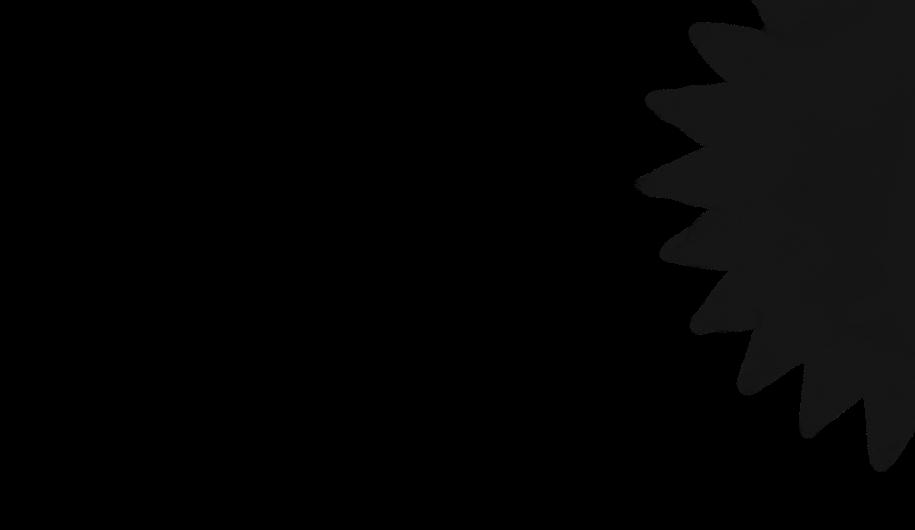
1. Thought that I was a lone wolf
2. Did not meet the requirement of the assignment
3. Did not use my time wisely
5. Did not set up a specific GPA target in the first place
6. Did not enjoy myself.
I realised the worst mistake I made was to think that I had to handle everything on my own. Because I wasn’t used to the way of studying here, of course I couldn’t perform as well as I wanted to. When things didn’t go to plan, I started to stress myself out and made things even worse.
The first thing I did to get out of this vicious circle was
doing a bit of the research about the four upcoming units, joining some Facebook groups of IT students, asking someone who has done the unit before for some advice. Coming into the semester, I tried to be more open with tutors and classmates. I didn’t hesitate to have a quick chat with my tutor about the assignment and send them my draft to make sure my work was on the right track. I also utilised available support from QUT and the Science and Engineering Faculty. I visited the drop-in sessions via STIMulate and library Language and Learning drop-in session. While the first one helped me to catch up with IT background knowledge, the other could assist me with academic writing, researching and referencing (I know this is a daunting task for many international students).
During Semester Two, the Library and the Lab are still my frequented places, but this time I was not on my own but instead, with friends. We gathered a small group to study together. Writing assignments was still a pain, but it feels so much better to have someone with you.
to get the most out of the education system. We are under a lot of pressure regarding academic concerns, which is understandable. But it is important that we still enjoy ourselves while trying hard. At the end of the day, it is the memories and things we learn along the way that stays with us after we graduate from university—as well as our grades— that make the difference.
There are many QUT services that you can access. The two that I found useful were the International Student Services and the Library Drop-in Sessions.
WOMEN’S OFFICER
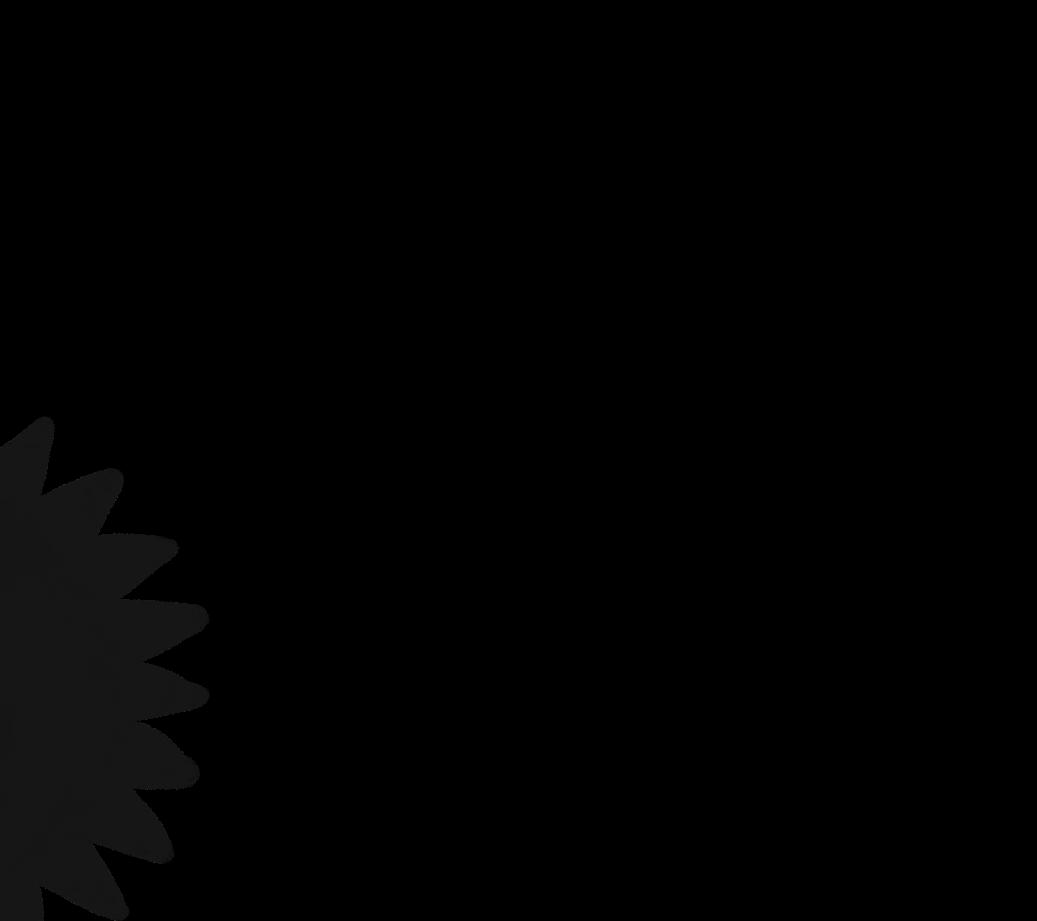
QUT aims to follow a trauma-informed process for reporting. This includes reducing the number of times someone has to repeat their story and making the process as simple and as straightforward as possible. Those involved may request Equity to provide interpreter services and may be accompanied at any point in the process. They may be accompanied by any person of their choice such as a friend, colleague, Oodgeroo Unit, International Student Services, relevant staff
Students may access the following resources
QUT Equity: 3138 2699 (GP) 3138 5601 (KG) |
QUT Counselling: 3138 22383 (GP) 3138 3488
QUT Medical Centre: 3138 2321 (GP) | 3138 3161 (KG)
QUT Guild Advocacy: 3138 1683 (GP) | 3138 2349 (KG) | advocacy@qutguild.com (GP) | kgadvocacy@
Victims Counselling & Support Services: 1300 139
SAFTEY TIPS ON CAMPUS
• Download the SafeZone App to report suspicious activity, contact security, request first aid or request safety escorts.
• Contact Security on 3138 5585. They work 24/7 and offer security escorts.
• Contact QUT Equity to discuss a safety plan.
• QUT Night Shuttle operates from 6pm to 11pm from both campuses. Drop off locations include major train stations and carparks around Brisbane CBD.
Although these services are important and vital to the safety of students on campus, there is still more that needs to be done. Beyond providing services to keep victims safe, we can all help to flip the script. Change happens when a group of people decide they are no longer willing to permit their current situation. Surviving sexual harassment and sexual assault should not be shrouded in stigma. Instead, it should be met with respect, understanding and many voices – all working to eradicate rape culture.
Brisbane Rape and Incest Survivors Support Centre
Living Well | Support for Male Sexual Abuse and Sexual Assault: 3028 4648 livingwell@angelicaresg.
Tips On Being A Sustainable Student
Having a sustainable lifestyle as a uni student can often feel like a difficult and expensive thing to achieve. What if I forget my reusable cup? Being sustainable is always a good thing and changing aspects of your lifestyle—big or small—will always have a positive effect. So, here are a few little habits that are kind to the environment.
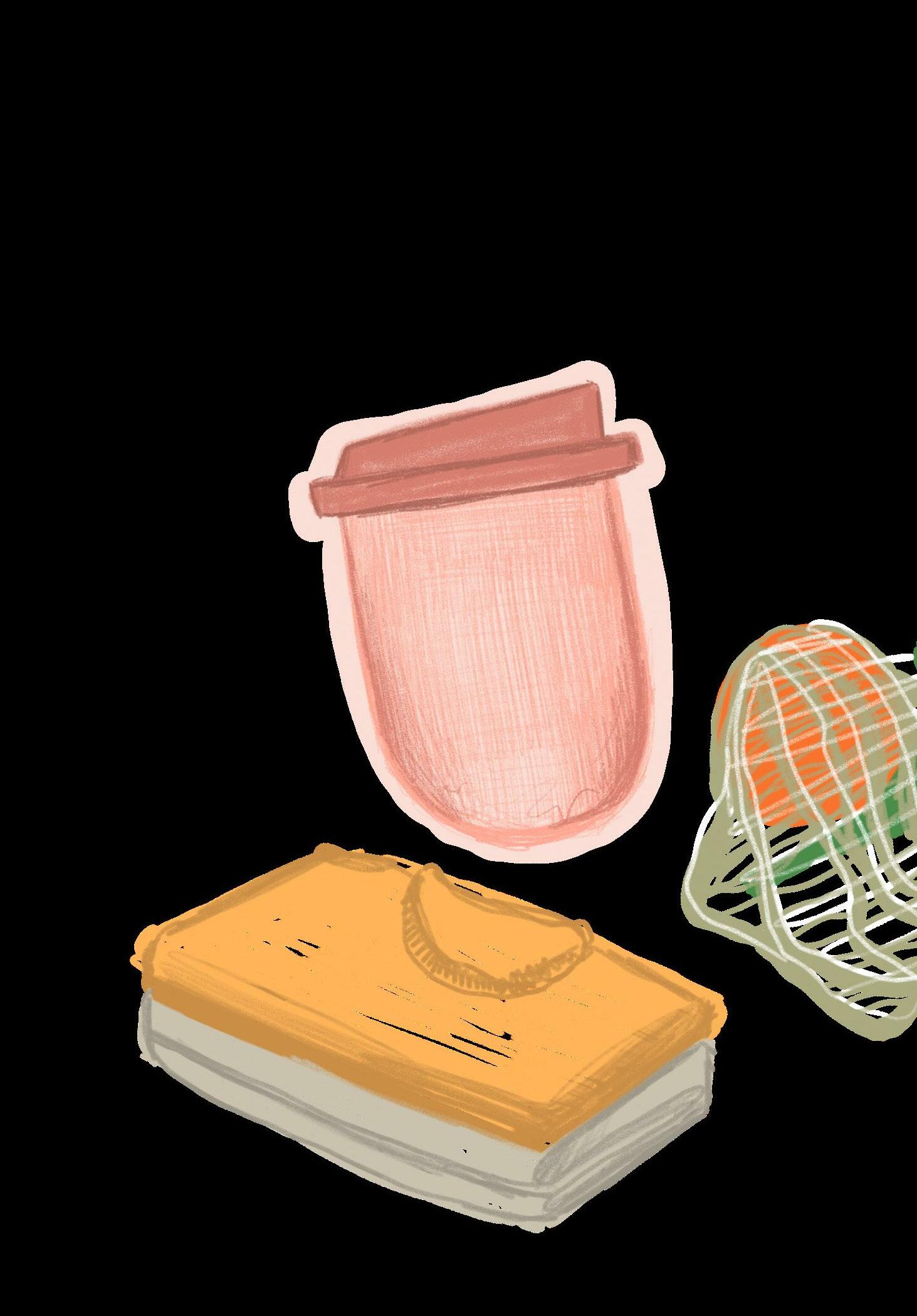

Cutlery and Packaging

A big change: preparing meals to bring in from home instead of getting takeaway is a great way to cut cost, eat healthy and reduce waste. It’s also a wonderful way to channel your inner Gordon Ramsay and learn how to craft some delectable treats.
A little change: If cutting out takeaways isn’t for you then you can jump on the BYO bandwagon and grab yourself some reusable goodies and grab takeaway food from more veg-based establishments. If you’re wondering where to find some affordable reusable items, QUT Guild has partnered with Biome, Flora and Fauna, and Seed and Sprout to get discounts for QUT students on their products. Some of our favourite veggie food places include Green Edge (Windsor), Flora by Greenhouse (West End), Netherworld (Fortitude Valley) and Loving Hut (Mt Gravatt).
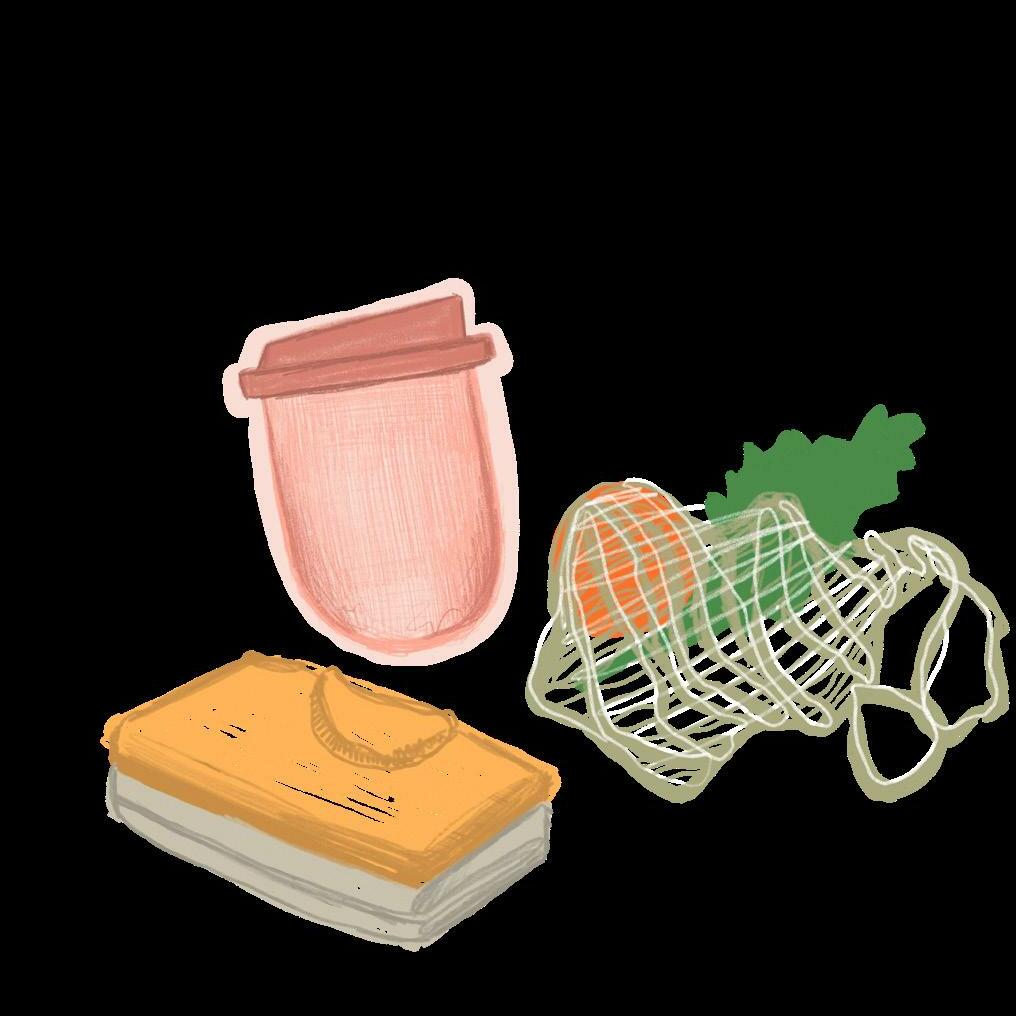
Transport
A big change: Catch public transport. If you live relatively close to uni or work, catching public transport can help reduce the amount of fuel and emissions you’re generating on your commute. Walking or riding a bike is even better and healthier, if your commute is short enough.
A little change: Carpooling. Often, public transport is just not an option. If you have to drive, then consider carpooling. If you know someone heading in the same direction as you then organise to share a lift. Fewer petrol expenses. Fewer emissions. More company.
Clothes
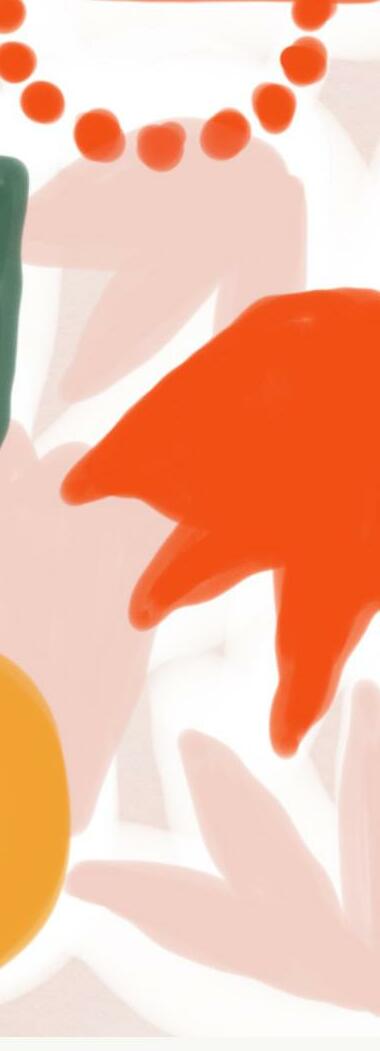
A big change: Only buy second-hand clothes. Op-shops are a goldmine for great clothes and a fantastic way to reduce your impact on the planet. By trading fast fashion outlets for your local Vinnies or Salvos, you’re not supporting unethical clothing manufacturing and generating waste. You’ll also find funky outfits that you can be certain none of your friends already own. The QUT Environment Collective also has Eco Hubs every week alternating from KG and GP campuses, where they sell super cheap clothes donated by students.
A little change: Donate your old clothes! Op-shopping is an art, and sometimes it can take a while to find the gems. The QUT Environment Collective has a bin outside the QUT Guild office (C Block) at the KG campus where you can offload your old outfits to be sold at Eco Hubs.
Those are just a few ways you can shake up your daily routine to be a little more sustainable. The planet will thank you for any kind of sustainable change - great or small.
Regarding our O-Week Raffle and the Future
Thank you for all your support for what was an amazing, successful raffle. 100% of the money raised has been sent to WIRES, so that they can continue to rescue and rehabilitate injured wildlife, particularly after the 2019/20 bushfires.
We would also love to acknowledge the great generosity of Australian Geographic, Seed & Sprout, Frank Green, Biome, SWOP, Netherworld, EverEco, Kappi and Vessel Nundah for donating such incredible prizes to our raffle, so a big thank you to those companies. If you are a student and you are interested in transitioning to a more sustainable lifestyle, we strongly recommend supporting these companies with your dollar.
In the meantime, while at university, be sure to engage with the Environment Collective for some exciting events and opportunities to get involved with! The Environment Collective is a student group dedicated to helping the environment. They run weekly Eco Hubs at both KG and GP that sell local fresh produce and second-hand clothes donated by students. They also help organise environmental activism and promote sustainability on campus through various events, workshops and initiatives.
We can’t wait to see more students engaging with sustainable practices and habits this year!
RECIPES Drink Responsibly
The Perfect Cocktail Recipe For Your Faculty...
Law
Business SEF
Old Fashioned Bellini Espresso Martini
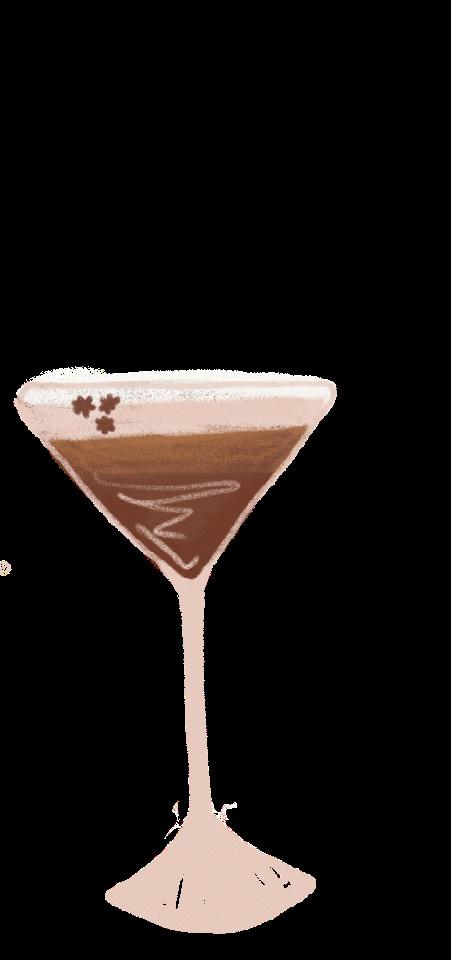
Ingredients: Ingredients:
Education
Long Island Iced Tea
Ingredients:
Creative In. Paloma
Ingredients:
45ml Tequila 15ml Lime Juice
Health Aperol Spritz
2 Parts Procecco
Ingredients: 2 oz Bourbon
2 Dashes of Angostura Bitters
1 Dash of Humility (optional)
1 Sugar Cube
Method:
Muddle the sugar cube in the bottom of a glass. Add bitters. Add Bourbon. Stir. Add ice to chill. Drink while complaining about Equity and Trusts.
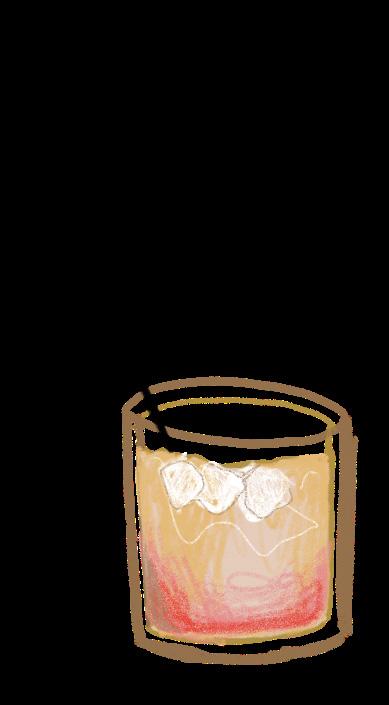
1 Part Peach Puree
1 Part Clever Linkedin Bio
Method: Pour procecco into a champagne glass. Top with peach puree. Serve as you close the deal on your small business grant.
1 Part Vodka
1 Part Coffee Liqueur
1 Part Espresso
3 Dashes of Sleep Deprivation
Method: Combine all ingredients in a cocktail shaker. Shake vigorously. Strain into a chilled glass. Drink. Record Results. Repeat Experiment.
15ml White Rum 15ml Gin 15ml Cointreau 15ml Tequila 15ml Vodka 20ml Lemon Juice Sugar Syrup Cola, to top Lemon Wedge Patience. Lots and lots of patience.
Method: Combine spirits, lemon juice and sugar syrup in a cocktail shake-. Listening! Shake vigorously, then strain into a glass with ic- No, I’ll wait. I’ll wait. Top with cola and a lemon wedg-Eyes on me, please! Then drink.
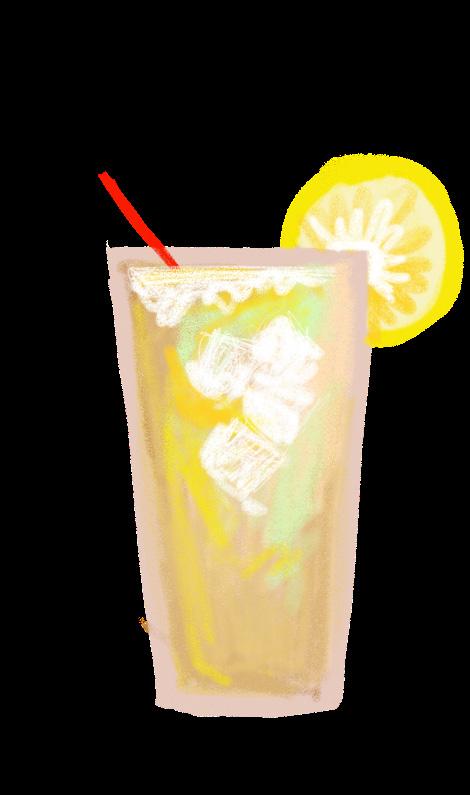
Sparkling Pink Grapefruit, to top
Salt, both about your career prospects and for the rim.
Method: Salt the rim of the glass. Add ice, tequila and lime juice. Top with sparkling pink grapefruit and drink at the next art exhibition you go to in somebody’s share house.
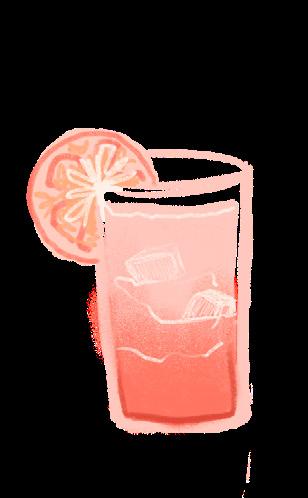
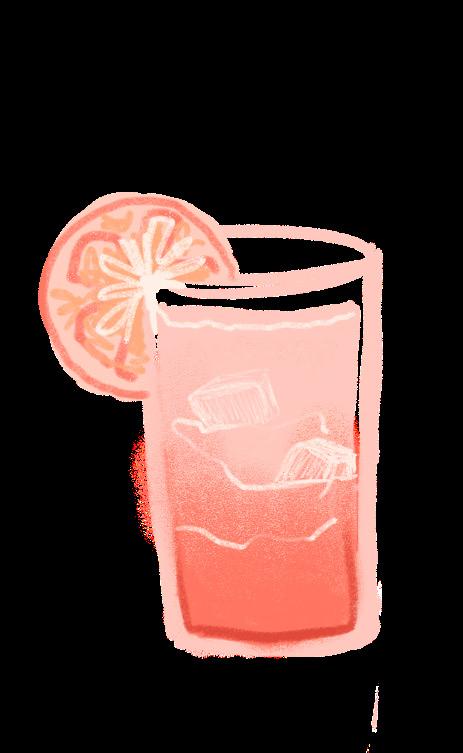
Ingredients: 60ml Aperol 90ml Prosecco 30ml Soda Orange Wedge to serve, for nutritional purposes.
Method: Mix Aperol, prosecco and soda in a large wine glass with ice. Add orange, serve and enjoy after your Saturday 5km.
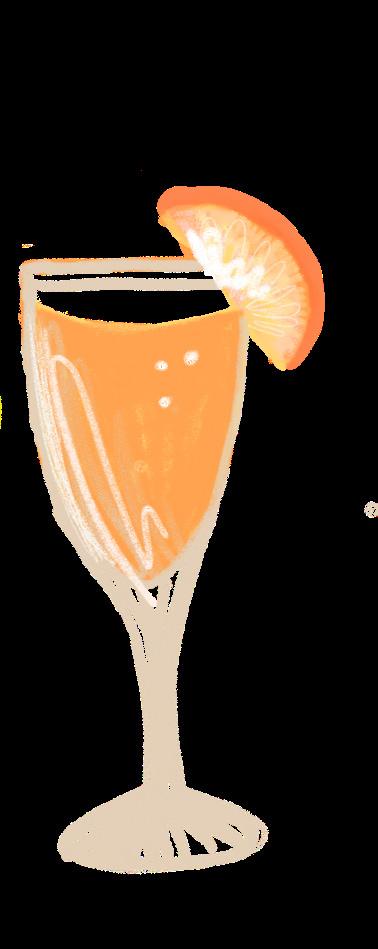
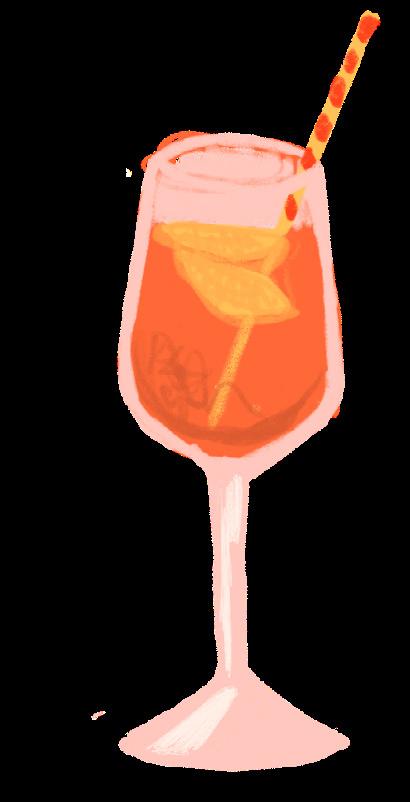
onsiby

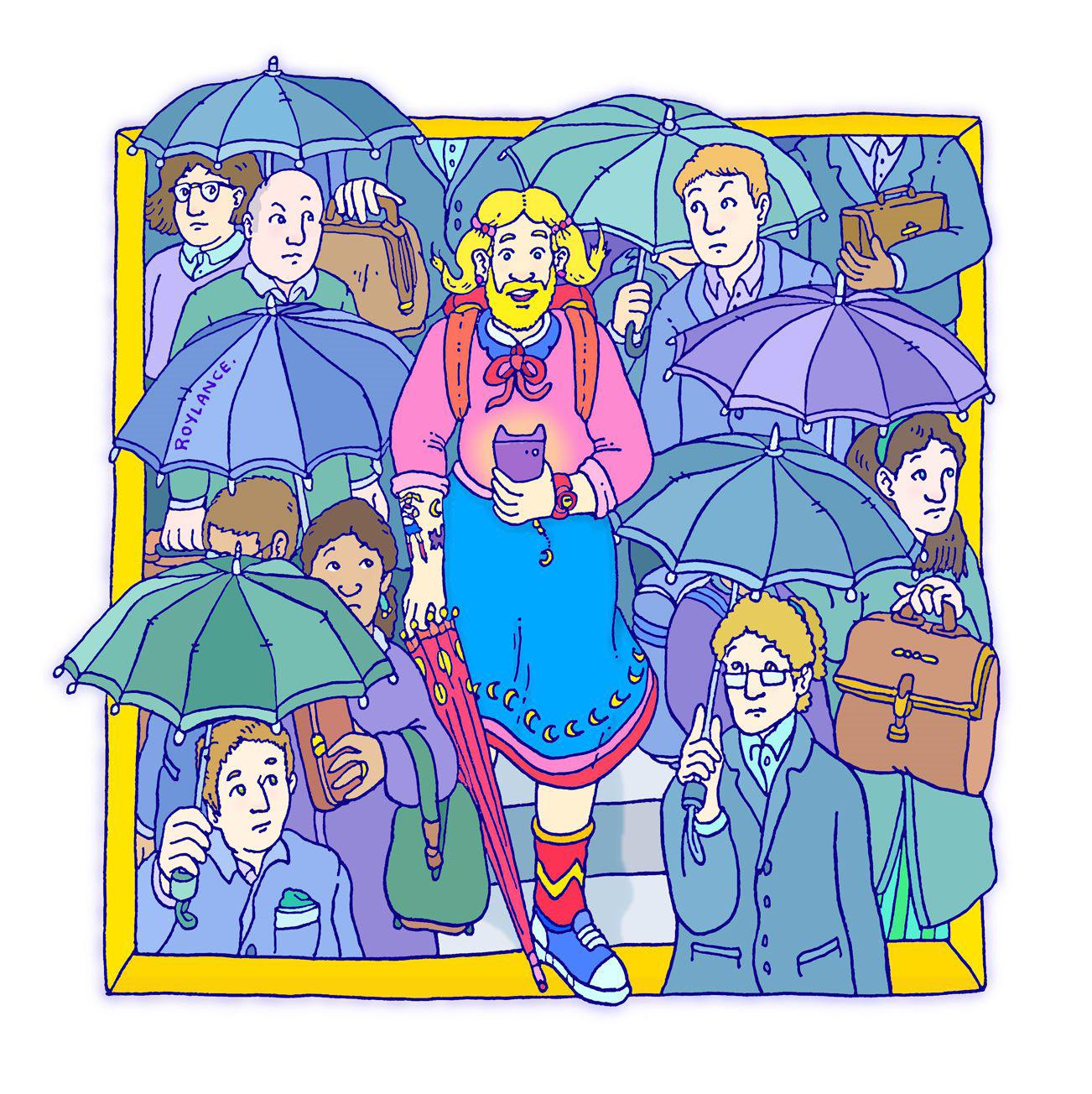
Wanted: Interns
(Unpaid)

In the modern university landscape, internships are undoubtedly the most common way into your given industry. I speak from my experience as a Creative Industries student, having completed placements in my second year of university. The internships described in this piece are extracurricular, rather than a nursing placement or Work Integrated Learning unit which counts as a credit towards your degree. As more young people gain higher education qualifications, getting a degree is not the only barrier to entry. Entry-level jobs are asking for at least a year of experience in a similar role these days. There seems to be no more accessible ways for tertiary students to fill the criteria of the job market without an internship.
See how the above paragraph has no mention of remuneration of any kind? Yeah, the internship EOI’s you’re viewing most likely won’t either. In fact, the idea of an ‘unpaid internship’ is somewhat of a misnomer. In most modern Australian cases, it is, essentially, unpaid labour. The Fair Work Ombudsman outlines that internships should be paid if they include productive work that furthers the productivity of the business, without a set learning experience for the intern. In my internship, my writing, design, marketing and event management skills directly contributed to the profit and development of the business, as I was already competent in those skill areas. My work
was sent out to followers and clients of the businesses I worked with, which fits the bill of a productive work internship. From my perspective, I was gaining experience and contributing to the cause of where I worked. I did gain those things, and I am grateful for the chance I had to work on projects that people my age usually wouldn’t. However, what I didn’t realise I was gaining during those internships was a diminished savings account.
There is an inherent cost to working for free and there is a level of privilege involved in affording to do it.
If you are the primary income earner in your household, you cannot afford to work for free. If you care for someone full-time, you cannot afford to work for free.
If you are studying full-time and not working, you cannot afford to work for free. You can only afford to work for free if you have the luxury of a disposable income or someone supporting you, such as a parent or partner. You can only afford to work for free if you have the time do so. You can only afford to work for free if your weekly income is not the difference between eating or not. I couldn’t afford to intern for more than one day a week, especially not for an extended period. For many tertiary students, myself included, the barrier to entry for unpaid internships is far too high a vault to jump.
However, that’s not to say that unpaid internships don’t have any benefits. The problem with them is that they do.
Internships have a multitude of benefits. You get to be mentored by industry leaders, meet key players
in your industry you usually wouldn’t meet, learn job-specific programs and software, receive experience beyond your years, get your work exposed to many clients, and overall have a great time. Unpaid interns also appear to gain a reputation for being the hardest-working in their cohort – go-getters, if you will. All those things are great. No doubt about it.
The students who can afford to partake in these unpaid internships will inevitably enter the job market with much higher prospects for entry-
There is no actual answer for how to fix the culture of not paying interns. The prospect of unpaid labour that talented students are happy to perform is far too tempting for employers, from advertising agencies to lawyers’ offices. Something we can do to begin to fix this culture is to begin a dialogue about unpaid internships versus paid internships and the expectations for each. More importantly, we need to make sure the dialogue is heard by employers who routinely use unpaid internships. Those who can afford to intern for free right now
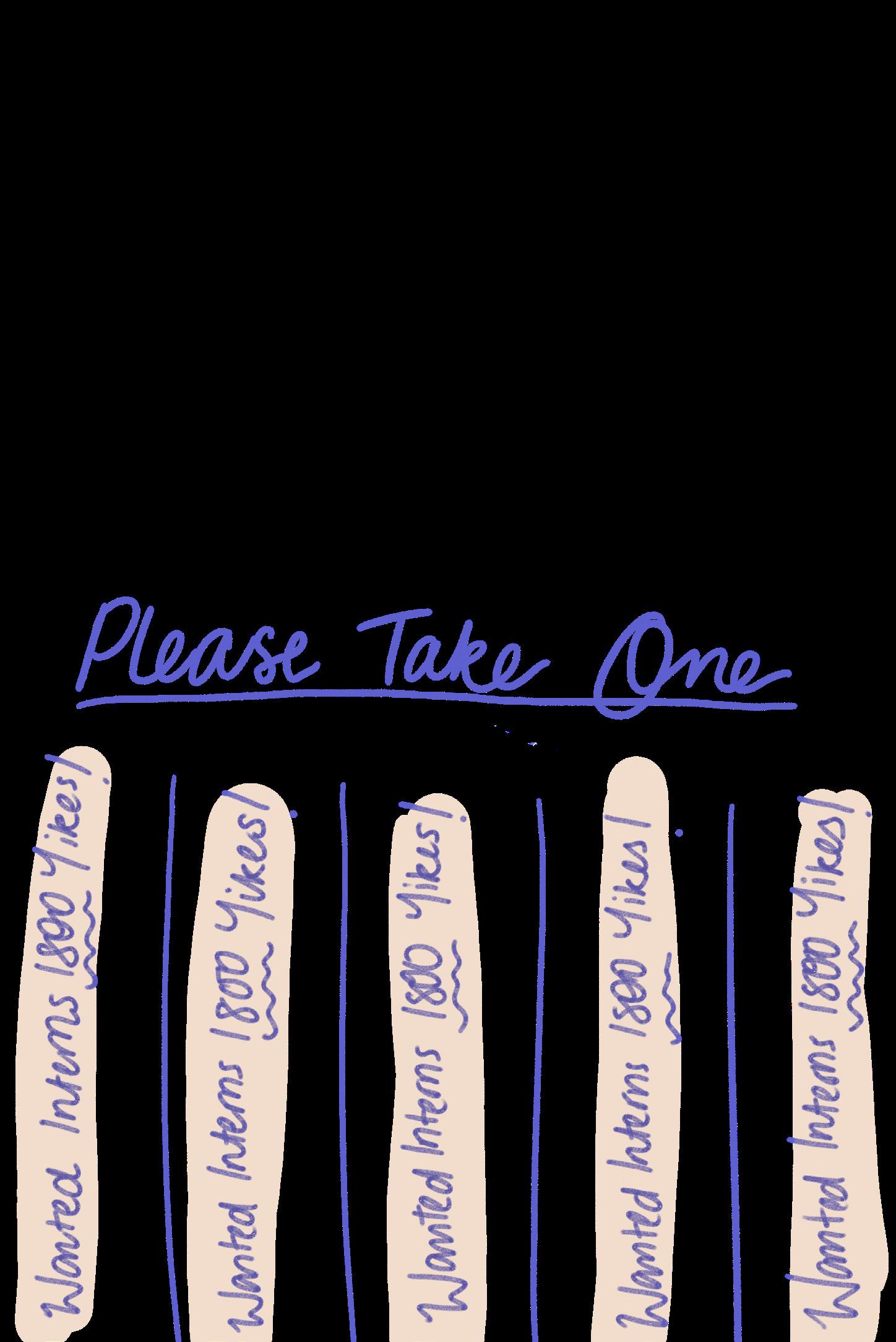
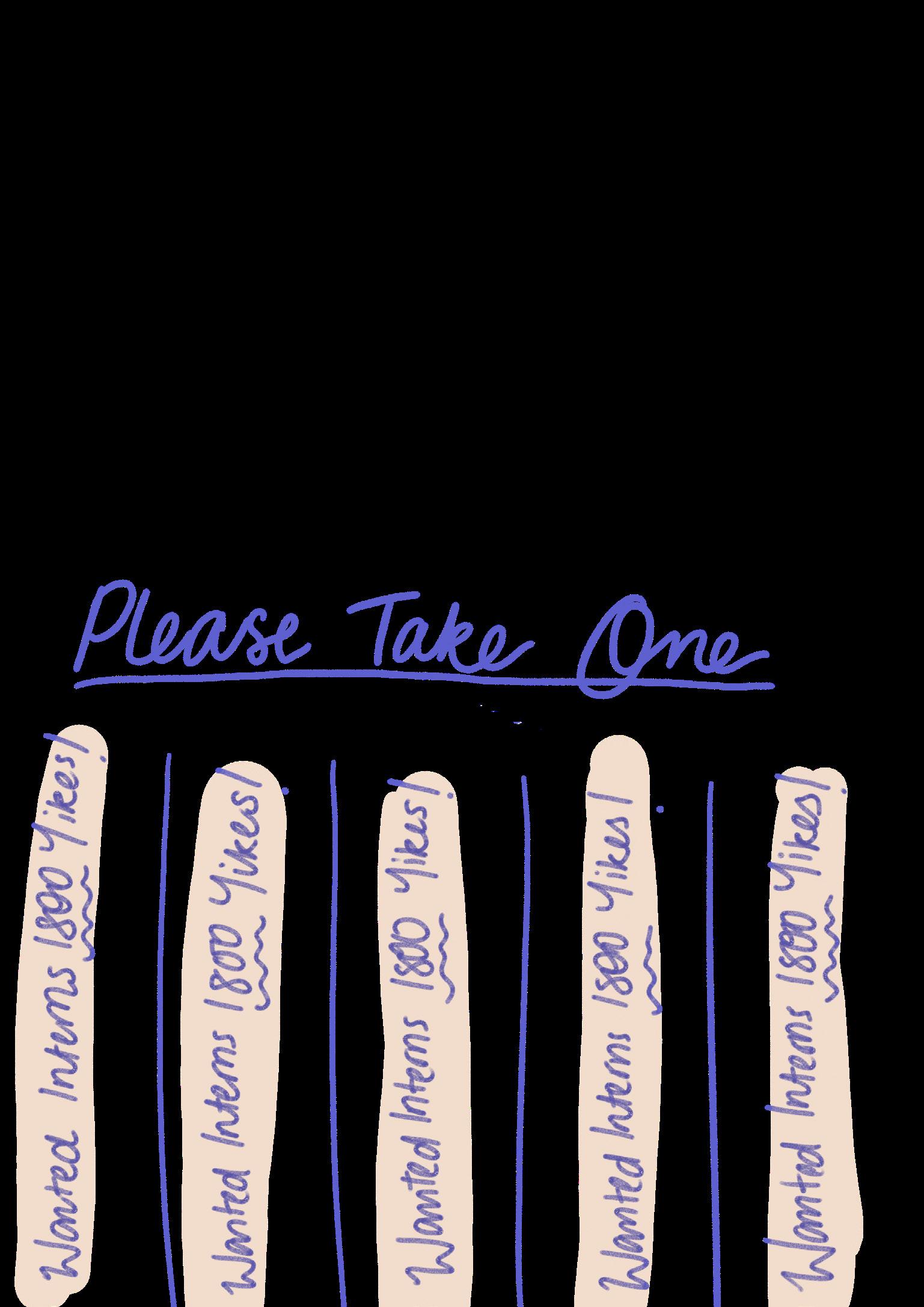
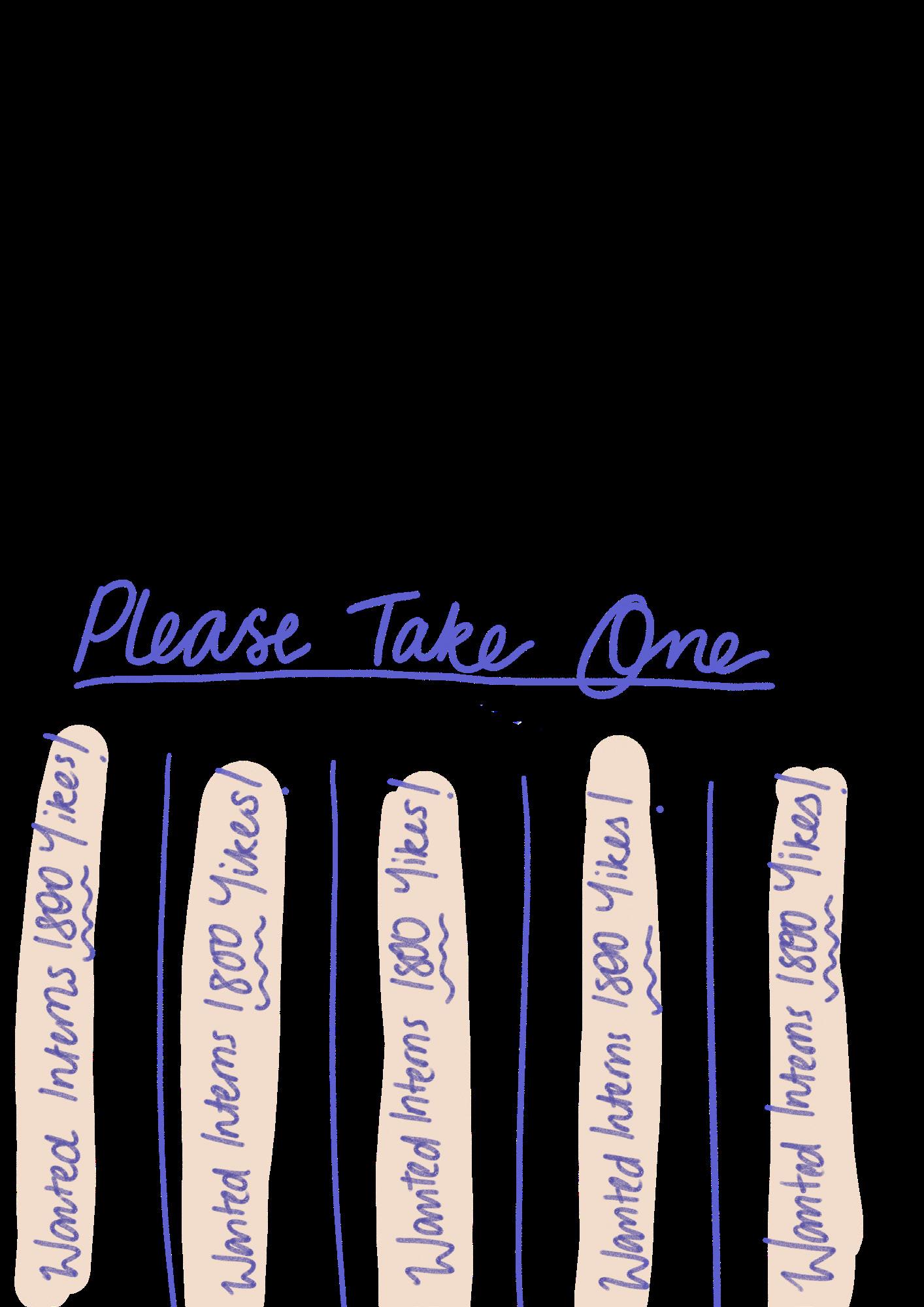
Diversity: An Implicit Bias
Many people have experienced some form of implicit bias. This may be as simple as feeling distrust towards a reserved co-worker, or as serious as choosing not to interact with a foreigner due to a perceived language barrier. Implicit bias is defined by Diversity Australia as “unconscious or hidden beliefs... [that] underlie a great deal of our patterns of behavior about diversity”. It is possible to have implicit bias towards others without being overtly aware of it.
In some cases, an implicit bias against diversity may be hindering self-growth or standing in the way of shared success. Diversity has been marked as an indicator for success. At first glance, it is obvious that diversity is necessary and important and this may be for moral, ethical or legal reasons.
Rocío Lorenzo, a Boston Consulting Group management consultant, discussed in a TED Talk how most business leaders she worked with viewed diversity as a compliance issue or “the right thing to do”. While it is correct that our collective moral responsibility includes the requirement to strive for diverse representation in all our groups and teams. This inclusion rewards all of those people involved.
Diversity is a powerful driver for innovation. Diverse groups in social, academic and business settings often yield greater results than monogamous groups. The positive results that diverse groups yield in an academic or business setting are auxiliary to the necessary morality of seeking diversity.
Hayley Yeates spoke about her experiences with implicit bias during her TEDxWestpac presentation in 2017. She discussed how often she was left sitting by herself in tutorials and how her friends believed this was a result of
her Korean heritage. Due to a perceived language barrier, other students would “look in my direction, think it over and sit at another table”. This drove Yeates to work harder than the other students to demonstrate that she was “somebody worth working with”. Since Yeates was adopted by white parents in Sydney, this perceived language barrier did not even exist. The implicit bias Yeates experienced from her classmates was not an isolated incident. For someone who was indeed raised in a different culture, where English was not their first language, these difficulties will only be more common.
One of the ways to counteract implicit bias is to actively practice inclusionary techniques. By proactively networking with diverse groups of people, you can gain different perspectives in unique ways. For example, a diverse group of students working together for a group project in a tutorial will bring a greater breadth of understanding and experience than a homogenous group. This competitive advantage of networking can be explained in a few ways. Firstly, a report from McKinsey & Company suggests that diverse teams can stick to the task and bring a variety of skills and experience to the table. More accurate and innovative works can be produced by culturally diverse teams. Secondly, in ‘The Innovator’s DNA’ published in the Harvard Business Review, Hal Gregerson discussed ‘networking’ as one of the five techniques top innovative entrepreneurs used. The type of networking discussed in relation to innovation was, “devoting time and energy to finding and testing ideas through a network of diverse individuals”. Therefore, seeking out those who differ from ourselves—whether it be culturally, linguistically or socioeconomically—can reward everyone with a richer understanding of the world and others around us. This type of networking allows innovators to question their current frame of mind and introduce a radically different perspective. As opposed to a quid pro quo exchange between two individuals, this
interaction remains mutually beneficial, it includes the deeper search for knowledge and understanding in the connection.
In order to address our implicit bias, it has become necessary to act overtly to remedy the tendency to avoid those different from us. As pointed out by Haley Yates, these biases may be
baseless. Regardless of differences between yourself and others, I hope this piece encourages you to step out of your comfort zone. I hope it gives you more reasons to network with diverse groups of people.
To find references, visit qutglass.com/diversity

ROBERTS
Vegan Shopping List




You can’t leave your local farmer’s market without these “must have” vegan staples:
Pick up a “where do you get your protein?” muesli bar.
Don’t forget a carton of “I love cheese too much”.
500g of “but Jesus ate meat”.
A handful of “mmm, bacon though”.
2 packets of “your iron levels must be low”.
1 container of “Maleny Dairies is ethical”.
4 tubs of “if we don’t eat honey, the bees will die”.
Don’t leave without grabbing a bottle of “so, do you just eat salads?”
A bag of “but they’re already dead”.

Now that that’s out of the way, you have all the items you need to be a vegan. Don’t worry about paying for them — people will give you them for free!

Pause:
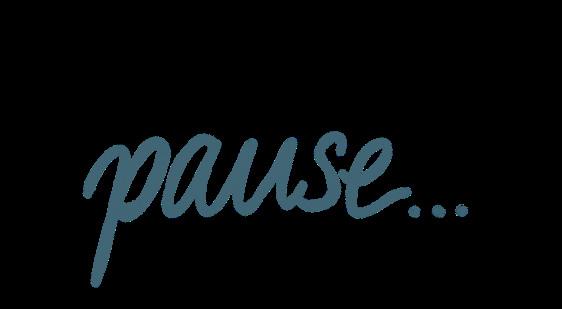
PERKINS How To Save Yourself Before You Burn Out
I like to think of university as a developmental stage in life. Challenging, but exciting.
It’s in this time that we really begin to learn the ins and outs of how to be an adult. We learn how to juggle multiple things at once, and it can be difficult at the best of times.
For most of us, it’s when we first move out of home, get our first part time job, learn how to budget, juggle a degree (sometimes two), pick up work experience, make new friends, settle into a new environment, pay bills, grocery shop… the list goes on. And BAM. Before you know it, your seven-day week is full.
Sadly, there’s a stigma around unplugging and taking some much-needed time out – it can be seen as a sign of weakness. But this is often a selfimposed stigma. We think people will think less of us if we mention that we aren’t coping: that we are not sleeping properly at night, that we are constantly exhausted and too often feeling run down. Sometimes, life can feel so busy that there’s not even enough time to stop and think about how busy you actually are, in order to remedy this mess you’ve now got yourself into. Ah, adulthood.
If you’re nodding along: it’s time to press pause. It’s not selfish to take time off and recharge, and it’s something that needs to be spoken about more often. So, from one over-worker to another, here are five self-care tips that you can easily adopt into your life and why it’s essential that you do.
tip 01.


Disconnect from social media
Although it has its perks, social media can be draining at the best of times. In fact, I’d argue it can do the opposite of what you are needing in your down time. If you’re already not in the best headspace, unfollow people who make you feel worse. It’s not worth it. And no, you don’t need to justify that decision to anyone. If you find yourself struggling to stay focused on important tasks, I encourage you to disconnect all together: either log out from those accounts temporarily, or just delete those apps entirely. Granted, this is easier said than done, but I can guarantee you’ll feel ten times better for doing it.
tip 02.
Find a hobby outside of what you’re studying
If you’re anything like me, what you do in your spare time is the same as what you’ve chosen to study at university. This can feel enjoyable and exciting
at first, but eventually it wears off and gets tiring. By blurring the two, it can very quickly turn into a full time, seven day a week stint and it can become difficult to draw the line between work and time off.
Returning from days off feeling refreshed is vital to everyday productivity and success. I encourage you to find a different passion that you can pick up as a hobby for those days off, to help keep you motivated and stimulated when you’re working or studying.
tip 03.
Learn to say ‘no’
Learning to say ‘no’ when you’re already struggling to balance everything else is essential. Practically, that might be saying ‘no’ to a task that’s been handed down to you, saying ‘no’ to something outside your scope of capability or even saying ‘no’ when a friend asks if you can hang out (when you really just need time to rest). It’s important to be brave and communicate with those around you if you are struggling. In a work environment, if you’re already stretched to the max, don’t be afraid to ask whether someone else can take on the responsibility instead.
tip 04.
Make healthy choices
I find when I am feeling stressed, I eat anything easily accessible. Whether it’s something in my pantry or that sneaky Uber Eats call-out. Choosing to snack on healthier foods when you are busy or stressed will help you to feel energised and focused. It’s equally as important to take time out and leave your workspace every now and then. It’s easy to sit at home and wallow in your stress, but making these simple, healthy choices will definitely benefit you in the long run. A healthy headspace is vital, and this is one way to achieve that.
tip 05.
Recognise that it’s OK to put yourself first.
It’s important to remember that it’s OK to seek help or guidance if you need it – it’s not a sign of weakness. Don’t be ashamed of speaking up if you are not coping with something – even if it’s something small. It’s OK to put yourself first and take time out. It’s not a sign of selfishness, it’s a sign of bravery. Every time you feel you’re beginning to lose control, remind yourself to breathe and remember that you can only do your best.
We’ve lost our grip on reality: we are all vying for a place in the line of perfectionism, and to be frank, it’s not worth it. Embrace who you are – and that includes everything you are and are not capable of. There is freedom in that.
You’re not selfish, you’re not crazy, you’re human.
Glass Wordsearch
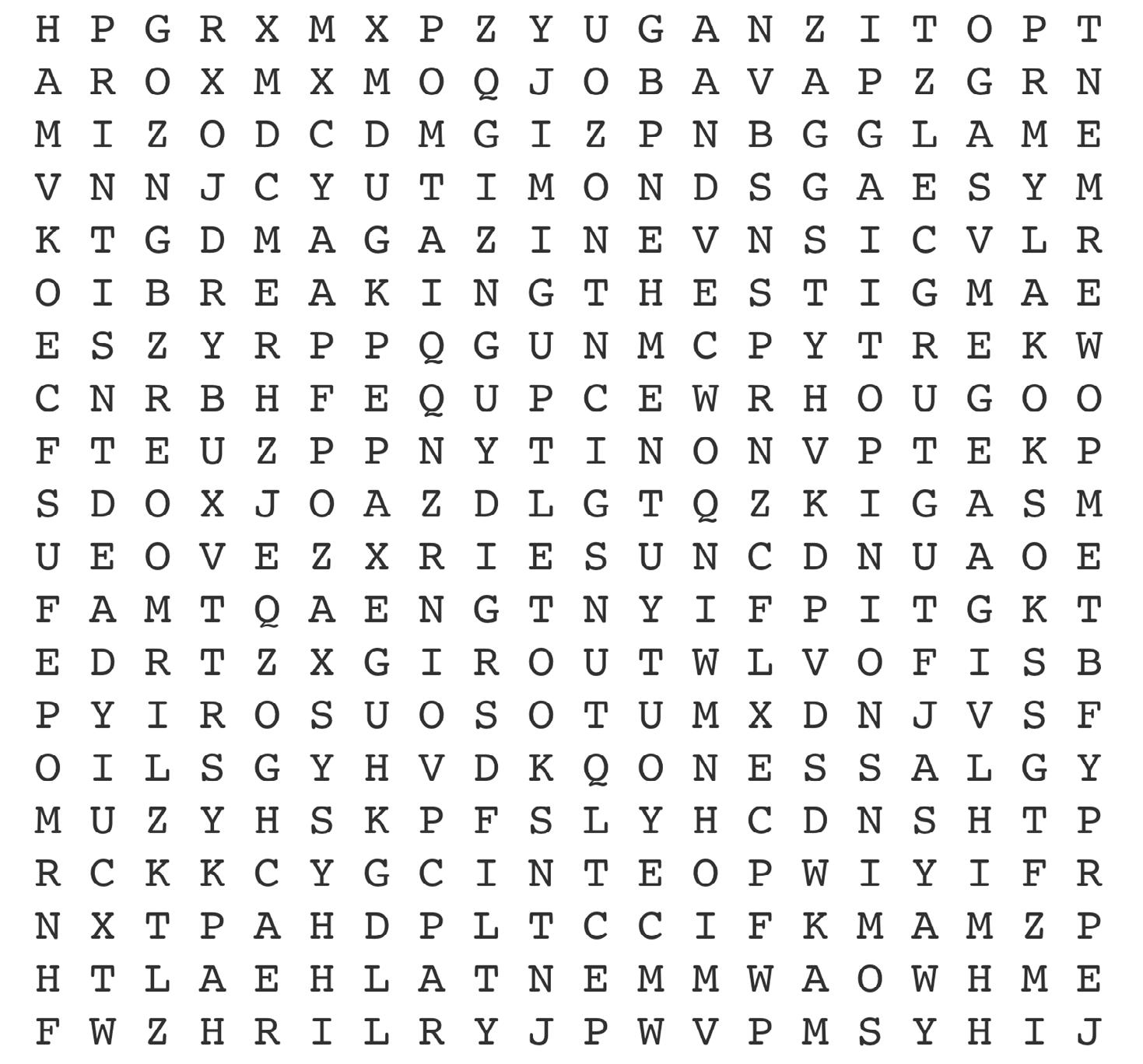
“I’m trying this new diet,” my mum says as she leans over the kitchen bench chopping onions. We never have these conversations eye-to-eye. “You should think about joining me.”
I think everyone, regardless of their dress size, has had this conversation with their mothers. Over coffee, over shopping, over casual lunch dates and days at the beach. I’ve been hearing the same words since sixth grade. Then, amidst the psychology appointments and the exam block meltdowns, I tried eating apples all day and hid in my room with a bag of chips at night.
My dad, a health professional, says to me “I don’t worry about how you look, I worry about your quality of life”.
These days, though my weight ebbs and flows with my mental health, I’m a size 16 at 5’11. I’ve got stretch marks so red and deep, they look like tattoos. I’ve got hips and a tummy, heavy breasts and thighs that rub together on hot summer days. concern or disdain—and usually both—of many people around me.
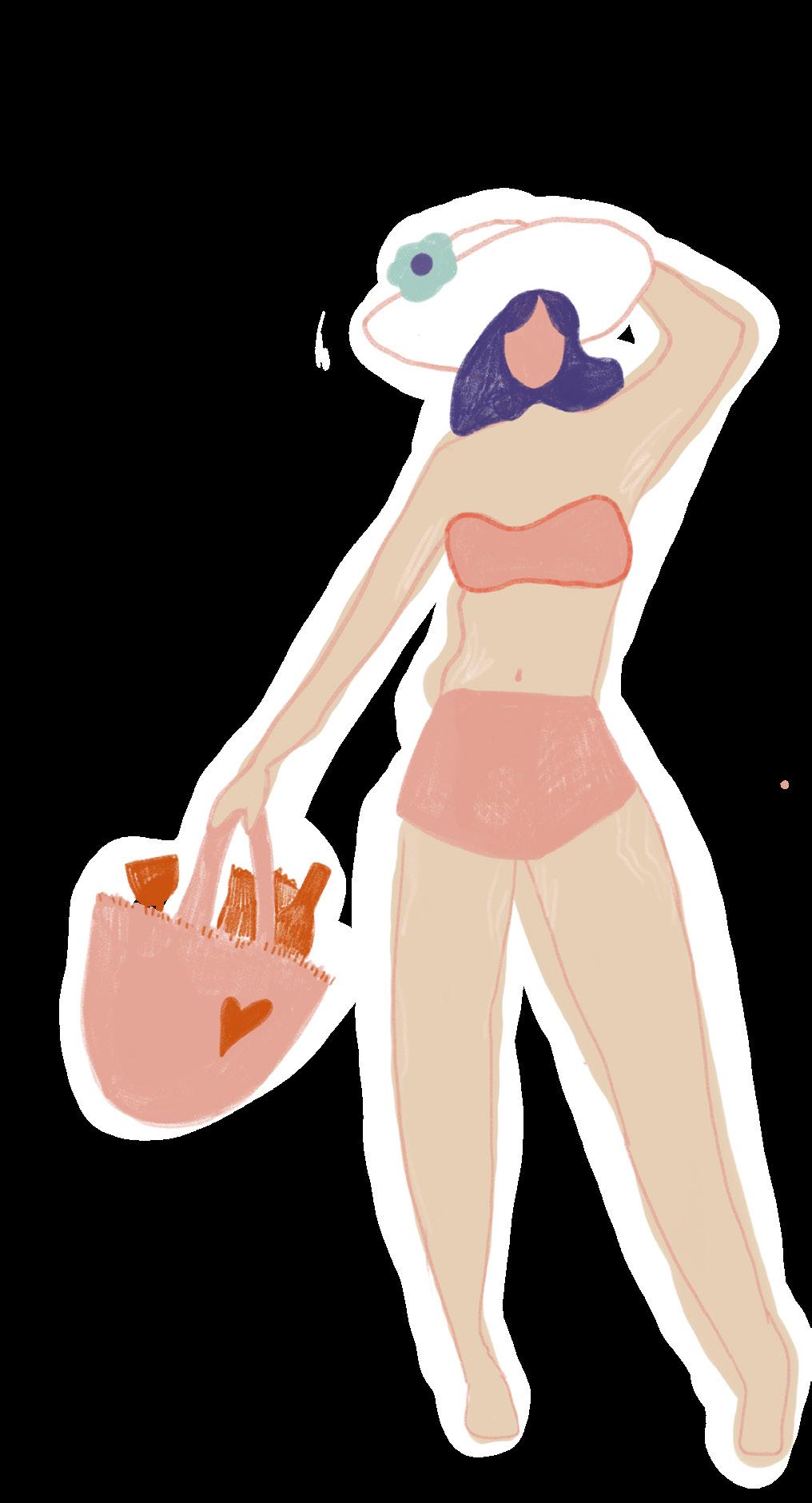
The most shocking act of my adulthood has been my acceptance of my body. I’ve started wearing skirts and tight shirts. I’ve started smiling at strangers. lights on.
And it isn’t always easy; some days I feel like a fraud. Like there are behaviors that don’t belong to me; I’m mirroring things a smaller girl would do. I’m too small for my body.
But I remember my mum, and the anxiety in her voice. My mum, a beautiful woman. Piercing blue eyes, fair skin that doesn’t age, intelligence and savvy written into her face.
My mum who doesn’t look in the mirror, who still goes to family events where my grandma tells her to cover her knees because nobody wants to see that.
My mum of the fad diet generation, a long line of women who spend their lives starving.
So I let myself take up space – some of the space

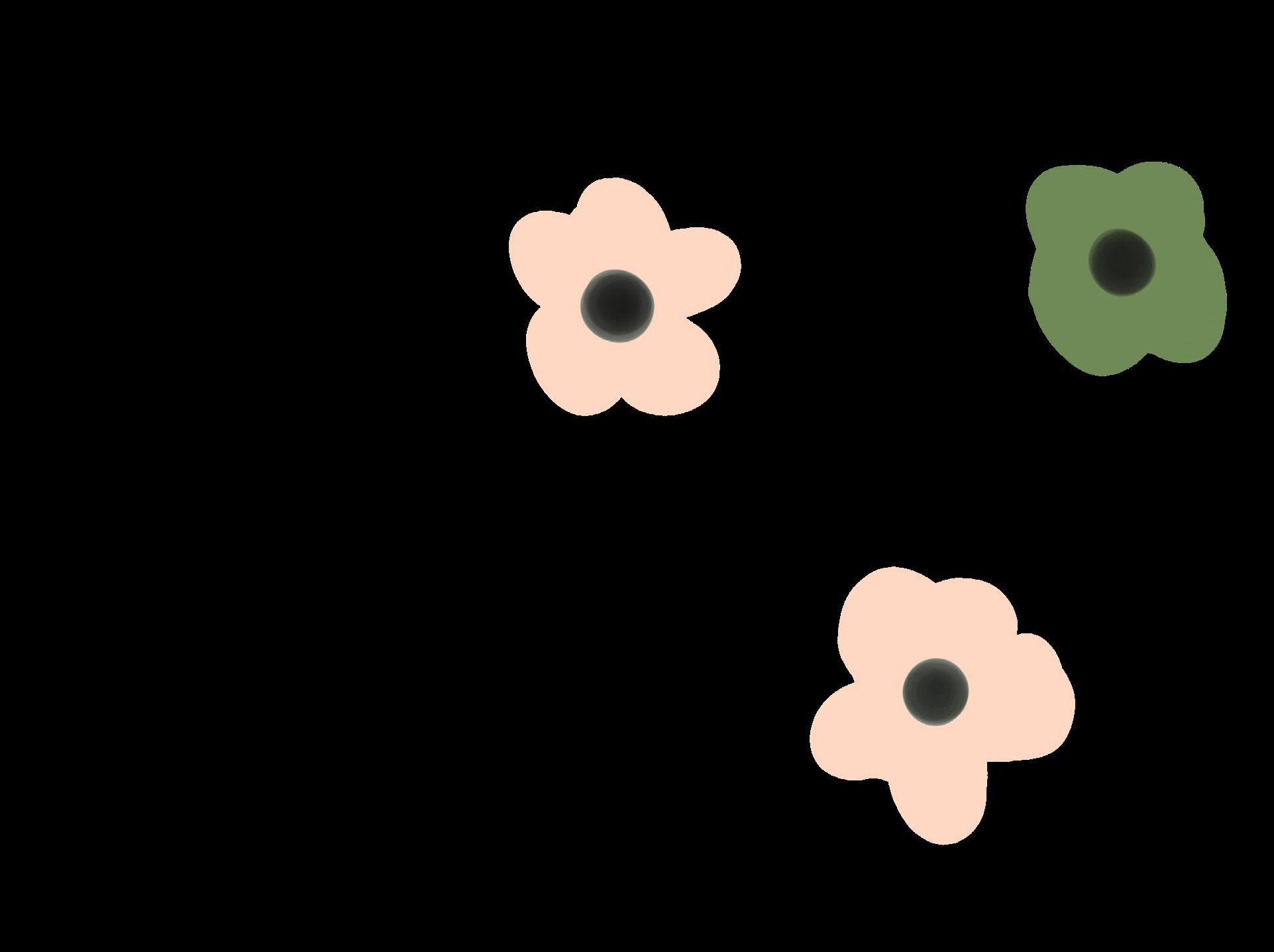
Emily Hill Designer
Contributors
Olivia
